

10 TOP INVESTMENT IDEAS TO WATCH THIS YEAR
‘ZERO-DOLLAR’ TOURS FACE CRACKDOWN
NEW RESIDENCY RULE FUELS OFFICE BOOM
DERIVATIVES SHARPEN EDGE IN GOLD TRADING















































































10 TOP INVESTMENT IDEAS TO WATCH THIS YEAR
‘ZERO-DOLLAR’ TOURS FACE CRACKDOWN
NEW RESIDENCY RULE FUELS OFFICE BOOM
DERIVATIVES SHARPEN EDGE IN GOLD TRADING












































































Established 1982
Editorial Enquiries:
Charlton Media Group Hong Kong Ltd
Room 1006, 10th Floor, 299 QRC, 287-299 Queen’s Road Central, Hong Kong | +852 3972 7166
PUBLISHER & EDITOR-IN-CHIEF Tim Charlton
ASSOCIATE PUBLISHER Louis Shek
EDITORIAL MANAGER Tessa Distor
PRINT PRODUCTION EDITOR Eleennae Ayson
LEAD JOURNALIST Noreen Jazul
PRODUCTION TEAM Diana Dominguez
Frances Gagua
Jaleen Ramos
Olivia Tirona
Gwyneth Bejer
EDITORIAL RESEARCHER Angelica Rodulfo
GRAPHIC ARTIST Emilia Claudio
COMMERCIAL TEAM Jenelle Samantila Dana Cruz
Karlene Kaye Camama
ADVERTISING CONTACTS Louis Shek +852 6099 9768 louis@hongkongbusiness.hk Shairah Lambat shairah@charltonmediamail.com
AWARDS Julie Anne Nuñez awards@charltonmediamail.com
ADMINISTRATION Eucel Balala accounts@charltonmediamail.com
SINGAPORE
101 Cecil St., #17-09 Tong Eng Building, Singapore 069533 +65 3158 1386
HONG KONG
Room 1006, 10th Floor, 299 QRC, 287-299 Queen's Road Central, Sheung Wan, Hong Kong +852 3972 7166
MIDDLE EAST
FDRK4467,Compass Building,Al Shohada Road, AL Hamra Industrial Zone-FZ, Ras Al Khaimah, United Arab Emirates
www.charltonmedia.com
Gear Printing Limited Flat A, 15/F Sing Teck Fty. Bldg., 44 Wong Chuk Hang Road, Aberdeen, Hong Kong
Editorial Enquiries: If you have a story idea or press release, please email our news editor at editorial@hongkongbusiness.hk. To send a personal message to the editor, include the word “Tim” in the subject line.
Media Partnerships: Please email editorial@hongkongbusiness.hk with “Partnership” in the subject line.
Subscriptions: Please email subscriptions@charltonmedia.com. Hong Kong Business is published by Charlton Media Group. All editorial is copyright and may not be reproduced without consent. Contributions are invited but copies of all work should be kept as Hong Kong Business can accept no responsibility for loss. We will however take the gains.
Sold on newstands in Hong Kong, Macau, Singapore, London, and New York.
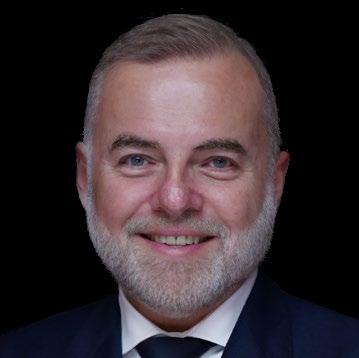
Between another potential round of trade wars among the world’s biggest economies, a possible rally for Asian currencies, and the continued rise of Hong Kong and China’s tech sectors, investors have plenty on their radar. Analysts warn of a “year of volatility,” but a solid strategy can still turn uncertainty into opportunity. Looking for smart ideas? Check out page 22 for the 10 best ways to invest this year.
Hong Kong is also setting its sights on the global gold market by expanding yuanbased gold derivatives—a move aimed at matching London, Shanghai, and New York. Read more on page 20. Meanwhile, a new residency rule offering foreign investors a path to settle with a $50m investment could energise the office and luxury residential markets. Read more on page 40.
On the insurance front, gross premiums rose by 2.1% to $516.5b in 2023, boosted by mainland Chinese visitors. See page 33 for our top 50 insurers in Hong Kong.
If you’re seeking legal support for your next venture, meet the region’s 20 most notable lawyers under 40 on pages 28 to 31.
Finally, as we celebrate 21 years of championing Hong Kong’s business excellence, turn to pages 58 to 78 for our High Flyers list—the innovators shaping the future of their fields.
Read on and enjoy!

HongKongBusiness is a proud media partner and host of the following events and expos:



HongKongBusiness

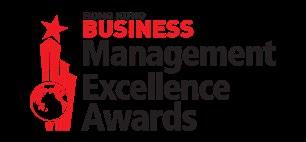









*If you’re
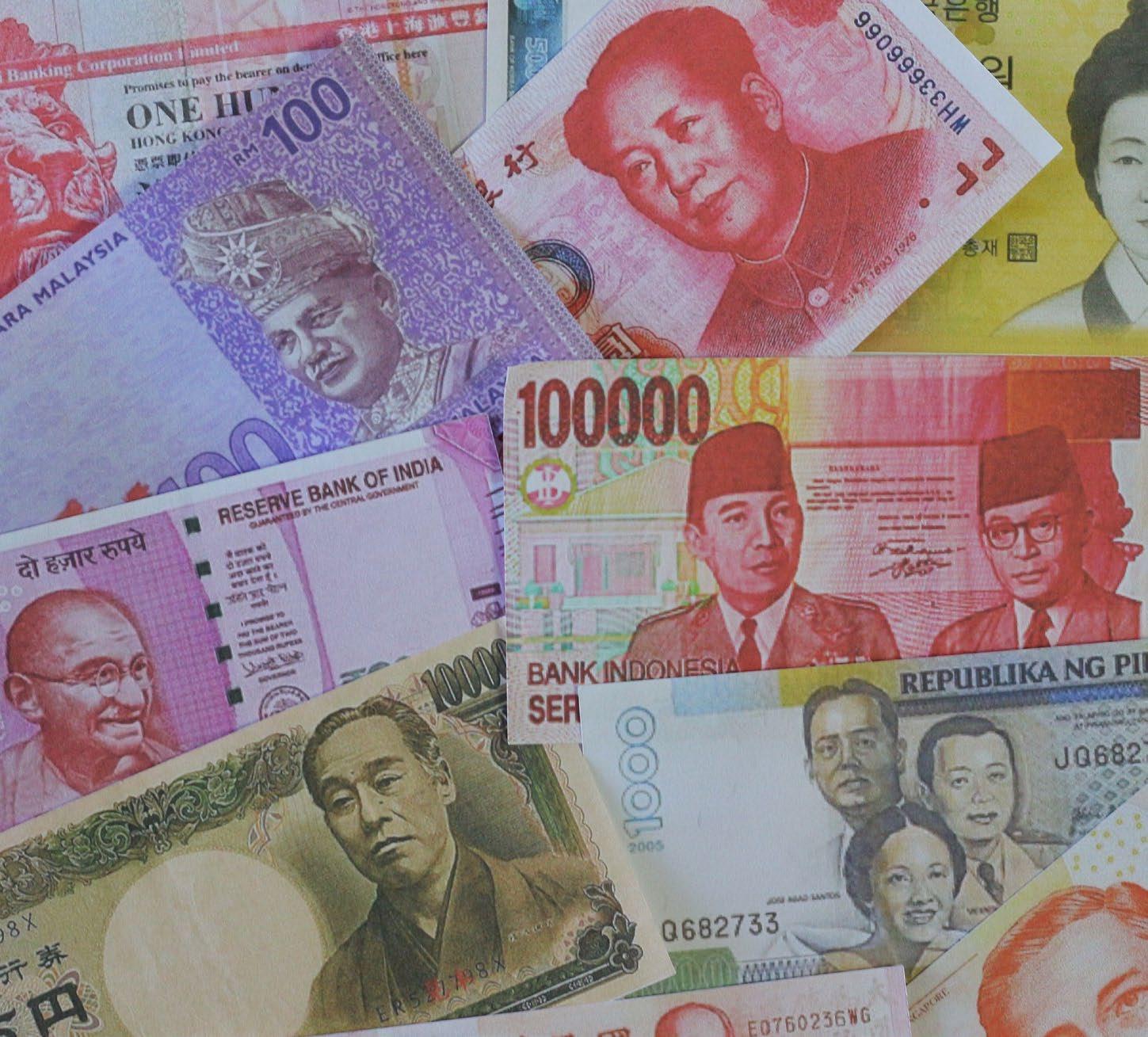







Hong Kong’s 20 most notable real estate agents under 40
Investors are bottom-fishing for properties with stable returns such as hotels that can be converted into student houses, and industrial sites that can be repurposed into cold storage or data centres after the city’s big landlords and property developers faced the steepest real estate downturn in two decades last year.

Rich families in Hong Kong are selling their villas and mansions at deep discounts so they can pay off debt, exacerbating the city’s prolonged property slump. About 40% of secondary property deals worth $50m in July were sold at a loss,” Cathie Chung, senior director of Research at JLL in Hong Kong said.

In search of the best agents under the age of 40, Hong Kong Business reached out to more than 40 property firms in the city Agents on this year’s list come from JLL, CBRE, Colliers, Savills, and Knight Frank. Leading the pack are CBRE and Savills, with six representatives each. The youngest on the list is from JLL.

Visitors to AIA Group’s headquarters in Hong Kong’s Wan Chai District could not help but feel warm and cosy as they are surrounded by off-white walls and high ceilings with a slick shine, and an atrium staircase. But AIA is not a campus. It’s a finance corporation, the third-largest insurance group in the Asia-Pacific region by market cap.
Construction firms and contractors have turned to overseas markets to stay afloat amidst a property slump in Hong Kong, where home prices have nosedived to an eight-year low. The city’s builders are trying to land deals in hot construction markets like Saudi Arabia, whilst some are turning to nearby markets such as Macau.
A second Donald Trump US presidency could heighten trade uncertainties for Hong Kong, impacting its economic stability, according to a Nomura report. Hong Kong's real GDP growth slowed to 1.8% year-on-year (YoY) in the third quarter, down from 3.2% in the previous quarter, primarily due to weaker net export growth.


With a new name under a renowned brand, CTF Life continues to be faithful to its innovative spirit, and commitment to consistently exceeding expectations. We will further leverage the collaboration with the diverse conglomerate of Chow Tai Fook Group to craft financial planning solutions that aim to enrich your life, and unleash its many amazing possibilities.

One of the chronic illnesses whose treatment costs significantly less in the Mainland than in Hong Kong is cancer.
Dr. Milind Sabnis, head of Advisory, Healthcare, Asia-Pacific at Frost & Sullivan said cancer treatment can cost less than one-fifth of Hong Kong’s prices and comes with much shorter waiting times.
As private healthcare remains costly and public hospitals overcrowded, patients are increasingly turning to the Mainland for more accessible medical care. According to Dr. Sabnis, those traveling to the Mainland typically seek primary care and are often individuals with chronic conditions.
Long wait times
Dr. Sabnis noted that some patients also seek tertiary care in the Mainland due to improvements in its hospitals, although he acknowledged that Hong Kong still offers better quality care. The problem lies in Hong Kong’s long waiting times: currently, a patient in an emergency case might wait up to eight hours before being admitted, and for elective surgeries such as hip or knee replacements, the wait can be as long as a year and a half.
To improve Hong Kong’s primary care system, Dr. Sabnis recommended diverting non-emergency patients, accounting for 60% of emergency room visits, to clinics or primary care.
“If you move these patients away to primary care, then the hospitals can get freedom, and that's how you can improve the access for the hospitals as well as for the primary care patients,” Sabnis said.
Technology and collaboration between Hong Kong and Mainland China healthcare facilities could also ease pressure on local hospitals, allowing primary care to be managed across the border whilst complex surgeries and follow-ups could take place in Hong Kong.

Hong Kong should outlaw so-called zero-dollar tours — notorious for price-gouging, forced shopping, and boring tours — if it wants to regain its iconic status as Asia’s shopping paradise, analysts said.
“The solution lies in self-regulation within the tourism industry, as well as legislation from both the source market (Mainland China) and the destination (Hong Kong), to penalise illicit or outlawed business practices," Yong Chen, an associate professor at EHL Hospitality Business School, told Hong Kong Business magazine.
The tours, which carry a ridiculously low price tag and force tourists to buy stuff at partner retail stores that provide commissions to tour operators, is a disservice to foreigners visiting Hong Kong, he pointed out. “Tourists are the victims, and there is plenty of evidence suggesting this.”
In 2015, a Chinese tourist died in Hong Kong after being attacked during a "forced shopping" tour. Just recently, the Hong Kong government revoked the license of a local tour guide for threatening mainland Chinese visitors for refusing to shop.
Mario Braz de Matos, CEO at
Singapore-based branding consulting firm Flying Fish Lab, said Chinese tourists accounted for almost 90% of Hong Kong’s retail spending in 2023.
However, the zero-dollar tour model has taken a heavy toll on mid-range and mass-market retailers because it channels tourists to partner stores, often bypassing local businesses, he said in an interview.
Braz de Matos noted that whilst luxury brands used to benefit from the influx of tourists, the availability of high-end goods in Mainland China and other regional markets has intensified competition.
Chen said zero-dollar tours have created a “shadow economy” that bypasses Hong Kong’s formal retail sector. “Tourists joining zero-dollar tours are insulated from the formal retailing sector of Hong Kong.”
"In fact, almost all tourist spending is channelled by tour guides and travel agencies to those businesses that are either under the direct control of travel agencies or have some sort of indirect relationship with them,” he said.
Tourists are the victims, and there is plenty of evidence suggesting this
As a result, small businesses, including local restaurants, mid-scale hotels, and local retailers suffer the most, Chen said. This is because the spending of tourists on zero-dollar tours are controlled by travel agencies that funnel them to specific stores that usually offer lower-quality goods.
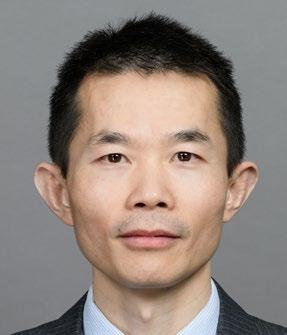

But these cheap package tours are slowly being eclipsed as more mainland Chinese tourists opt for independent travel. “There is an increasing proportion of mainland Chinese taking independent tours in Hong Kong instead of purchasing package tours,” he added.
Hong Kong’s inbound tourism increased 64% year on year to 21.15 million visitors in the first half, averaging 116,000 daily visitors, according to data from Colliers International (Hong Kong) Ltd. Of the total, 16.5 million came from Mainland China.
However, mainland tourists are spending significantly less amidst high joblessness and stagnant wages in China, according to Simon Smith, regional head of research for the AsiaPacific region at Savills Hong Kong. “It’s a very tough time for Hong Kong at the moment,” he told the Hong Kong Business.

Hong Kong’s plan to phase out subdivided flats under 8 square metres to improve the living conditions of poor families could drive rents higher, defeating the policy purpose, according to property analysts.
“Some landlords may find it financially challenging to upgrade their units to meet the new standards, and it will potentially lead to higher rents,” Rosanna Tang, executive director and head of research for Hong Kong at Cushman & Wakefield, told Hong Kong Business. Renovating subdivided units under 8 square metres would also potentially cut the market’s flat supply, which could push rents up in
Bthe near term, she added.
Hannah Jeong, head of Valuation and Advisory Services at CBRE Hong Kong, said the lack of available units could temporarily increase rents. But prices are likely to decline in the long term.
Jeong, however, said the persquare-foot rate of these flats would decline in the long term given that the monthly rents will stay the same even if flats become bigger.
The monthly rents for these Hong Kong flats are usually less than $8,000, while in Kowloon and the New Territories, they range from $3,000 to $4,000, she said.
Jeong said it would be hard for tenants to find units they can afford,
Some landlords may find it financially challenging to upgrade their units to meet the new standards, and it will potentially lead to higher rents
so the government may need to consider providing them with shortterm rental housing.
Tang, for her part, said a comprehensive rehousing plan is important during the transition period. She added that Hong Kong should fast-track the availability of affordable housing, including light public housing or temporary units for those awaiting public housing.
She said the government could also use modular integrated construction technology, which can effectively shorten the construction period on site and enhance productivity.
On the landlord side, Jeong said the government could offer financial aid or tax deductions to help them meet the requirements.

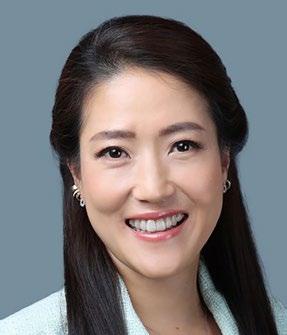
Jeong said free consultancies would also benefit landlords, adding that most of them don’t know what the exact requirements are. “If the government can offer free consultancy services before construction, they will ensure the quality of the [units].”
There are about 150,000 subdivided units in Hong Kong, about a third of which are below eight square metres, she said. The government measure could lower their number, but it is unlikely to eliminate them from the housing market, she added.
"These subdivided units play a middle role for those who can’t get public housing but at the same time can’t afford private housing," the CBRE expert said.
rands wishing to engage Gen Z and Millennial consumers in Hong Kong must prioritise aesthetics and social media appeal in their products and services.
"Gen Z and millennial age groups prefer purchasing products or experiences that they believe will look good on photos that they post online," Adrian Lo, principal at Strategy3, Ipsos Hong Kong, told the magazine.
"For these demographics, purchasing products is not really just about owning the product or the ownership, but it is really about finding the experience that caters to the individuality and allowing them to express themselves, especially through social media," Lo added. Lo said young consumers are prioritising aesthetics to shape their online identities and social interactions, reflecting a broader trend of individualism.
In Hong Kong, individualism and autonomy have become key responses to economic pressures and global changes, with many consumers feeling that the only thing they can control is themselves. Lo said people are increasingly focused on areas they can influence, such as personal well-being, family, and their immediate environment, signaling a growing “me first” mindset.
To engage with consumers who are focusing on individualism and autonomy, brands should focus on hyperpersonalisation and creating visually appealing and shareable experiences.
"It is crucial to offer products that align with consumers’ digital and social exploration, while at the same time being adaptable enough to fit different online narratives. It is really about providing individuality without isolation," Lo said..


Hong Kong startup Braillic seeks to revolutionise surgical practice through augmented reality (AR) technology, allowing surgeons to precisely locate areas in the brain without cracking the skull open.
It enhances surgical safety, precision, and efficiency, whilst freeing doctors from medical malpractice lawsuits due to surgical errors such as incorrect incisions, which can be catastrophic.
With Braillic’s Augmented Reality Guided Surgical Navigation (ArNav), surgeons gain a clear view of the surgical area in holographic 3D, minimising the need for large openings in the skull. ArNav's accuracy range of five to seven millimetres lets them perform neurosurgery with greater precision.
ArNav is currently used in neurosurgery, but Camroo Ahmed, CEO at Braillic Ltd, told Hong Kong Business he wants to extend its application to spinal and orthopaedic procedures, such as knee and hip replacements, where precise alignment is critical. Within neurosurgery, Ahmed said their AR tool could be used in ventriculostomy procedures, which involve inserting a catheter into the brain's ventricles to drain cerebrospinal fluid or monitor intracranial pressure.
Ahmed said Braillic’s technology does not replace surgeons but is meant to boost their confidence in the operating room. A surgeon’s judgment improves when he sees what he is working on, he pointed out.
“But usually, they can't see everything — that's where we come in, to help them see the unseen,” he said. “We’re trying to enhance their capacity and boost their confidence with an X-ray-like vision, so they know they're doing it right.”
Ahmed, an electric engineer, said Braillic will apply for a certification from the Food and Drug Administration (FDA) so it could expand the technology. He also plans to develop a training platform for surgeons and introduce an artificial intelligence (AI) agent in operating rooms once the company secures US$1m in funding.
To date, the medical AR software startup has raised $1m through private angel investment.
“The Hong Kong government is pretty much putting emphasis on the advancement of medical training because there have been quite a few recent errors in the hospital sector,” Ahmed said. “We have been working with medical professionals on how we can integrate augmented reality not only as a surgical tool but also as a training platform for residents.”
Ahmed said he wants to create an AI agent to help surgeons, especially the new ones, in the decision-making process. “Of course, they are well trained, but we are human."
Hong Kong startup Stellerus Technology is helping the government and industries manage high-value assets against natural disasters and climate risks, including typhoons, using proprietary data and algorithms spanning climate risk, hazard and carbon management.
The company, which offers a suite of climate tech solutions, is seeking to raise $10m–$20m in Series A funding to fund its expansion in Southeast Asia, Jeffrey Xu, CTO at Stellerus, told Hong Kong Business. They also plan to expand to the Middle East and are now in talks for tieups with companies in Central Asia.
The startup uses data from its satellite to enhance proprietary algorithms and artificial intelligence (AI) models, developed from more than 20 years of research by Stellerus chairwoman Hui Su and chief strategist Limin Zhang Xu co-founded Stellerus in 2023 with Su and Zhang, both chair professors at Hong Kong University of Science and Technology (HKUST). Su is an expert in remote sensing, meteorological and climate modelling, and weather forecasting, whilst Zhang is an expert on hazards such as landslides and floods.
Stellerus led the launch mission of a satellite at the HKUST, which gives them
HEALTHCARE

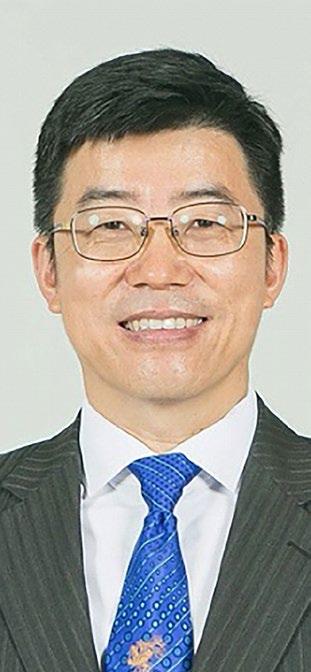
a holistic view of “hazard situations” like inundations caused by rainstorms. The satellite, with a spatial resolution of 0.5 metre, can capture clear images on the ground.
The satellite’s surface working area spans 150 kilometres, allowing it to cover and capture the entire Hong Kong region and beyond, including areas like Shenzhen, in a single pass. This lets Stellerus evaluate hazard data during heavy rainstorms and assess their impact on buildings after the event.
The satellite data also allows Stellerus to measure a typhoon’s intensity and track where it is headed even before it hits the city.
Xu noted that when a typhoon is about to hit Hong Kong, the government institution sends cyclone hunters — aircrews that fly over tropical cyclones to gather weather data. "We use the satellite to see the typhoon when it’s still in the South China Sea."
Biotech companies often struggle to differentiate their cell therapies because most reagents target the same markers like CD20 and CD19. Allegrow addresses this challenge by providing reagents that quickly modify immune cells to target rare markers.
Allegrow offers two types of reagent products, for growing natural killer cells and T cell. These reagents are made from synthetic biomaterial purely chemical and animal-free. Its reagents also improve immune cell growth and activation, solving a key challenge for developing cell therapies. Allegrow, led by CEO Laurence Lau, has achieved 60% more cell yields for T cells and almost five times more yield for natural killer cells during cell culture or bioprocessing.
It currently sells its cells for research purposes at $1900 per vial and plans to

upgrade them to clinical-grade quality. Allegrow is raising funds to meet good manufacturing practice standards and expects to have clinical-grade products ready in two years, followed by clinical trials. The ultimate goal is to enter the therapeutics market.





































































Visitors find top-tier brands and museum-grade art pieces at the cultural-retail landmark.
Hong Kong’s K11 MUSEA is blurring the lines between shopping mall, art gallery, and cultural hot spot by blending luxury fashion, vibrant art, and sustainable design under its cultural retail model.
“We don’t just think of it as a pure retail shopping experience,” Horace Lam, CEO for Hong Kong, K11 Concepts Management Limited, told Hong Kong Business. “We try to fuse art, culture, and people to create a journey of imagination for our customers.”
At the glitzy K11 MUSEA at Victoria Dockside, visitors encounter not only top-tier retail brands but also museum-grade art pieces and sustainable design elements.
Lam said cultural tourism plays a key role in K11 MUSEA’s strategy by enhancing the visitor experience through a blend of cultural and retail attractions. “It's closely integrated with our customers' experience, and we aim to sort of add value to our visitor experience whenever they are in our properties.”
Integrating art and cultural experiences at Hong Kong’s pioneering cultural-retail landmark has had a profound impact on the

group’s sales and foot traffic, he said. The mall's year-round activations, including seasonal events, have contributed to these gains.
For instance, K11 MUSEA’s “100% Doraemon & Friends” exhibition set a record for single-day footfall this year, with an almost 40% increase, driven by its curated cultural programming and luxury retail experiences.
Their “Wondrous Summer — 100 Reimagined Childhood Experiences” campaign boosted consumer membership, leading to an almost 30% rise in food, beverage, and retail sales, and a 10% increase in tourist spending.
K11 MUSEA, which aspires to become the Silicon Valley of culture, has partnered with Louis Vuitton and Dior. The Louis Vuitton event attracted international attention from both the media and consumers, Lam said.
We try to fuse art, culture, and people to create a journey of imagination for our customers
Last Christmas, the mall hosted a Dior Christmas tree activation and a Dior-themed café, which quickly became a hit with visitors. “We partner with a lot of top-tier luxury brands for pop-ups, and we co-create special, unique concepts with them,” he said.
“So whenever visitors come to K
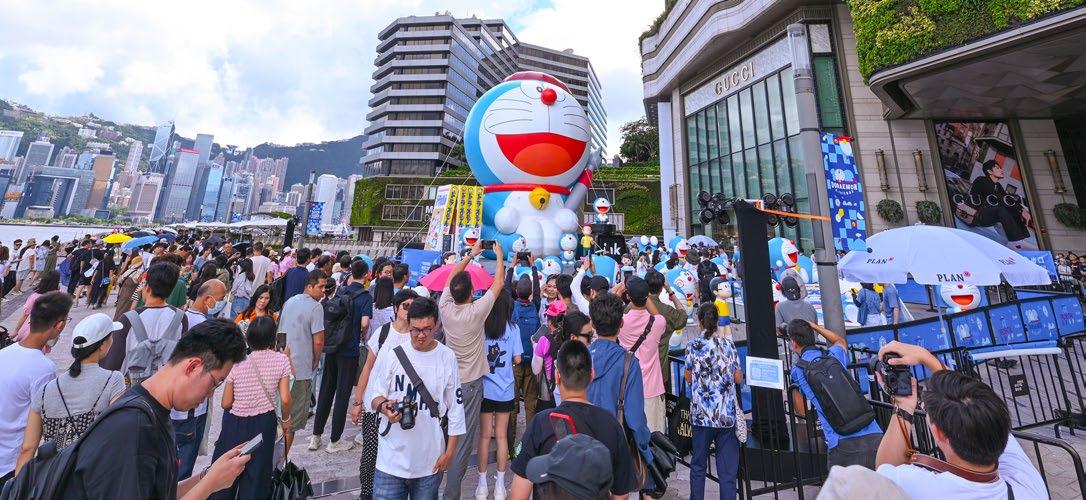

11 Musea, they could also enjoy and learn something from the exhibition on top of their retail and dining experience,” he added.
K11 MUSEA’s distinctive blend of art and culture resonates well with younger audiences, especially Gen Z. “We tend to draw a very good following from the Gen Z crowd, especially those looking for a higher quality of life and enriched cultural engagement,” Lam said.
Almost 50% of the mall’s members come from the under-35 age bracket. “In this day and age, I think consumers are not only looking for pure retail, sort of a transactional relationship when it comes to finding a place to spend their time,” he said.
“As a landlord or as a retail space operator, we need to deliver more value to our consumer base, and that's why we are very dedicated to our business model of fusing commerce with culture,” he added.
To appeal to both local and international consumers, K11 MUSEA leverages its prime location and unique offerings.
Lam noted that since borders reopened after a global COVID-19 pandemic, K11 MUSEA has become a top destination for tourists.




Wherever and whenever you take a LINDOR moment, it just seems to make life feel so much more sublime. When you unwrap LINDOR and break its delicate chocolate shell, the irresistibly smooth filling starts to melt, gently carrying you away in a moment of bliss.
LINDOR, created by the Lindt Master Chocolatiers. Passion and love for chocolate since 1845.
It joins Sotheby’s, Phillips, and Christie’s, which have all upgraded their local spaces.
London-based Bonhams has upgraded its local space with a new headquarters in Hong Kong to boost its presence in the city, where auction revenues have been declining amidst a property crisis in China.
The auction house’s 19,000 square foot Asia headquarters at Six Pacific Place, unveiled at its inaugural autumn auction in November, spans three floors and features upgraded galleries, a permanent saleroom, and office spaces.
“Our new headquarters allows us to provide clients with an elevated experience, from the moment they enter our gallery to the presentation of artworks and the events we host, all tailored to their refined tastes,” Julia Hu, managing director at Bonhams Asia, told Hong Kong Business


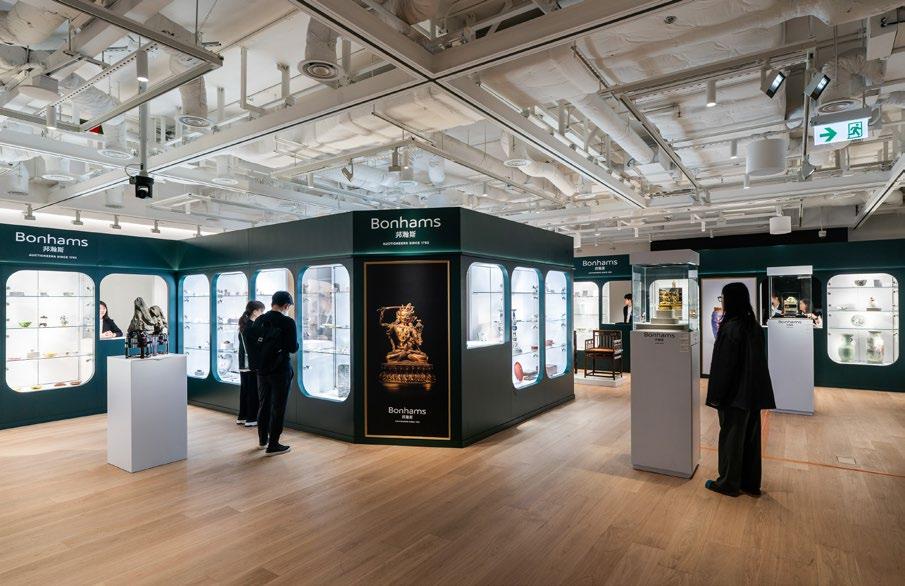

The 200-year-old British auction house opened the region’s first dedicated saleroom in 2014, solidifying its foothold in Hong Kong where it started in 2007.
“Since then, our sales and teams have significantly expanded, prompting our move to a larger, more versatile space to support our next phase of business development,” Hu said. “Opening our new Asia headquarters demonstrates our commitment to the region and highlights how much Asia means to Bonhams’ global business.”
The new headquarters allot an entire floor for offices, half a floor for storage, and the remaining floors for exhibition space. Its previous office only had half a floor. Installed sliding and movable walls lets Bonham host bigger auctions and events.



1 Bonhams curates fine art pieces as well as rare luxury items.
2 The new headquarters features upgraded galleries and a permanent salesroom.
3 Bonhams features a collection of Southeast Asian art.
4 Most of the modern and contemporary art pieces auctioned in Bonhams are sold by value.
5
6 A 30 carat pink diamond was sold at Bonhams for $20.4m.
The workplace features spaces for socials and quiet work to boost productivity.
Employees at global law firm Ashurst LLP’s Hong Kong office in Jardine House have unanimously chosen their favourite feature—the central shared zone. This flexible space accommodates socials, team-building activities, fitness and well-being sessions, and client events.
The central shared zone is designed with flexibility in mind, supporting social events, team-building activities, fitness and well-being sessions, and client gatherings.
Beyond the shared zone, the entire office is meticulously designed to meet varied needs. It features private and semiprivate areas, bookable and ad hoc meeting rooms, and spaces tailored for collaboration or quiet focus. For employees seeking concentration, pods and dedicated rooms offer

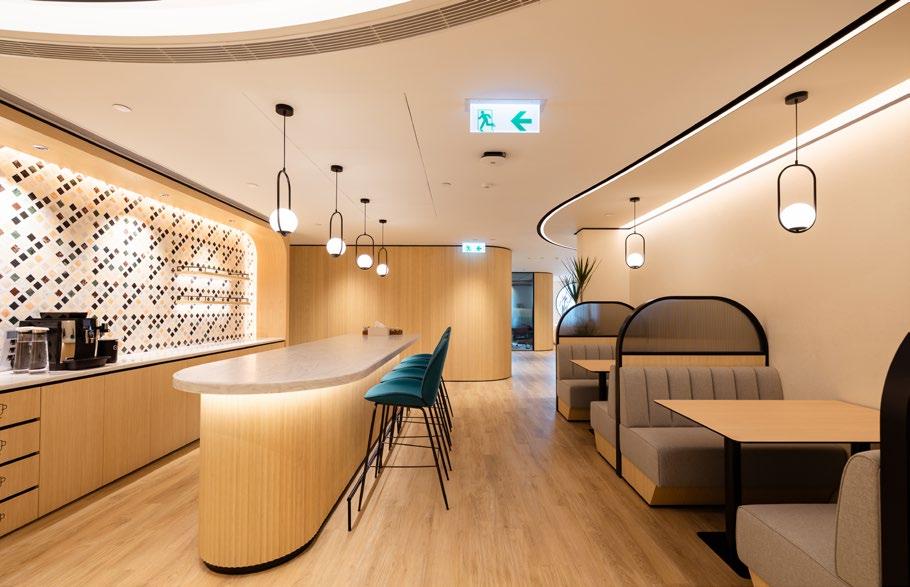

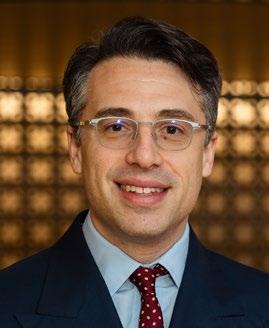
privacy and silence, whilst phone booths provide a discreet setting for private conversations.
Client meeting rooms and a boardroom equipped with integrated audio-video technology and flexible setups further enhance functionality. Passive acoustics throughout the office reduce ambient noise, promoting focus and productivity.
When Ashurst’s lease at Jardine House expired, the firm chose to stay, valuing continuity for clients and operations. “This was an opportunity to upgrade our space, underscoring our commitment to being the most progressive global law firm,” said Ben Hammond, office managing partner at Ashurst Hong Kong, in an interview with Hong Kong Business


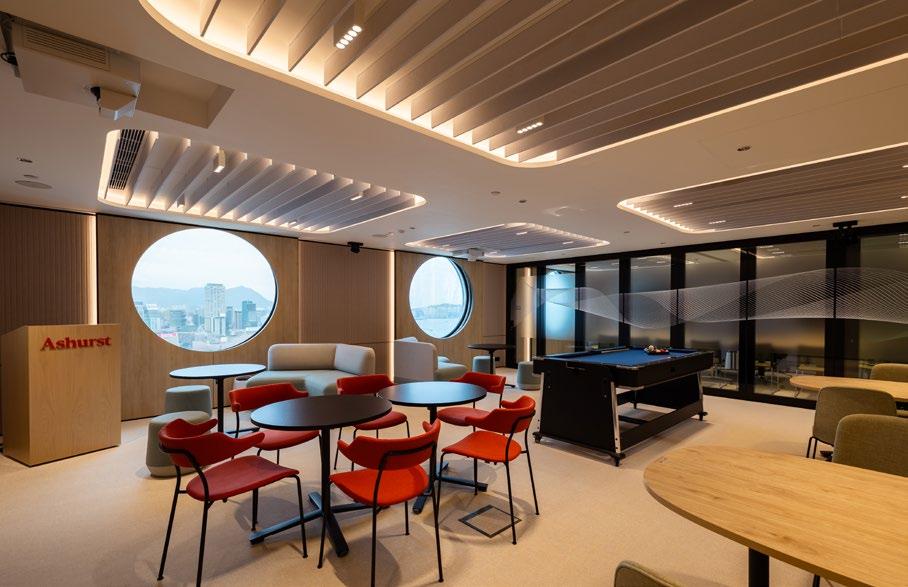

Hong Kong had raised $79.0b from public flotations as of 30 November, exceeding $46b for the full year of 2023.
Dealmakers expect the value and volume of Hong Kong’s initial public offerings (IPO) to continue improving in 2025, spurred by secondary listings from the Middle East and Mainland China and in line with an IPO resurgence in Asia after a lean couple of years.
Hong Kong had raised $79.0b from public flotations as of 30 November, exceeding $46b for the full year of 2023, when it posted the lowest IPO funding since 2001, Irene Chu, a partner and head of New Economy and Life Sciences at KPMG Hong Kong, told Hong Kong Business. IPOs of companies from Mainland China dominated Hong Kong listings in 2024, capturing 96% of proceeds worth $53.7b (US$6.9b) as of 27 September, according to data from the London Stock Exchange Group.
"We expect the trend will continue [to 2025] because there’s still a lot of upcoming mainland companies that are seeking IPO are expanding their businesses to overseas markets, Hong Kong would be an ideal location for them," the KPMG expert said.
Andrew Lam, managing director of Assurance at BDO Ltd., expects IPO funds to hit $80b by year-end.
Among Chinese companies considering to sell shares in Hong Kong are Jiangsu Hengrui Pharmaceuticals Co., Chery Holding Co.’s automotive unit, condiment maker Foshan Haitian Flavouring & Food Co., Chinese express-delivery company SF Holding Co. and online retail platform Dmall, Inc., according to Bloomberg News.
Hong Kong had 60 deals, fewer than 70 for the full year

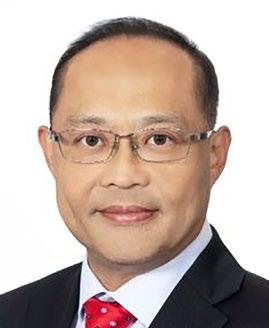
of 2023, though the average deal size climbed to $1.3b from $700m in 2023, Chu pointed out. In 2025, she expects homecoming listings from Chinese companies that are already listed overseas.
“We believe this is a good signal about the sentiment among investors,” she said, adding that she expects Hong Kong to return to the top five when it comes to global fundraising.
Hong Kong’s benchmark Hang Seng Index closed at 19,423.61 points on 29 November, gaining 13.9% from its 2023 close of 17,047.39 and is heading for its first annual gain since 2019.
Chu said the Middle East is an emerging market for Hong Kong, whose stock exchange has recognised the Saudi Exchange, Abu Dhabi Securities Exchange, and Dubai Financial Market, paving the way for their companies to apply for a secondary listing in the city.
The Stock Exchange of Hong Kong Ltd. allows firms from these bourses to seek a secondary listing in Hong Kong if they meet a $3b market capitalisation and five-year listing requirement. More than 160 companies qualify, Chu said.
“We [will] hope to see a huge number of Middle Eastern companies listed in Hong Kong, probably not right away, but I think there will be increasing interest, and hopefully we can see a few coming to our market in the coming year,”
Hong Kong would likely attract Middle Eastern companies in banking, financial services, energy, real estate, and infrastructure, she added.
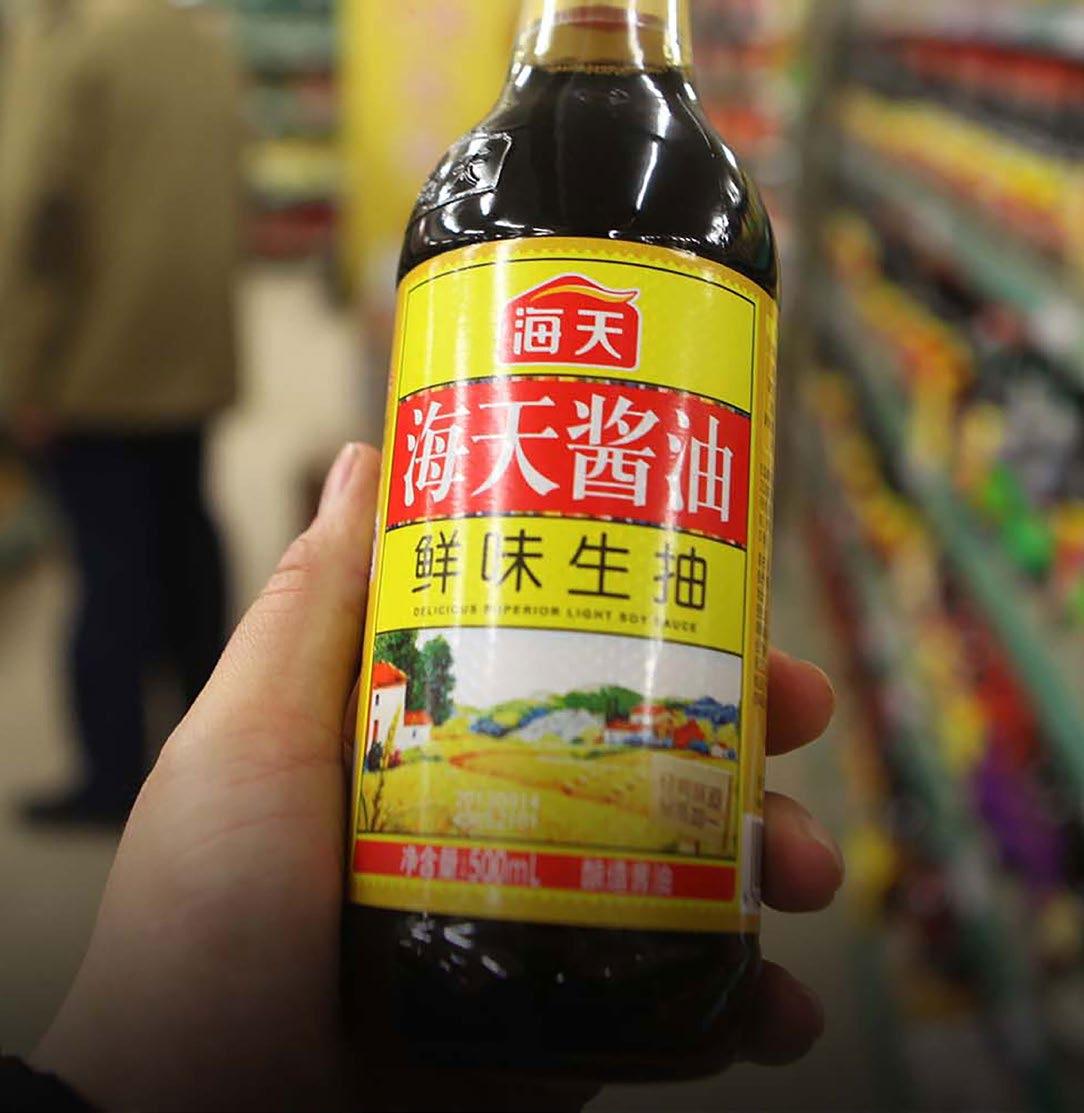
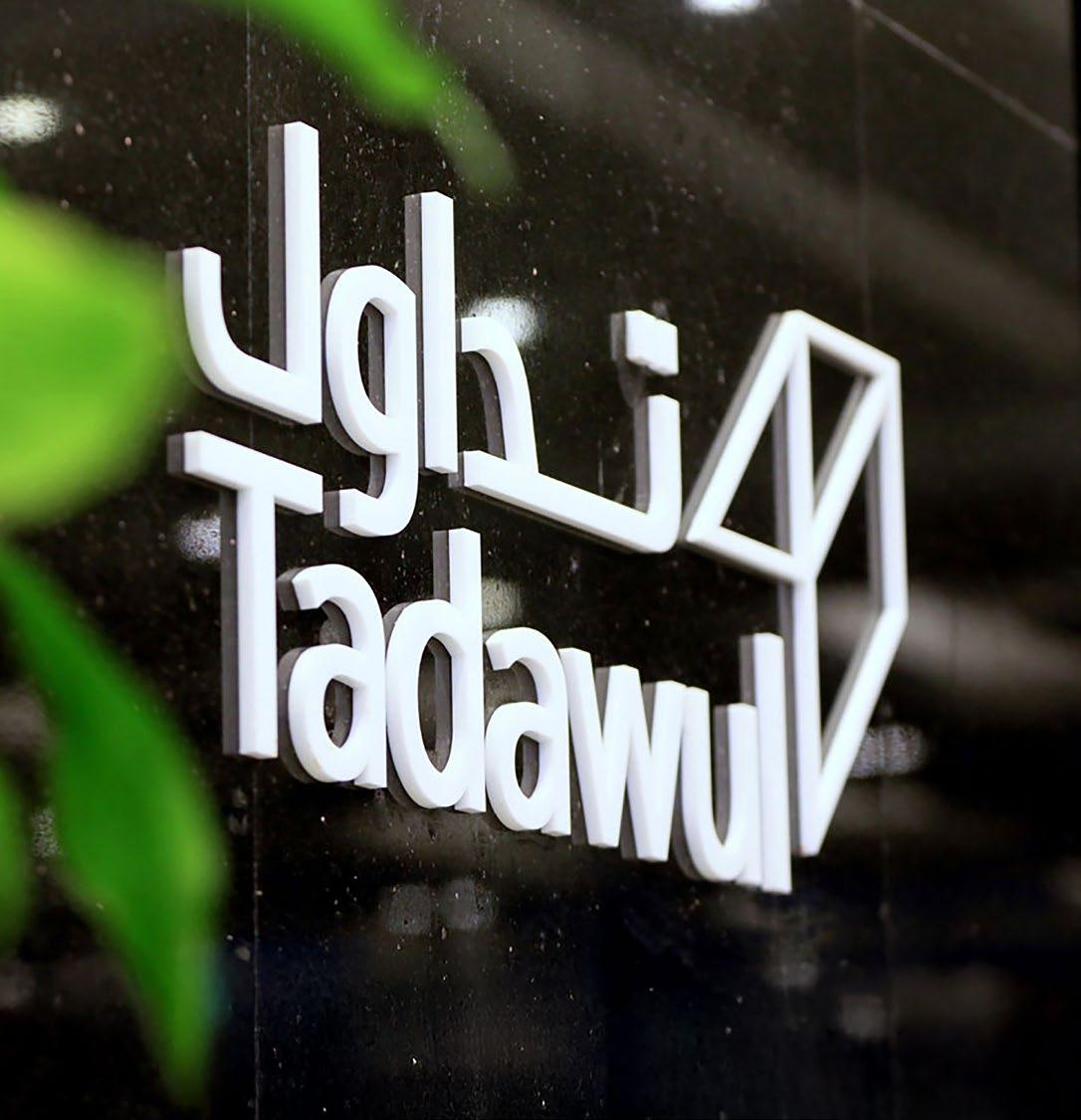
HKEX ALLOWS COMPANIES FROM THE SAUDI STOCK EXCHANGE AND OTHER MIDDLE EASTERN BOURSES TO HAVE SECONDARY LISTINGS IN HONG KONG
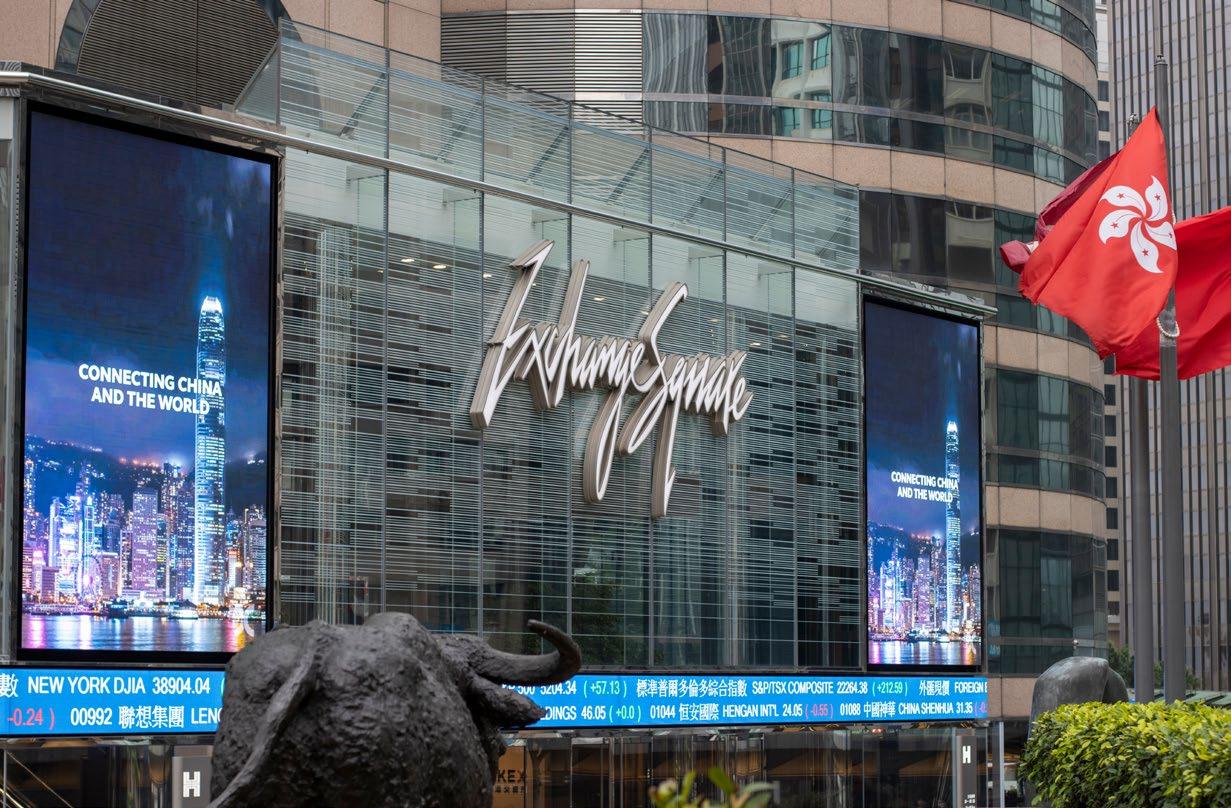
She noted that the Middle East has long shown interest in Hong Kong, evident from past investments. Recently, Saudi Arabia’s Capital Market Authority approved two exchangetraded funds tracking Hong Kong equities.
Lam said China’s Belt and Road initiative would likely attract more successful companies from the Middle East and Southeast Asia to Hong Kong given the city’s “free market” and “abundance of capital.”
‘Continued momentum’
Chu said geopolitical tensions and policies under US President-elect Donald Trump could prompt Chinese companies to consider secondary listings closer to home.
Hong Kong would remain a top IPO destination for Greater China enterprises, especially under an eased listing process, Lam said. “We have exemptions that allow not yet profit making, but high-tech companies and medical companies come to the market. Companies with a good track record already listed in the mainland can also enter the market easier,” he added.
In November, Hong Kong’s bourse said it would streamline the listing procedures to attract more companies. Under the setup, Chu said the regulators would take no more than 40 business days to assess whether there are any material concerns after a maximum two rounds of regulatory comments. If no material regulatory concerns are raised, the IPO process could be completed within six months.
The eased application process “matches quite well with the ambitions of some of the Chinese companies to be more international,” she said.
“One of the reasons to come to Hong Kong for Chinese companies is not just about fundraising, it is also about getting their brands beyond the Mainland market and getting the brands known outside, " Chu said. “That helps them set the foundation for regional expansion.”
She added that the “positive signals” from the Hong Kong Stock Exchange continue to spur many companies from the Mainland to list. “That’s why we will see continued momentum in 2025,” Chu said. Out of 91 companies with pending IPO applications, 84 are from Mainland China, she pointed out.
Lam expects Chinese companies in manufacturing, medicine, and information technology to list in Hong Kong.
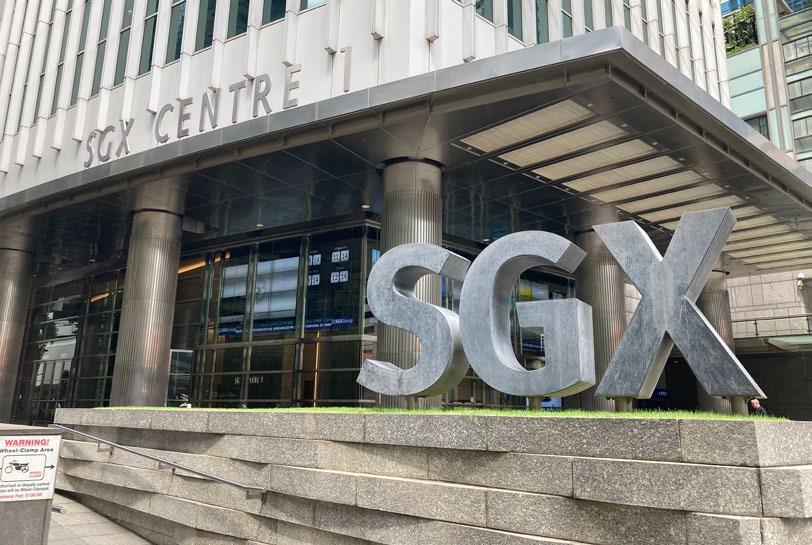
SThere’s
still a lot of upcoming mainland companies that are very successful which are not yet listed in Hong Kong
ingapore didn’t see as many initial public offerings (IPO) as Hong Kong in 2024, but both markets are expected to increase their listing volumes in 2025, driven by listing reforms in the respective markets.
Deloitte reported that Singapore raised US$34m through four Catalist IPOs in 2024’s first 10.5 months. Listings included consumer, industrial products, and healthcare firms. The Singapore Exchange also welcomed secondary listings from companies listed from Hong Kong’s bourse.
In stark contrast, KPMG reported that Hong Kong achieved HK$55.6b from 45 IPOs, reflecting a 123% yearon-year surge in funds raised.
Last year, both markets saw interest in technology, healthcare, and consumer goods, but Hong Kong drew more technology firms, while Singapore saw a rise in REIT listings, according to Danny Wan, head of Strategy for Asia-Pacific at Capco.
Chan Yew Kiang, EY Asean IPO leader, had a similar observation: “In Singapore, there is a significant proportion of mid- and large-cap issuers from the REITs and real estate as well as manufacturing sectors.”
Wan expects cross-border technology listings to increase in Hong Kong in 2025 following specialist technology companies rule changes that lower capitalisation thresholds to HK$4b for commercial Companies and HK$8b for precommercial companies.
Meanwhile, efforts to reduce listing costs through a review of requirements could position Singapore for more market activity next year, said Wan.
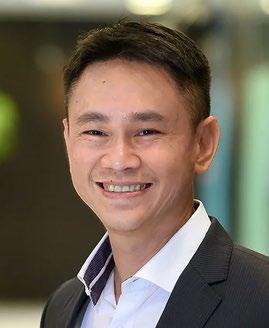

Such initiatives will “encourage more diverse listings and improve market efficiency, reinforcing Singapore's status as a leading financial hub,” Darren Ng, Transactions Accounting Support Partner, Deloitte Singapore.
“With these favourable conditions and regulatory support, the city-state’s IPO market, particularly in the REIT sector, is set for robust growth in 2025,” Ng added.
Apart from the review to improve and strengthen the country’s equities market, Chan said easing of interest rates and the performance of shares may have an impact on investor sentiments in Singapore in 2025.
The same goes for Hong Kong, said Wan, adding that stability in macroeconomic and geopolitical environments will increase market confidence.
Next year, Wan expects Singapore to continue serving as the hub for ASEAN markets and economies. He added that companies targeting the ASEAN economy often prefer the Singapore Exchange (SGX), whereas those seeking exposure to Greater China lean towards Hong Kong Stock Exchange (HKEX).
Hydrogen fuel is volatile, highly flammable and expensive, an energy expert says.
Hong Kong may need to rethink the use of hydrogen fuel in its transport sector given its inability to produce it on a large scale, and safety risks tied with the alternative fuel, an energy analyst said.
"Hydrogen is not like any other fuel that's currently being used in Hong Kong,” Grant Hauber, strategic energy finance advisor for Asia at the Institute for Energy Economics and Financial Analysis (IEEFA), told Hong Kong Business
“It is highly volatile, it is invisible, it is odourless and it is highly flammable. It's not something that can be readily substituted for other fuels that are out there, simply because of these safety aspects,” he said.
He noted that hydrogen must be delivered to all distribution points in Hong Kong, which is a big problem since hydrogen does not like to be transported. “It's a highly energyintensive process to get it [to the distribution points], therefore it’s costly and there's a high propensity for leakage and loss along the way.”
Implementation plans and risks
There are 14 trials approved for hydrogen use, including five hydrogen fuel cell (HFC) double-decker buses operated by Citybus and three HFC street-washing vehicles for the Food and Environmental Hygiene Department, Hong Kong’s Environment and Ecology Bureau said in an email.
There is also a hydrogen-powered light rail vehicle in Tuen Mun running as a non-revenue train for the Mass Transit Railway Corp. (MTRC), and two HFC refuse collection vehicles for Waihong Environmental Services Ltd.
Hong Kong, however, has a robust history of managing risks associated with hazardous materials like liquefied petroleum gas and dangerous goods, said Thomas Lo, market area manager for HK and Macau at Energy Systems, DNV, in a separate interview. He said recent risk studies for

It's a highly energyintensive process to get it, therefore it’s costly and there's a high propensity for leakage and loss along the way
hydrogen fuel cell buses conducted by the DNV and the Electrical and Mechanical Services Department position Hong Kong as “a leader in risk management for HFC buses.”
Still, Hauber said hydrogen’s tendency for higher energy losses and lower efficiency makes its use for transportation a lower-value application. “The ideal situation is that you use the hydrogen where you make it, so you don't have to transport it.”
For bringing large quantities of hydrogen into Hong Kong, he said hydrogen could be transported either by piping and liquefying it, or by binding it to ammonia, then transporting and breaking down the ammonia, which leads to a 75% loss of the energy used to make it.
Its application in buses and trains is a “fantasy use” because it is uncompetitive, compared to, say, electrifying those vehicles, he added.

Apart from safety issues, it would also be hard for Hong Kong to produce enough hydrogen, Hauber said.
Hong Kong has Towngas, which supplies gas with a 50% hydrogen content, which Lo said could be leveraged for hydrogen distribution and use. Towngas' infrastructure, however, must be “assessed for safety and feasibility when conveying hydrogen
blends and 100% hydrogen,” he added. Hauber added that hydrogen produced by Towngas is carbonintensive. “To replace current carbon-intensive uses with hydrogen would require a large-scale import of hydrogen.”
Lo, in his interview, also said Hong Kong must import much of its hydrogen. “It is not naturally endowed with ample resources suitable for renewable generation required to produce renewable electricity and, in turn, green hydrogen and derivative products.”
Hauber noted that even with imports from Mainland China, the world’s biggest green hydrogen producer, large-scale hydrogen use in Hong Kong is still “a very long way off.”
Sinopec’s Kuqa petrochemical refinery in Xinjiang is currently the largest green hydrogen producer, but the plant only yields 20,000 tonnes of hydrogen yearly and needs 300 megawatts of renewable energy inputs either from wind or solar. All of that output is for the refinery’s own use.
Achieving a production scale of a million tonnes would need gigawatts of renewable energy from farms that will occupy thousands of hectares of land.


A plan to increase its vault capacity means it can offer cheaper storage rates than London.

Hong Kong should strengthen yuan-denominated gold contracts in its derivative market and set up an Asia-focused gold benchmark as part of its push to become an international gold trading market that is dominated by Shanghai, New York, and London, analysts said. The city should leverage its ties with China to raise the profile of these contracts and compete with their more widely traded US dollar-denominated counterparts, Ross Maxwell, global strategy and operations lead at multi-asset broker VT Markets, told Hong Kong Business. The contract could attract more regional investors particularly from Mainland China "as it would internationalise the yuan and reduce currency risk exposure" for Asian, especially Chinese, investors, he added. Meanwhile, the benchmark would complement the pricing systems in London and New York and reduce dependency on US dollar pricing, attracting more participants, Maxwell said. It is also the next best step since Hong Kong already has a strong gold infrastructure, he pointed out.
He said the city should emulate the US’ strong derivative market to gain an edge over Shanghai, Asia’s biggest


gold market though it has a much less established futures and options market.
He added that if Hong Kong could boost its derivative market, match London’s physical liquidity and trust and Shanghai’s strength in physical gold trading, it would be wellpositioned to become a major gold trading hub.
Maxwell said Hong Kong should capitalise on its flexible regulatory regime and preserve its tax-neutral stance to attract foreign investors. Shanghai’s strict rules remain a major hurdle to its ambition to become a global trading centre.
He said Hong Kong’s established gold storage facility, the Hong Kong International Airport Precious Metals Depository, gives it an edge. Airport Authority Hong Kong has announced plans to increase the depository’s capacity to 200 from 150 tonnes, with room for at least 1,000 tonnes.
With higher capacity, the city could offer much cheaper storage costs than London, Maxwell said.
“Hong Kong's geographical location gives it a clear advantage over London and the US when looking to attract Asian investors, especially with the high costs for storing gold in London,
and the potential to align its trading hours with Asian markets,” he added.
It should also take advantage of its close ties with China, which consumed 741.732 metric tonnes of gold in the first three quarters of 2024, based on data from the council.
“Hong Kong’s deep economic ties to Mainland China make it a natural conduit for gold to access the Chinese market, which is the largest consumer market for gold in the world,” said Shaokai Fan, global head of central banks at the World Gold Council.
Whilst it is important for Hong Kong to work with Shanghai, it must also keep its market accessible to the world, Maxwell said.
He noted that the threat of geopolitical tensions and another round of trade wars under US President-elect Donald Trump, as well as perceptions of reduced Hong Kong autonomy could affect investor confidence.
“Striking a balance between leveraging its ties with China whilst also maintaining an attractive regulatory environment for foreign investors will be key,” he added.
Still, the biggest hurdle for Hong Kong’s ambition to become a major gold trading hub is intense competition from the Big Three players.” Singapore is also a potential competitor as it can offer a tax-friendly alternative,” Maxwell said.
Fan said Hong Kong should find a niche in a competitive gold market. “Hong Kong should find a specific market to serve, or offer innovative solutions that will enhance its role in the global gold market.”
“To differentiate itself, Hong Kong should seek ways to improve gold trading practices, bring in new technologies, or innovate gold-based product offerings," he added.
Hong Kong should likewise leverage technology such as blockchain and the cloud to improve security in trade integration and ownership records, giving clients transparent access to their holdings, Maxwell said.
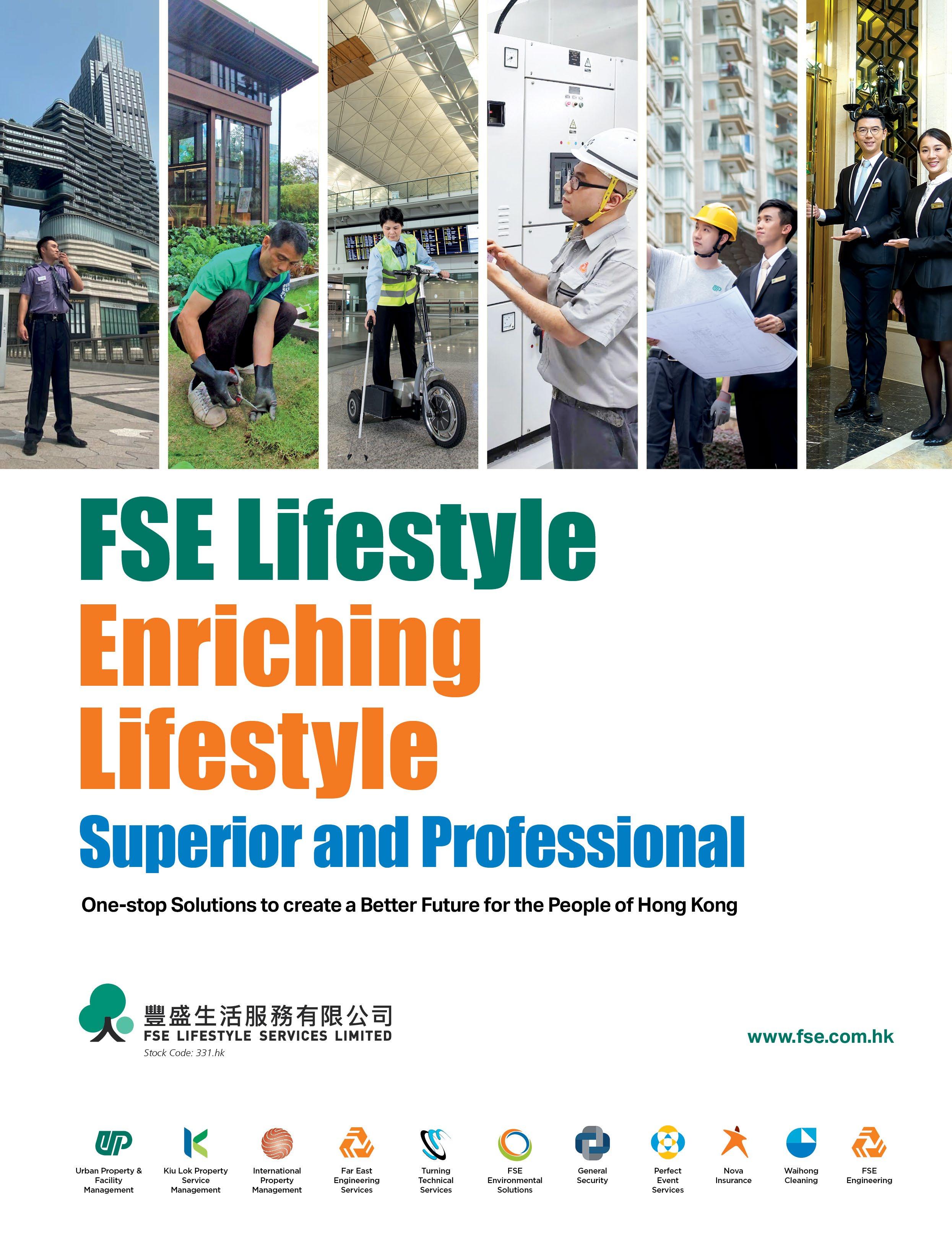
Analysts are not too worried about the impact of US tariffs on Asian investments.
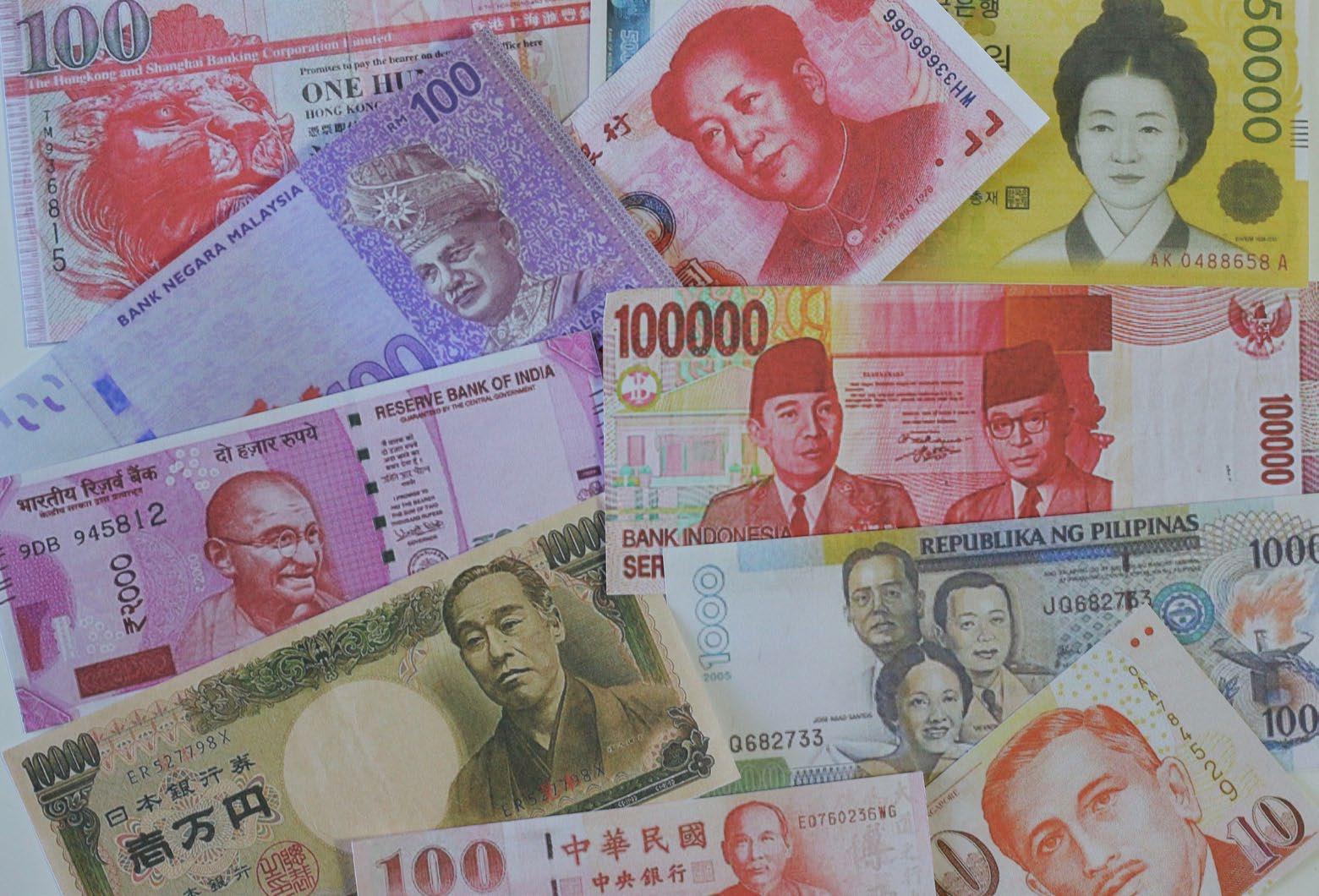
Hong Kong investors are likely to weigh another round of trade wars between the world’s biggest economies, Asian currencies’ potential rally, and Hong Kong and China’s strong tech sectors in what is shaping up to be a “year of volatility,” analysts told Hong Kong Business magazine.
Despite the expected trade uncertainty — fanned by incoming US President-elect Donald Trump’s threat to raise tariffs against China, Canada, and Mexico — most analysts are not too bothered by Asia’s chances this time around.
“We’re tempted to be pretty sanguine about the impact of tariffs,” Mel Siew, a portfolio manager at Muzinich & Co., said in an interview with Hong Kong Business
“The Asian region has got very strong fundamentals. You can make a case that there should be a pretty limited impact as well this time around, despite the initial reaction and volatility," he added.
Asian equities and currencies would probably perform well, whilst Hong Kong and China’s tech space offer attractive investment opportunities, according to the Hong Kong investors and analysts.
There should be a pretty limited impact as well this time around, despite the initial reaction and volatility
Here are some investment ideas for the next 12 months.
Sell Li & Fung and peers
Despite their more upbeat outlook for the US-China trade situation, analysts still cautioned against companies in sectors that may be caught between the trade wars.
“Li & Fung is a clear sell,” Daniel Tan, a portfolio manager at Grasshopper Asset Management, told Hong Kong Business in an interview.
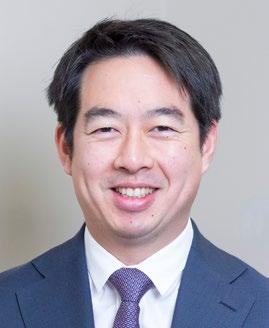

The Hong Kong-based supply chain company endured a sell-off at the height of the US-China trade wars in 2018 and went private in 2020. “I will have that positioning preference for similar quality names in a similar industry,” he added.
Investors should shun sectors sensitive to international trade, Ross Maxwell, global strategy operations lead for online trading platform VT Markets, told Hong Kong Business
“This will be more sensitive as Hong Kong draws closer to mainland China and becomes more aligned with its economy,” he added.
Lucrative HK tech sector Venture capitalists targeting tech development and unicorns in Hong
Kong and the Greater Bay Area offer attractive investment opportunities in 2025, Maxwell said.
He cited Hong Kong government efforts to develop Cyberport and Science Park as it tries to become a fintech hub. “As such, fintech startups or established companies that are looking towards digital transformation can offer potential lucrative investment opportunities.”
Tech startups that focus on artificial intelligence (AI) and biotechnology also offer good opportunities. So do companies in digital payments, blockchain, and cybersecurity.
Apart from Hong Kong, China’s tech space is another solid pick.
Tan cited China’s electric vehicle (EV) industry, and prefers the stock of car brand BYD over Tesla, which he said is overvalued.
“I don't really like where Tesla is trading,” he said. “EV as a whole has been rallying too much, [and] poised to sell off early next year or throughout the whole year.”
Siew, meanwhile, cited the Chinese tech space for its strong balance sheets. “Because of its small-ticket consumption… [consumers] don’t have the hesitancy to spend,” he said, adding that tech companies have logged strong year-on-year growth.
China had 369 technology unicorns with an average value of $3.8b as of April 2024, the second-biggest in the world, according to data from the World Economic Forum (WEF).
Asian currencies are solid Asian currencies are expected to rally this year. “In the long run, we anticipate an appreciation of Asian currencies, driven by additional stimulus from China, which is likely to draw new capital inflows into the region, along with improving macro fundamentals in ASEAN (Association of Southeast Asian Nations) and India,” said Alfred Mui, managing director and head of Asia Fixed Income Investment Management at HSBC Global Asset Management.
Tan said the currency and bond

rallies could extend to emerging markets globally. “On the longer term basis, [we see a] potential for equity rally within emerging markets. Some of the countries that we like are India, China, Colombia, China, Indonesia, [and] the Philippines.”
Mui said Asia’s fixed income markets including currencies are less volatile than those in emerging global markets. “This stability, coupled with an attractive duration-insulated carry, provides essential insulation against rising global market volatility.”
Steer clear of the Hong Kong dollar
Since the Hong Kong dollar is pegged to the US dollar, its interest rates generally follow those set by the US Federal Reserve, reducing the flexibility of the Hong Kong Monetary Authority in setting policy rates. This opens it up to risks from global inflationary pressures and rate fluctuations, Maxwell said.
Ride the easing cycle with bonds
Trump’s tariff obsession will elicit some knee-jerk responses in the investment space in the early days of his second term. Overall, Asian investment-grade bonds will see little impact, just like in 2018, Siew said. The rate-easing cycle by central banks across the globe is expected to continue next year, and bonds stand to benefit. When interest rates fall, bonds are more profitable than other investments, so bondholders can sell them at a premium.
The 20-year bonds look particularly promising, and were giving 4.7% in returns in late November, Tan said.
“The front end of the curve, short-dated bonds, look best-placed, particularly in an Asian context versus the US,” Siew said. “That is where we see some pickup in Asian credit spreads over the US.”
High-coupon bonds can also be appealing. “High-coupon bonds will surprise people in terms of returns they can generate over other investments, particularly, say, longer maturity bonds and tenor bonds that have high headline yields but generate low income because they have low coupons,” he added.
Never too late to turn green Exchange-traded funds dedicated to sustainable practices, green bonds, and companies investing in renewable energy infrastructure in Asia may

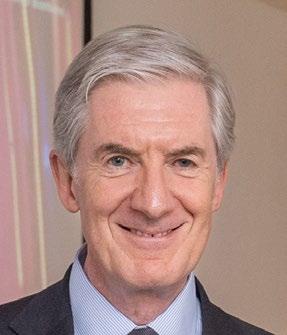

also offer attractive investment opportunities.
“Global efforts to combat climate change will offer opportunities in the renewable energy sector and a focus on a company’s environmental and social criteria can give clues for long-term returns,” Maxwell said.
The shift toward cleaner energy and decarbonization through investment in solar, wind, and hydrogen would continue to be a predominant theme in the second half of the decade, he added.
Singapore banks a good hiding place
For the truly cautious: Singapore banking stocks may be a good place to hide from the market volatility expected from Trump version 2.0 and shifting expectations about the US Federal Reserve’s next moves.
United Overseas Bank Ltd. (UOB), Oversea-Chinese Banking Corp. Ltd. (OCBC), and Development Bank of Singapore Ltd. (DBS) expect potentially low earnings next year, RHB Bank Berhad said in a November 2024 report. The three banks offer a dividend yield of 5.6% for next year.
Of the three, DBS offers dividend safety given its guidance for a fixed step-up in absolute dividend per share, whilst OCBC and UOB may offer higher dividend per share if earnings in 2025 turn out to be better.
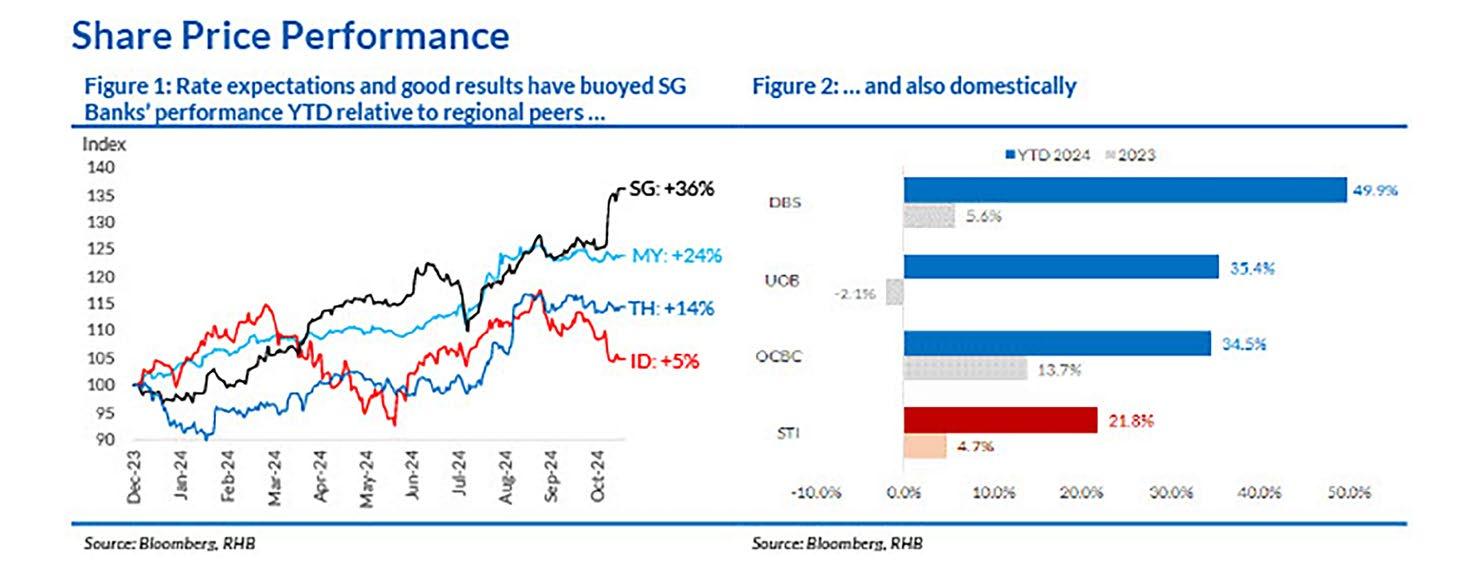

Source: J.P. Morgan Global Research - Commodities
Whilst a safe haven, Singapore banks’ profits are expected to slow down in 2025 as their net interest margins (NIMs) are expected to have already peaked in 2024.
For Hong Kong banks, a dip in net interest margins could lead to a decline in their profitability next year, Shinoy Varghese, S&P primary credit analyst, wrote in the S&P report.
“We expect any potential negative impact on asset quality from Hong Kong and China commercial real estate to be manageable,” he added.
Private equity is poised for a dynamic year, with pent-up demand and strong financing conditions likely to catalyse deal-making, particularly in the US and Europe, said Khai Lin Sng, co-founder and chief investment officer at Alta Alternative Investments Pte. Ltd.
“Growth-oriented investors can look to buyout, growth, and venture strategies, with sectors like software, technology, and services offering attractive opportunities,” she said. “These areas are primed for innovation and expansion, creating significant value for long-term investors.”
On the other hand, investors may need to be cautious in industries facing regulatory uncertainties, such as cryptocurrencies. “Additionally, sectors heavily reliant on global supply chains like manufacturing may be more vulnerable to
geopolitical tensions and trade disruptions,” Sng said.
Be cautious of oil commodities
Analysts are bearish for oil commodities in 2025. J.P. Morgan Commodities Research forecasts Brent to decline to $60 per barrel by the end of next year.
Crude oil prices have soared amidst war in the Middle East. But even then, prices have remained pretty stable, averaging at $70 to $75 a barrel, Siew said.
“If suddenly, you were to get ceasefires in place, and especially with the US being more focused on its energy self-sufficiency, what does that mean for oil prices? We’re cautious on that commodity,” he said.
There is also likely to be an oil oversupply in 2025, Natasha Kaneva, head of Global Commodities Strategy at J.P. Morgan, said in an October 2024 report.
“Price is a function of demand for oil inventory, which in turn depends on the willingness of users to either deplete or restock their holdings,” she said. “Given the anticipation of an oversupplied market in 2025, oil consumers have so far opted to wait, causing a dislocation of the oil price from its fair value.”
“However, shifting dynamics in the Middle East might create a greater urgency to replenish inventories, thereby realigning the price of oil with its fundamental level,” she added.

Analysts cautioned on investing in Hong Kong properties– and real estate investment trust (REIT) stocks — amidst still high interest rates.
“Property prices in Hong Kong have also corrected a fair bit this year, and rental yields are coming off,” Daniel Tan, a portfolio manager at Grasshopper Asset Management, told Hong Kong Business in an interview.
Tan added that Hong Kong has also become less attractive for foreign corporations looking to establish a presence in Asia. S&P, citing Hong Kong's Census and Statistics Department data, reported a 13% drop in regional headquarters of multinational firms since 2019, with their workforce shrinking 32% to 132,000 by the end of 2023.
Ross Maxwell, global strategy operations lead at VT Markets, made a similar observation, saying that regulatory changes and mainland influence have altered the business landscape in Hong Kong.
Maxwell advised investors to stay vigilant for downturns in the real estate market, cautioning that Mainland China’s economic slowdown could further complicate Hong Kong’s recovery.
Despite these challenges, Thomas Chak, head of Capital Markets & Investment Services at Colliers Hong Kong, sees opportunities in Hong Kong's real estate market.
“In the first half of 2025, institutional and property funds are expected to explore lucratively priced markets like Hong Kong and Mainland China for value-driven investments,” he said.
Chak noted a shift toward alternative assets, particularly student accommodation, driven by government policies to position Hong Kong as an international education hub.
"These factors are encouraging for investors looking to capitalise on emerging opportunities in Hong Kong’s dynamic economic landscape," he added.
In the Q4 2024 Property Issue of Hong Kong Business, experts revealed that investors are bottom-fishing for properties with stable returns like hotels that can be converted into student houses and industrial sites that can be repurposed into cold storage or data centres amidst Hong Kong’s property slump.
Khai Lin Sng of Alta Alternative Investments said logistics and green infrastructure also offer promise. Investors, however, should steer clear of office and retail properties, especially in oversupplied markets.


Chief headhunters in Hong Kong expect increased demand for lawyers who can advise clients on business transactions in regard to the laws of a particular market amidst regulatory intensity including in the areas of risk management, governance, and data.
Legal jobs such as regulatory compliance manager, compliance officer for hedge funds, and legal counsel for funds would be in high demand next year, global recruitment firm Robert Walters Hong Kong said in a report in November.
Lawyers who specialise in cryptocurrencies would be among the most sought after, said Adrian Lam, senior director and person in charge of Hays’ legal recruitment in Hong Kong.
Law firms have been hiring legal experts in the crypto space this year, alongside finance and litigation, restructuring, new technology, and licensing, he pointed out.
The growing need for cryptospecialised lawyers could be tied to Hong Kong’s efforts to position itself as a virtual asset hub, he added.
Reed Smith Richards Butler LLP is also enhancing its regulatory compliance expertise, but more on global sanctions, according to Denise Jong, a partner at the law firm.
Stephenson Harwood LLP, the 16th-biggest law firm in Hong Kong by the number of legal professionals, based on Hong Kong Business’ annual


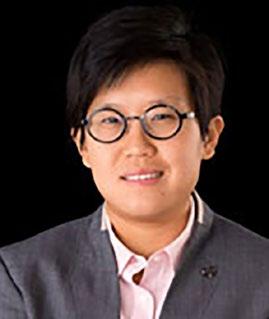
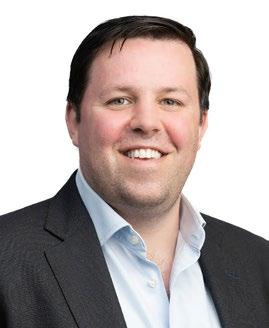
survey, is focusing on regulations in Mainland China amidst its growing collaboration with Hong Kong. The firm is linked to Wei Tu law firm in Guangzhou, China.
Wei Tu has been “increasingly busy with work involving the crossborder flow of data and relevant compliance issues, advising clients across transactional, operational, and contentious contexts,” said Evangeline Quek, managing partner at Stephenson Harwood's Greater China offices.
She cited the need for lawyers and law firms to work together internally and externally with peers and clients so they could better deal with the changing global regulatory landscape.
Reed Smith and Stephenson Harwood are also prioritising corporate and capital markets, which Jong expects to turn for the better by the second half of next year. Other growth areas for Stephenson Harwood include private wealth, finance and litigation.
Quek said the firm is also exploring opportunities in the global energy transition, life sciences and healthcare, transportation and trade, technology, and private capital.
Some legal firms in Hong Kong expect aggressive expansion next year, whilst others are cautious about recruitment.
Appleby, known for its offshore expertise, anticipates slower hiring in

2025 for its Hong Kong office after boosting its headcount in dispute resolution, corporate law, and banking this year. The firm, however, expects growth in their Shanghai office, which serves both Hong Kong and Mainland China clients, and is eyeing a second Mainland China office.
David Bulley, Appleby's managing partner for Hong Kong and Mainland China, said the firm would prioritise senior-level hiring in two key areas in 2025, but declined to give the details.
Over the past 12 to 18 months, Lam cited a decline in legal hiring due to market conditions. “Looking ahead to 2025, it’s neither an overly pessimistic nor an overly optimistic outlook,” he told Hong Kong Business. He added that most law firms and in house legal teams are consolidating, not restructuring to save resources.
To entice more legal professionals and retain talent, both Stephenson Harwood and Appleby are implementing performance-focused pay structures.
“We offer transparent pay structures to allow our people to understand how their performance is linked to their reward, so expectations are clear,” Quek told Hong Kong Business, adding that regular market benchmarking of their pay levels ensures they remain competitive.
Lam said law firms should structure long-term incentives, such as split-payment bonuses, similar to the practice of some major Chinese companies. Lawyers also prefer flexible work hours because their job is more of a back office function, he added.
Bulley said long-term career opportunities especially for high performers could drive high retention rates, whilst Quek said Stephenson Harwood offers legal, skill and on-thejob training, as well as mentorship for their employees.
These should help law firms attract and keep talent in the legal market, which is “very competitive,” Quek said.
Bulley said Hong Kong has become less desirable as a place to live and work for lawyers. “Many candidates for offshore firms in Hong Kong previously came from the UK, Australia and New Zealand, but we now see far fewer candidates wishing to move from these jurisdictions to Hong Kong.”
In search of the best lawyers in the region, Hong Kong Business reached out to over 80 legal institutions in Hong Kong. After rigorous review of all nominations submitted, 11 men and nine women made it to the final cut.
Agents in this year’s list come from Appleby, Bird & Bird, Clyde & Co., Cornerstone Chambers, HFW, Oldham, Li & Nie, Robertsons, Stephenson Harwood, Tanner De Witt, Timothy Loh LLP, and Withers.
Leading the pack is Withers with three representatives. The youngest in this year’s list is from Timothy Loh LLP.
This year’s lawyers excel in financial services, international law, mergers and acquisitions, real estate, and family law.
Many of this year’s awardees assisted clients in million-dollar cases, such as securing a US$34m award in an unsafe port dispute, and billion-dollar deals, including advising a New York Stock Exchange-listed asset manager on a US$720m acquisition. Many excelled locally and possess valuable international experience as well.
Here are this year’s awardees arranged from the youngest to the most senior in years.

Sally, recently promoted to Managing Associate, specialises in financial services regulation, virtual assets, crypto derivatives, FinTech, and investment funds. She advises on regulatory compliance, investigations, and disputes, including for banks, investment firms, and digital asset businesses. Notably, Sally has represented some of the top 5 global digital asset exchanges with HK$50b and HK$200b of average daily trading volume, as well as an SFC-licensed VA fund manager regarding its Web3.0 private equity fund. Sally is trusted for her strategic insight and perceptiveness in this evolving regulatory landscape.

Mary is a Managing Associate that specialises in corporate law, M&A, financial services regulation, and private equity funds. She advised a U.S. investment firm on Hong Kong regulatory issues for its HK$19.5b acquisition of a majority stake in an international insurance broker. In M&A, she guided a NYSE-listed asset manager through a HK$5.6b acquisition of a global alternative asset manager. Mary also led the formation of a HK$46.8b Asia-focused LPF private equity fund, ensuring compliance with sovereign investment requirements.

Jessica, Counsel in the Professional & Financial Disputes team at Clyde & Co’s Hong Kong office, specialises in professional liability and financial lines disputes. She handles complex professional negligence litigation across multiple sectors and jurisdictions. Jessica regularly advises auditors, directors, insurance professionals, and construction professionals. She is conversant with various dispute resolution mechanisms, including mediation, judicial settlement conferences and other forms of ADR. She also actively engages in pro bono initiatives and has a keen interest in public interest law.

Alex, a partner in the private client and tax team at Withers, specialises in trust and estate planning, US taxation, and cross-border probate matters. Qualified in Hong Kong, New York, and England & Wales, he advises high-net-worth individuals on establishing and restructuring family trusts, pre-US immigration tax planning, and relinquishment of US citizenship or green cards. Alex also assists individuals with coming into compliance with their US tax. Recognised as a Tier 1 Private Client Global Elite Lawyer in 2024, Alex is trusted by private clients navigating complex tax and estate planning globally.

Winnie, a Senior Associate at HFW’s Hong Kong shipping team, specialises in shipping arbitration and litigation, excelling in charterparty disputes. She represents shipowners, charterers, and clubs in arbitrations and court proceedings across Hong Kong, London, and Singapore. Working on shipping projects all over Asia, Winnie’s notable cases include securing an award over HK$260m in an unsafe port dispute and resolving complex shipbuilding and delivery issues. Active in the shipping community, she is a Fellow of the Chartered Institute of Arbitrators and a frequent industry speaker.
6 Whitney Chan 34, HFW

Whitney, a Senior Associate at HFW's Hong Kong Aerospace team, specialises in aircraft financing, leasing, and trading transactions. Triple-qualified in England & Wales, Hong Kong, and the British Virgin Islands, she primarily advises leading aircraft leasing companies and financial institutions. Her expertise includes aircraft portfolio financing, sale and leaseback deals, portfolio asset sales, JOLCOs, and P2F cargo leases, as well as corporate jet transactions. Fluent in English, Cantonese, and Mandarin, Whitney has led significant aviation finance and leasing projects across Asia, working with airlines and stakeholders throughout the region.
9 Samuel Leung
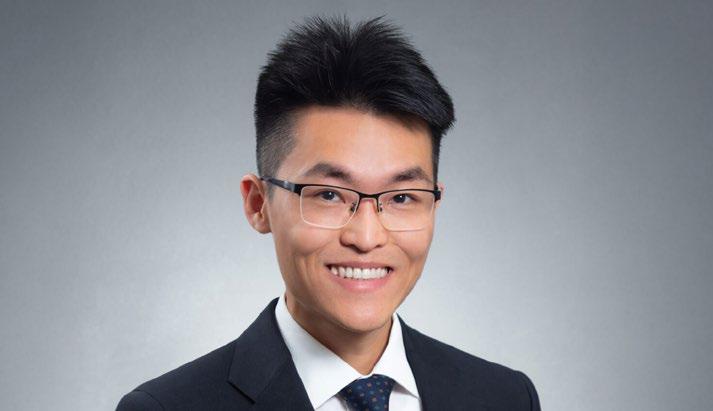
Samuel, a Charles Ching Scholar, was called to the Bar in 2022 and is developing a broad civil and criminal practice. He holds a Juris Doctor from CUHK, where he graduated on the Dean’s List, and a Master of Laws with Distinction from UCL. A former Judicial Assistant at the Hong Kong Court of Final Appeal, he assisted judges with substantive appeals and applications. Fluent in Chinese, Samuel advises Mainland Chinese clients and lectures at City University of Hong Kong. His research publications have been cited by apex courts like the Hong Kong Court of Final Appeal and Supreme Court of Pakistan and leading texts, including Snell’s Equity.
7 Matthew Cheung 35, Cornerstone Chambers

Matthew, called to the Bar in 2015, specialises in civil and commercial litigation with a focus on construction disputes, building management, family law, land law, intellectual property, and trust matters. He also handles criminal cases, acting for both prosecution and defence. A Society of Construction Law Hong Kong Scholar, Matthew is an associate of the Chartered Institute of Arbitrators. He holds a Bachelor of Building Engineering and is a visiting lecturer at Hong Kong Polytechnic University. Matthew frequently speaks on land and building management topics for various institutions.
8 Jonathan Lam 35, Oldham, Li & Nie

Jonathan specialises in commercial and contractual disputes involving multinational corporations, often with cross-border elements. He has extensive experience in trust and probate matters and has acted in landmark cases in the High Court and Court of Appeal. His expertise includes shareholder disputes, derivative actions, debt recovery, civil fraud, insolvency, and complex probate issues. An affiliate member of The Society of Trust and Estate Practioners (STEP), Jonathan brings a deep understanding of trust and estate matters to his practice, making him a trusted adviser to his clients in both contentious and non-contentious cases.
11 Alex Ye

Yvonne, a Partner since 2020, specialises in matrimonial and family law, with expertise in complex children applications, including Hague Convention cases, adoption, surrogacy, and custody matters. She advises high-net-worth clients on asset division, pre- and post-nuptial agreements, and estate planning. Yvonne has represented clients in high-conflict trials, including an 18-day High Court case, and handled notable cases such as securing a favourable settlement in a HK$700m asset division. She is a member of the Hong Kong Family Law Association and contributes to global family law publications.
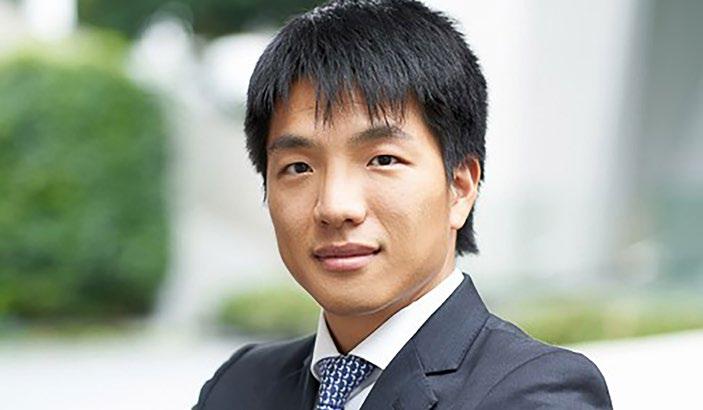
Alex, a special counsel in the international arbitration and litigation team at Withers, specialises in cross-border disputes, including international arbitration, commercial disputes, regulatory investigations, restructuring and insolvency, and contentious probate matters in Hong Kong and Mainland China. He has acted under various arbitral institutional rules and as a tribunal secretary in complex international arbitrations. Alex’s dual civil law and common law background, along with qualifications in Hong Kong, England & Wales, and the People’s Republic of China bar exam, makes him adept at handling multi-jurisdictional contentious matters.
12
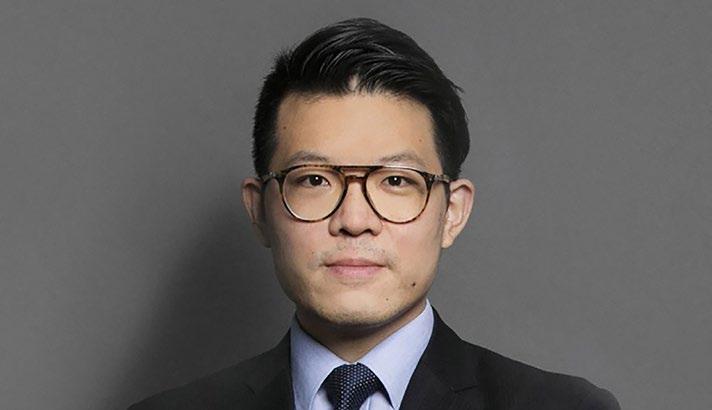
Wilfred, a partner at Bird & Bird in Hong Kong, specialises in technology, media, telecoms (TMT), and data protection law. Bilingual in Chinese and English, he advises clients on commercial, transactional, and regulatory matters, including complex crossborder technology contracts, licensing, and fintech-related compliance. With over 10 years of experience, Wilfred has expertise in data protection audits, cross-border data transfer, and cybersecurity incident management. He has led key projects across Asia, including advising on regulatory compliance for cloud services, financial institutions, and public sector technology integration.
15
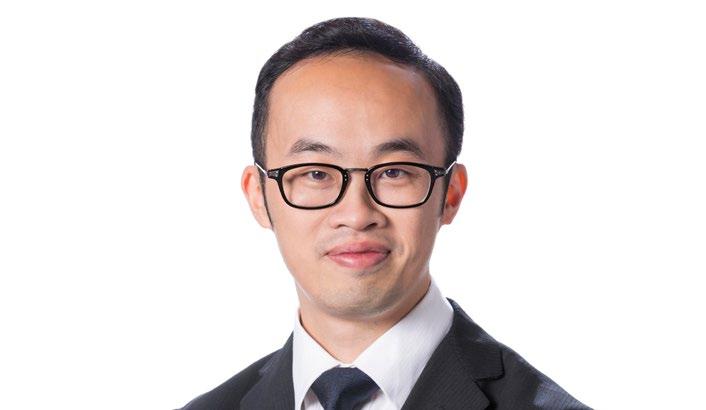
Mark, a Consultant in the Employment Practice, advises employers and employees on recruitment, termination, misconduct, post-termination restrictions, and employment documentation. He specialises in antidiscrimination and anti-harassment laws, grievance management, and contentious employment matters. Mark has represented clients in the Labour Tribunal, District Court, Court of First Instance, and Court of Appeal, and conducted internal investigations into misconduct and breaches of employment contracts. He has considerable experience in conducting large scale internal trainings and seminars for clients.

Ross is a private wealth lawyer based in Hong Kong, advising clients across Asia Pacific. Specializing in international tax, trust law, estate planning, and family business governance, he assists globally mobile families, executives, entrepreneurs, and their advisers with cross-border legal and tax matters. Collaborating with teams and independent firms in Asia, Europe, and the US, Ross provides comprehensive advice. Recognized as a leading lawyer, he serves on the Executive Committee of the Hong Kong Trustees' Association and is an associate member of the Society of Trust and Estate Practitioners.
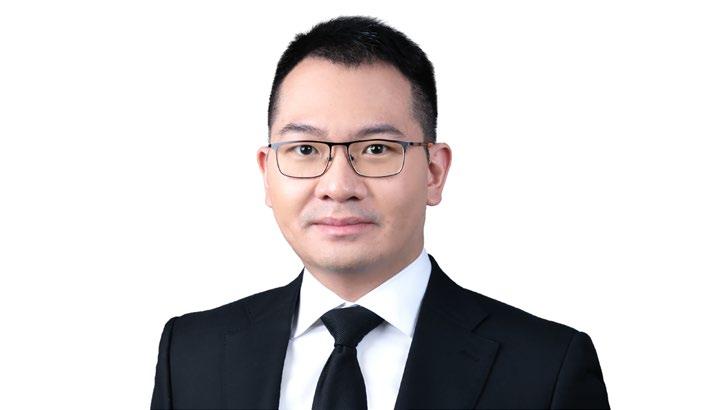
Simon, a seasoned litigator, specialises in civil and commercial disputes, including international arbitrations, shareholder conflicts, regulatory enforcement actions, and IP licensing. He has acted in highprofile cases, such as shareholder disputes involving hedge funds and investment claims exceeding HK$1b, and has represented former management in investigations by Hong Kong’s Securities and Futures Commission and Independent Commission Against Corruption. Simon’s expertise includes handling just and equitable winding-ups, unfair prejudice claims, and statutory derivative actions. He has been instrumental in leading complex litigation.

Teresa, a banking and finance lawyer, specialises in structured finance and restructuring, with expertise in syndicated and bilateral loans, real estate financing, acquisition finance, and ship finance. Her secondments with Standard Chartered Bank and ANZ Bank provided valuable insights into internal banking procedures. Promoted to Partner in May 2024, Teresa is praised for her negotiation skills, logical approach, and efficiency in delivering high-quality legal documentation. With experience in traditional finance and complex transactions like aircraft and ship financial leasing, she is known for her clientfocused solutions and dedication to teamwork.

David Bulley, Managing Partner of Appleby for Hong Kong and Mainland China, specialises in private equity, public and private M&A, and restructuring. Over the past five years, he has advised on over US$170b in M&A transactions and US$550b in restructuring mandates. David represents creditors and debtors in highvalue restructurings, including Chapter 11 proceedings, offshore schemes of arrangement, and liability management exercises. Based in Asia, he has led numerous high-profile cross-border transactions and restructurings involving major companies and financial institutions across the region.

Sharon is a senior associate at Bird & Bird and leads the real estate practice in Hong Kong. She regularly advises multinational and local private equity funds and developers on significant property transactions. Sharon is devoted to serving the community and the legal profession and serves on numerous Hong Kong government panels and nonprofit boards, including as the Chairlady of the Hong Kong Law Society’s Greater China Legal Affairs Young Solicitors' Sub-Committee and the NonOfficial Member of the HKSARG Steering Committee on Rule of Law Education.
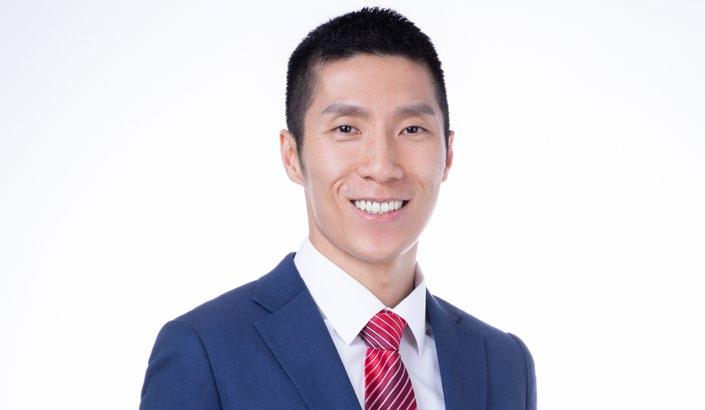
Pan, a corporate lawyer and partner in the firm’s commercial and corporate finance teams, specialises in M&As, joint ventures, and corporate governance. He advises public and private companies, banks, and individuals across Hong Kong, Mainland China, and internationally, offering pragmatic and cost-effective legal solutions tailored to client needs. Among the first Hong Kong lawyers eligible to practice People’s Republic of China law in the Greater Bay Area, Pan frequently speaks on regulatory topics, including AI governance.

Anisha, a partner in the divorce and family team at Withers, specialises in matrimonial law with a focus on complex, international cases. She advises on divorce, separation, financial disputes, child custody, maintenance, and relocation, often involving intricate asset structures, family trusts, and third parties. Anisha’s civil litigation background adds depth to her expertise in enforcement applications and high-net-worth cases. Anisha is an accredited and trained general commercial and family mediator with HKMAAL, as well as a trained collaborative practitioner. She has experience in wills, probate, and general civil litigation.
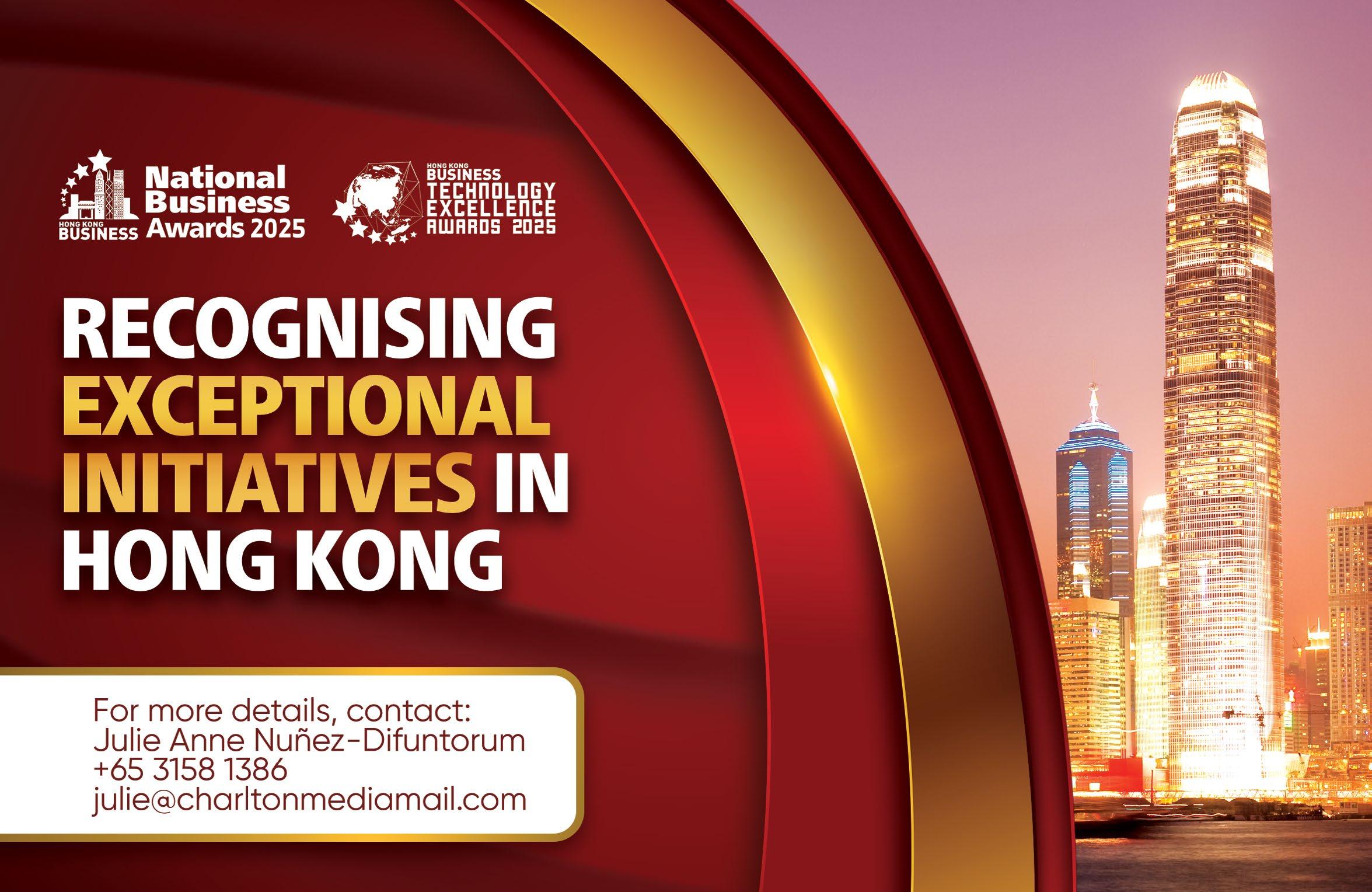
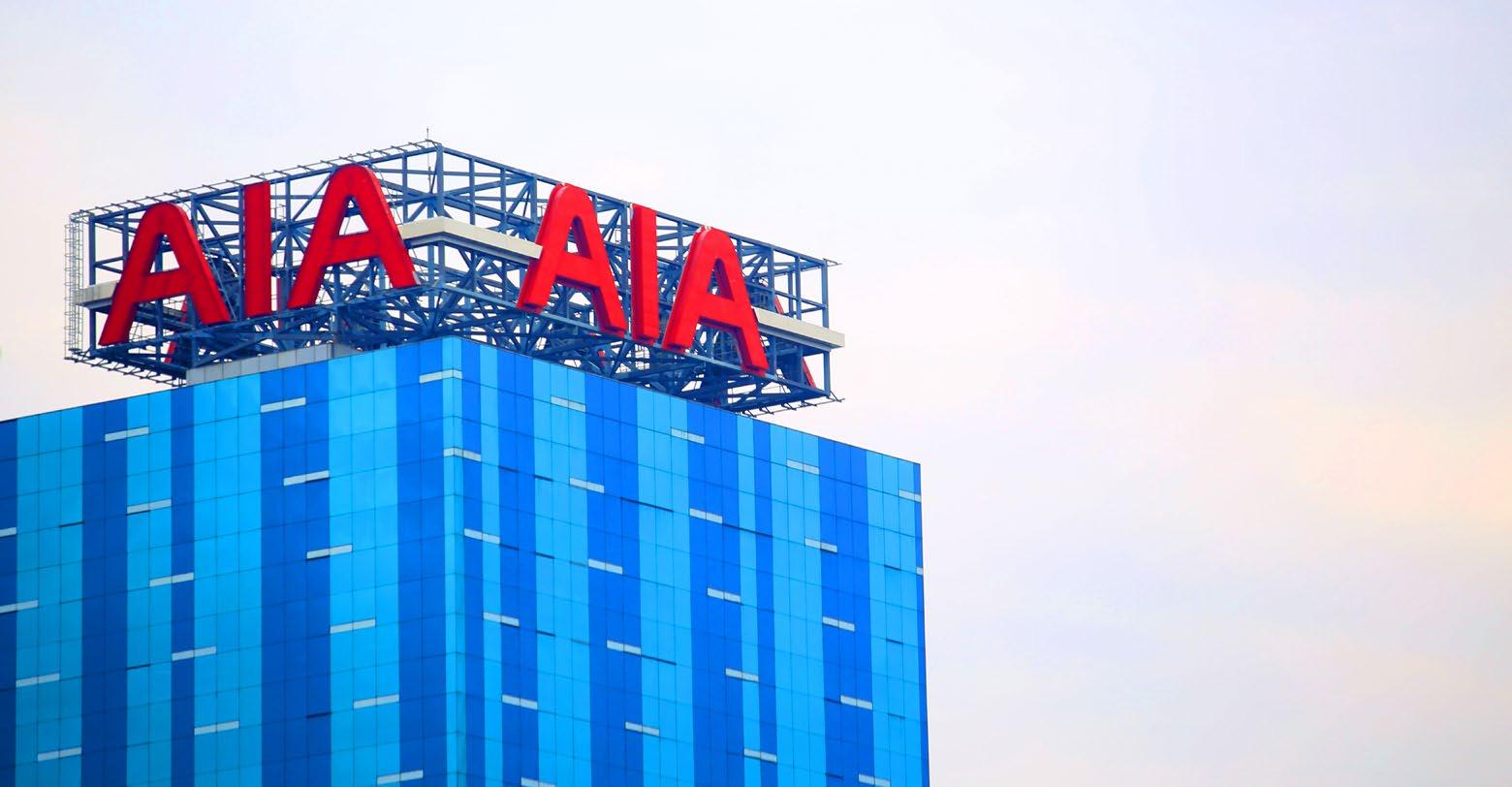
Only four segments in the top 10, all life insurers, posted growth in 2023.
Hong Kong’s top insurers rebounded in 2023, as improved market sentiment drove a 2.1% increase in gross premiums from a year earlier, according to analysts.
The Hong Kong Business Insurance Rankings’ top 50 list showed premiums hitting HK$516.5b from HK$505.8b in 2022, with life and nonlife segments splitting the ranks.
The life segment accounted for 90.7% of the total premiums, according to data compiled from official sources.
Those in the top 10 were all life segments, only four of which experienced premium growth, led by Manulife Financial Corp. at 6.5% in fourth place, AXA China Region Insurance Co. (Bermuda) at 3.2% at No. 6, Bank of China Group Life Assurance Co. Ltd. at 5.3% in seventh place, and Chow Tai Fook Life Insurance Co. Ltd. at 60.4% at No. 8.
In terms of premiums, in first place was AIA Group Ltd. at HK$87.1b, followed by Prudential Plc. at HK$65.3b and HSBC Life (International) Ltd. at HK$55.5b.
Other insurers in the top 10 were China Life Insurance Co. Ltd at No. 5 with HK$33b, Hang Seng Insurance Co. Ltd. at ninth place with HK$22.6b, and FWD Life Insurance

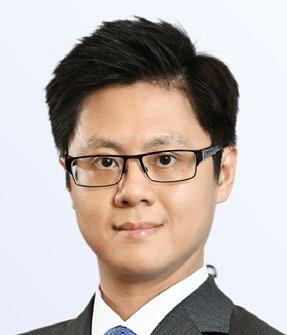

needs through our payment solutions is central to our role,” Lydon said in an interview during Sibos 2024.
John Zhu, chief economist for Asia at Swiss Re Ltd. said demand from mainland visitors allowed the sector to return to its pre-2019 peak.
He also cited a reversal in the interest rate differential between Mainland China and Hong Kong, where interest rates are now higher. Insurance Authority data also showed that nonlinked new business policies grew 10% year on year, whilst their linked counterparts declined 30%.
“The latter [was] probably impacted by sluggish stock market performance,” Zhu said. “Whilst we have now entered the US Federal Reserve's rate-cutting cycle, US/ HK rates are still expected to stay above that of Mainland China for the foreseeable future.”
Other growth drivers were post-COVID income recovery and heightened risk awareness.
Co. Bermuda Ltd. at No. 10 with HK$20.3b.
Hong Kong’s life insurance sector inched up 0.3% year on year, whilst the general insurance market climbed 4.6% in 2023.
The industry’s recovery was mainly due to pent-up demand with the return of visitors from Mainland China, as well as rising sales postCOVID-19, according to WenWen Chen, S&P Global Ratings director and lead analyst.
“Mainland Chinese visitors accounted for about 30% of new business sales,” he said. “The border restriction during the pandemic led to a significant slump, but the situation reversed in 2023 with the resumption of cross-border travel.”
Tom Lydon, executive director and head of FIG Australia & New Zealand; head of Non-Bank Financial Institutions, Asia Pacific, at J.P. Morgan, compared how Hong Kong is “generally less transient than Singapore”. Which could lead to influencing premiums and retention rates.
“Overall, insurance premiums can rise or fall based on specific product types, company strategies, or even banks’ involvement in distributing policies. From our perspective, supporting the industry’s evolving
“However, both Hong Kong and mainland China's economic recoveries are challenged by various structural factors, and GDP growth is expected to be slower than prepandemic trends in future,” Zhu said.
Industry leaders remain cautiously optimistic about the future.
Ken Lau, managing director of Greater China and Hong Kong CEO at FWD, expects steady growth in 2024 and 2025 after a strong first half this year, when first-year premiums grew more than 30%, and all sales channels posted double-digit gains in the second quarter.
On the other hand, regulatory changes, such as Hong Kong's risk-based capital regime, are raising compliance costs, narrowing profit margins, and necessitating enhanced risk management.
“Tightened regulation will likely facilitate more disciplined underwriting but will add to insurers’ operational costs,” Chen said.
Escalating trade tensions, worsening natural catastrophes, and more serious cyberthreats are also risks.
Carmel Green, a partner at law firm Reynolds Porter Chamberlain LLP, cited the need for robust frameworks to manage cyber risks, particularly in the underinsured small and medium enterprise segment.

Its initiatives have enhanced the commuting experience for customers and exemplified its vision for a smart and inclusive journey.

Sustainable rail transport services operator MTR Corporation has received distinctions at the prestigious HKB Technology Excellence Awards 2024 for its introduction of the Smart Service Model that has transformed and reengineered the traditional manual-intensive station service model, as well as the “MTR Smart Mobility: Technology-enabled Social Inclusion” project that powers the Corporation’s aspirations to Smart Mobility.
MTR's Smart Service Model: A tech revolution in customer experience
The Smart Service Model, which was pilotlaunched at Quarry Bay and Kai Tak stations, is enabled by three technological innovations.
The first of these innovations is "Tracy," its artificial intelligence (AI) - powered Virtual Service Ambassador (VA). Tracy is an innovative AI kiosk that combines cuttingedge large language models, natural language processing, and ChatGPT engine technology that synthesises a hyperrealist human-like outlook, gesture, voice, and genuine lip synchronisation with a service with a smile
and accurate immediate responses. It also merges traditional customer service with advanced ChatGPT technology to provide seamless processing of wayfinding, itinerary planning, real-time MTR information services, and lifestyle enquiries.
MTR’s VA technology stands out with
its unique strategies, which include the integration of advanced technologies, AI capabilities, multilingual and round-the-clock services, and seamless communication between passengers and service providers.
The other innovations of the Smart Service Model went to its Roving Service Team

What sets MTR apart is its relentless pursuit of personalised, caring, and inclusive transportation solutions for all
and Integrated Digital Tool (IDT). The roving staff team was set up to proactively serve customers in need with a brand-new, smart, energetic, and efficient image, assisted by the use of IDT being a comprehensive mobile platform that serves as a one-stop solution to enhance customer service and streamline station operations.
The Smart Service Model has been wellreceived by frontline staff, as evidenced by the increase in staff satisfaction at the trial stations and successfully relieving workload from tremendous customer enquiries. It has also been receiving ongoing, encouraging feedback from members of the District Council, customers, and key opinion leaders.
Given these achievements, MTR was recognised for its first award in the AITransportation category during the major awards programme for elevating the customer experience.
MTR Smart Mobility: Technology-enabled social inclusion
This project takes a comprehensive approach to enhancing inclusive journeys and driving Smart Railway operations.
Amongst the initiatives launched in this project is the MTR · Care App, which was first launched in end-2022, and just upgraded in December 2024.
The mobile app promotes universal basic mobility to create an accessible transport ecosystem through a simplified, user-friendly interface with respective facility and service enhancements at MTR stations.
The project's rollout strategy has been underpinned by extensive stakeholder engagement, involving customers, frontline staff, and non-governmental organisations at every stage of the process.
From initial needs identification and requirements gathering to the design, development, and launch of the solutions, the team has proactively solicited feedback, incorporated insights, and maintained ongoing dialogue to ensure the initiatives remain responsive and relevant.
Since its launch, the app has garnered continuous downloads and received impressive user ratings from a broad user base.
Beyond the app, a trial has also been launched at North Point Station platforms

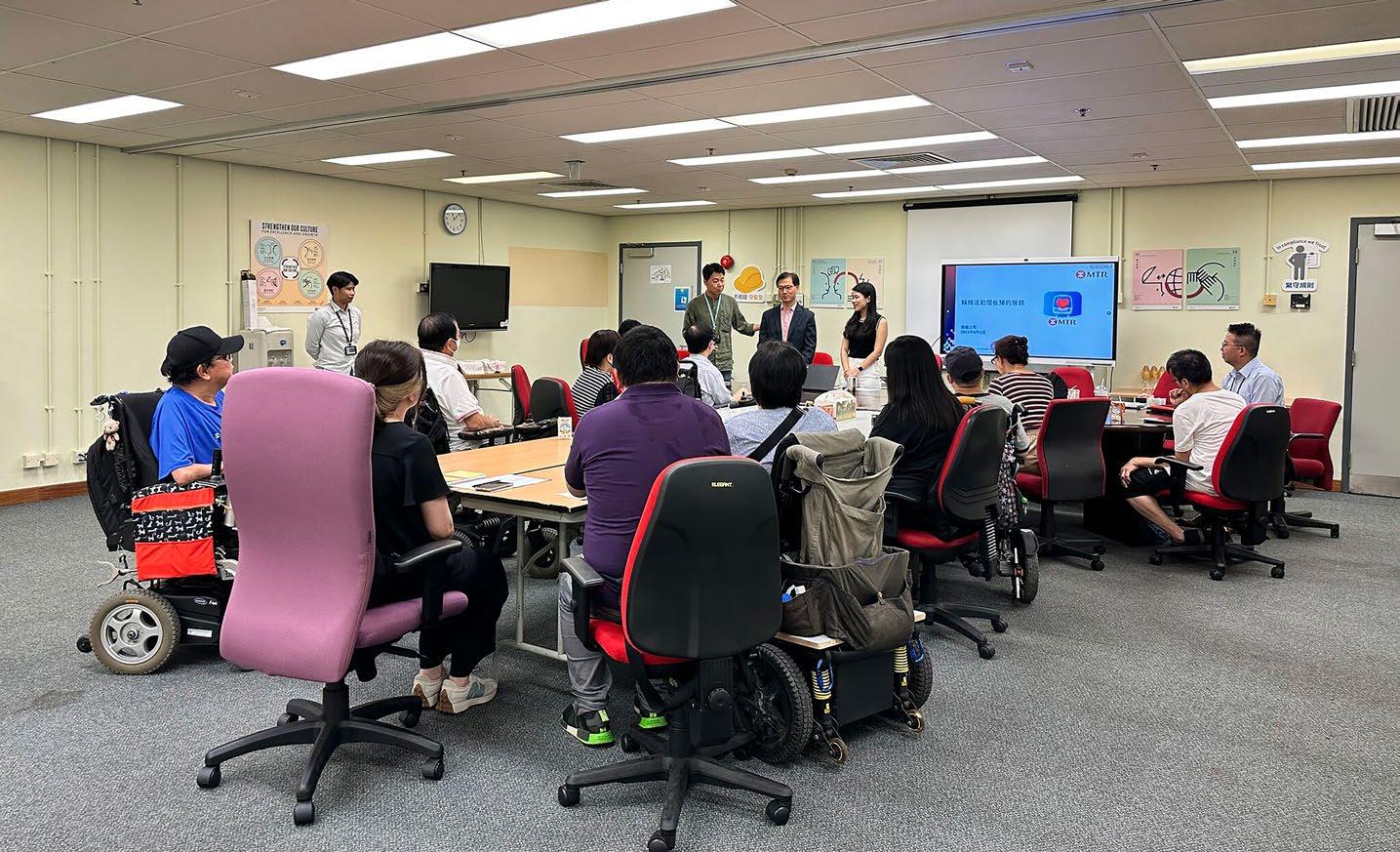
to address concerns from the hearingimpaired to prevent from door nipping. It has been gradually rolled out to most of the interchange stations.
The roadmap from the MTR Smart Mobility project has propelled the MTR Corporation to the forefront of the industry. Its effort to drive innovative and sustainable transport ecosystems has been recognised.
“What sets MTR apart is its relentless pursuit of personalised, caring, and inclusive transportation solutions for all customers, going above and beyond the industry norm. MTR has proactively moved the needle, leveraging cutting-edge technology and extensive user engagement to develop groundbreaking initiatives that empower customers of all abilities,” MTR said.
For its initiative to enhance accessibility in transportation, MTR bagged the Smart City - Transportation category win for its MTR Smart Mobility project, highlighting MTR’s dedication to smart, sustainable, and inclusive transportation.
The HKB Technology Excellence Awards celebrates innovation and excellence in Hong Kong's dynamic tech landscape, highlighting companies that lead the way in technological disruptions within their industries.

The achievement reaffirms Baxter's mission to save and sustain lives.

Baxter is a global MedTech leader in the healthcare industry. For 90 years, Baxter has been operating at the critical intersection where innovations that save and sustain lives meet the healthcare providers who make it happen.
With products, digital health solutions, and therapies available in more than 100 countries, Baxter’s employees worldwide are now building upon the company’s rich heritage of medical breakthroughs to advance the next generation of transformative healthcare innovations.
Transforming healthcare through innovation Baxter touches the lives of millions of people around the world every day. The company’s products and therapies can be found throughout hospitals and clinics – from the emergency room to the operating room, from the pharmacy to the intensive care unit – as well as advancing patients’ care in their homes.
Through the development of advanced technologies and strong collaborations, Baxter offers connected healthcare solutions, providing real-time insights, smart diagnostics, and tools to help healthcare providers increase workflow efficiencies and improve care outcomes.
This is achieved through the integration of expertise in connectivity technologies and integration, digital health solutions, data visualization and analytics, therapy development, and monitoring and sensing to build a connected system that enable healthcare providers to deliver exceptional care while addressing critical medical needs.
Driven by the mission to save and sustain lives, Baxter strives to create lasting value by protecting the planet, empowering patients, and championing people and communities. The company is equally committed to making a global impact through strategic partnerships, supporting underserved communities, and improving access to quality healthcare worldwide.
Recognising the importance of sustainability, Baxter minimises its environmental footprint by adopting eco-friendly practices and investing in energy-efficient innovations.
Baxter’s victory in the Smart Technology -
Healthcare Technology category the Hong Kong Business Technology Excellence Awards 2024 serves as recognition of its innovative technologies that address the needs of highly vulnerable patients.
The Hong Kong Business Technology Excellence Awards is a prestigious awards programme that celebrates innovation and excellence in Hong Kong's dynamic tech landscape, highlighting companies that are leading technological disruptions in their industries. The 2024 Hong Kong Business Technology Excellence Awards was held on 4 September 2024, attracting almost 300 guests. This makes the event its largest awards dinner to date.




















The MyCigna HK App is dedicated to delivering excellence through customer-centric design, technical robustness, and reliability, ensuring a satisfactory user experience.

Cigna Worldwide General Insurance Company Limited (Cigna Healthcare), a health benefits provider that advocates for better health through every stage of life, has successfully transformed its customer mobile app – MyCigna HK app, marking a significant milestone in its comprehensive digital transformation journey. This initiative aims to improve both customer experience and operational efficiency, ultimately providing better digital healthcare services.
Cigna Healthcare recognised the need to accelerate the transformation of its digital healthcare service offerings to meet evolving customer expectations.
“At Cigna Healthcare, we understand that a robust and excellent digital presence is crucial for staying competitive in the healthcare sector. Our customers expect digital tools that are customer-centric, technically robust, and reliable. The transformation of MyCigna HK app will enable us to serve customers wherever they are, providing rich healthcare and policy services at their fingertips,” said Fiona Hung, Chief Operating Officer at Cigna Healthcare.
The transformation journey began over two years ago when Cigna Healthcare implemented an enterprise-wide strategy to digitalise operations and leverage digital technology to better serve customers.
“Our goal is to enhance customer experience, increase operational efficiency, and improve overall performance. It emphasises the customer-centric mindset in the organisation and it has enabled us to innovate and deliver features that truly delight
our customers,” said Vincent Leung, Senior Manager, Digital Technology at Cigna Healthcare.
A team of experts from various departments was assembled to ensure the app’s design aligned with the customer and leadership team's expectations. Developed with React Native, the MyCigna HK app offers a consistent and seamless user experience. OAuth, biometric, and two-factor authentication provide secure, convenient, and robust user authentication, minimising the risk of data breaches and simplifying the sign-in process.
The app integrates with Teladoc, enabling customers to access virtual doctor consultations directly from their mobile devices. The app also integrates with the Cigna Chloe Chatbot, which leverages Natural Language Understanding technology to respond to user inquiries accurately and efficiently. Google Analytics is integrated to gather real-time comprehensive data on user interactions, navigation patterns, and feature usages, enabling faster decision-making and assisting.
The app features a simplified, userfriendly UI/UX with a modern and clean design, coherent colour
schemes, handy shortcuts, summary cards, and a floating toolbar on the home page.
Since the app launched in early 2024, there has been over a 30% increase in the monthly active users. More than 80% of our customers use the new mobile platform, leading to a significant rise in customer satisfaction, as reflected in the app store rating. After undergoing significant optimisations with the new technology, there were 40-80% performance improvements in key functions such as sign-in, e-claims submission, and policy details reviewing, which significantly enhanced the overall flow and efficiency. These improvements have also translated into better business outcomes, including a reduction in the customer call centre volume as more customers are able to self-serve through this revamped mobile platform. This has resulted in significant operating cost savings by using technology solutions with cheaper license costs and more costeffective resources.
Cigna Healthcare won the DigitalInsurance and the Mobile - Insurance categories at the HKB Technology Excellence Awards 2024 for its commitment to transformative digital experiences.


The ultra-rich are also expected to set up family offices in the city.

Attracting more talents into Hong Kong makes it more attractive for global players to set up their headquarters in the city
Agovernment decision to allow foreign investors to seek residency through investments in residential properties worth more than $50m is expected to spice up Hong Kong’s struggling office sector.
Thomas Chak, head of Capital Markets and Investment Services at Colliers Hong Kong, said the policy could spur global players to expand their offices in Hong Kong, driving demand for office and retail spaces, as well as accommodations.
“This policy could really spice things up in Hong Kong, especially in the asset management sector,” he told Hong Kong Business
“With more M&A (mergers and acquisitions) activities and better liquidity in overall capital markets, we'll be seeing growing opportunities for professionals like bankers, accountants, lawyers and surveyors.”
“This would actually attract more talents into Hong Kong in the long term, making the city more appealing for global players to set up and expand their offices here,” he added.
Antonio Wu, head of Capital Markets for Greater China at Knight Frank, said the policy would draw more family offices to Hong Kong,



which could push demand in the office sector.
“If we’re having all these [high-net worth] individuals or businessmen in Hong Kong, naturally they will open up their family office here to look after their investment,” Chak said. “Hong Kong is one of the major gateway cities in Asia so it will be ideal for them to open a family office here.”
Wu and Chak said the policy would also boost the luxury residential segment. Wu said the benefits could extend to both the primary and resale markets, whilst Chak said areas like The Peak, Jardine’s Lookout, and the Southside stand to gain.
Beyond real estate, experts said the policy would attract more investments.
Darren Bowdern, head of Alternative Investments for AsiaPacific at KPMG China, said the policy would “help promote Hong Kong as a destination for entrepreneurial talent and investment.”
He added that allowing $10m in residential purchases to count toward the $30m investment requirement is a strategic move to attract high-networth people.
“Applicants wanting to come to Hong Kong can use part of the value
of their residential property towards the minimum investment amount but importantly, they must also invest in other assets in addition to the property,” Bowdern said.
To attract more capital, he said the government should extend the policy to assets such as artwork and a broader range of private funds.
Wu said the government could cover properties slated for student accommodation since a number of investors are looking at this sector.
Government development sites may also be included, Chak said. “In the long run, this would increase the government revenue from land sales.”
“If we want to really spice things up more, increasing the cap from $10m on the real estate investment to something higher, probably like, you know, $30m, this will help speed things up and bring in more capital in the short term,” the Colliers expert said.
Demands for Hong Kong Island’s Grade A office leasing remained stagnant due to the prevailing economic uncertainty in June, forcing landlords to offer generous incentives to attract tenants.
However, new letting cases dominated the leasing market, with most of the leasing activity happening in Central from professionals and financial companies, Knight Frank's latest Hong Kong Monthly Report revealed.
Looking ahead, approximately 930,000 sq ft of Grade A office space, mainly in Central and Causeway Bay, is expected to be completed by 2025. New leasing in this sector will likely be driven by upgrades and relocation demand as more office space becomes available.
On the other hand, Kowloon saw a significant slowdown in activity due to economic uncertainty and the start of the summer holiday period. Unlike Hong Kong Island, renewal cases dominated over new lettings.


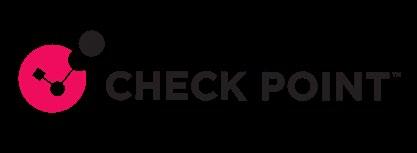
By proactively identifying risks like leaked credentials, malware-infected machines, and exposed code, Dark Web monitoring empowers SOCs to prioritise threats and respond faster.

The typical Security Operations Center (SOC) faces a wide variety of responsibilities. In addition to monitoring internal systems for signs of threats and breaches, modern SOCs are tasked with managing external risks through practices such as detecting phishing websites, social media impersonation monitoring, Dark Web Monitoring, third-party risk management, and attack surface management.
Each of these practices addresses different types of risks, and it would be wrong to say that any one practice is fundamentally more important than the others. However, there is one practice – Dark Web monitoring – that can boost all of the rest. Dark Web monitoring puts organisations in a strong position to detect phishing, prevent social media impersonation, and manage third-party risks.
Here’s how Dark Web monitoring and Dark Web scans help businesses manage all types of external risks.
Online brand protection
Brand impersonation websites – meaning websites that appear to be owned by a legitimate company but are controlled by threat actors – have become a pervasive attack vector.
Since phishing kits are typically bought and sold through the Dark Web, Dark Web monitoring offers an effective means of detecting website impersonation attempts, allowing cybersecurity teams to handle this type of risk proactively.
Monitoring for Dark Web phishing activity can help to identify instances where threat actors target corporate executives. When they are phished, their personal identifiable information (PII) is often made available in Dark Web marketplaces. Monitoring for this type
of data allows businesses to get ahead of the risk and take action before maximum harm takes place.
External risk management
Dark Web monitoring can help provide visibility to a business's external risk in several ways.
1. Detecting malware-infected machines
Ideally, SOCs can determine when machines owned by their organisation were compromised by malware through monitoring for anomalous activity, but this doesn’t always work.
By monitoring the Dark Web for discussions about compromised machines owned by a specific organisation, security teams gain another means of identifying breaches. In this way, Dark Web monitoring helps them to catch attacks they might otherwise miss and react to them as quickly as possible.
2. Detecting leaked credentials
Monitoring the Dark Web for leaked credentials associated with a company is an effective way of determining when a breach has occurred.
Monitoring the Dark Web can provide early visibility into leaked credential risks, allowing businesses to identify and respond to the issue rapidly.
3. Exposed code
Threat actors sometimes steal a company’s source code, which can help attackers conduct breaches against the business that produced the code and any customers
that use it, then make it available on the Dark Web. This is another type of resource that Dark Web monitoring can detect, helping to enable proactive protection of assets.
4. Risk prioritisation
By monitoring the Dark Web to determine which threats and threat actor tactics, techniques, and procedures are trending, security teams can make informed risk prioritisation decisions.
This is why Check Point Software Technologies Ltd. built the Cyberint CVE Intel module, which correlates vulnerabilities with businesses’ digital assets to help security teams focus on the most relevant threats based on their unique attack surface.
The linchpin of modern cybersecurity
It is important to note that Dark Web monitoring alone won’t guarantee protection against risks like phishing attacks or leaked credentials, but it provides additional threat visibility and context that would not be available through the other monitoring techniques that SOCs typically deploy.
This is why external risk management solutions like Check Point’s Infinity External Risk Management (previously known as Cyberint) have become a linchpin of modern brand protection and risk management.
For any further inquiries about how we can assist your business, please feel free to reach out to Vastcom at salessupport@vastcomtech.com, our trusted official service provider.
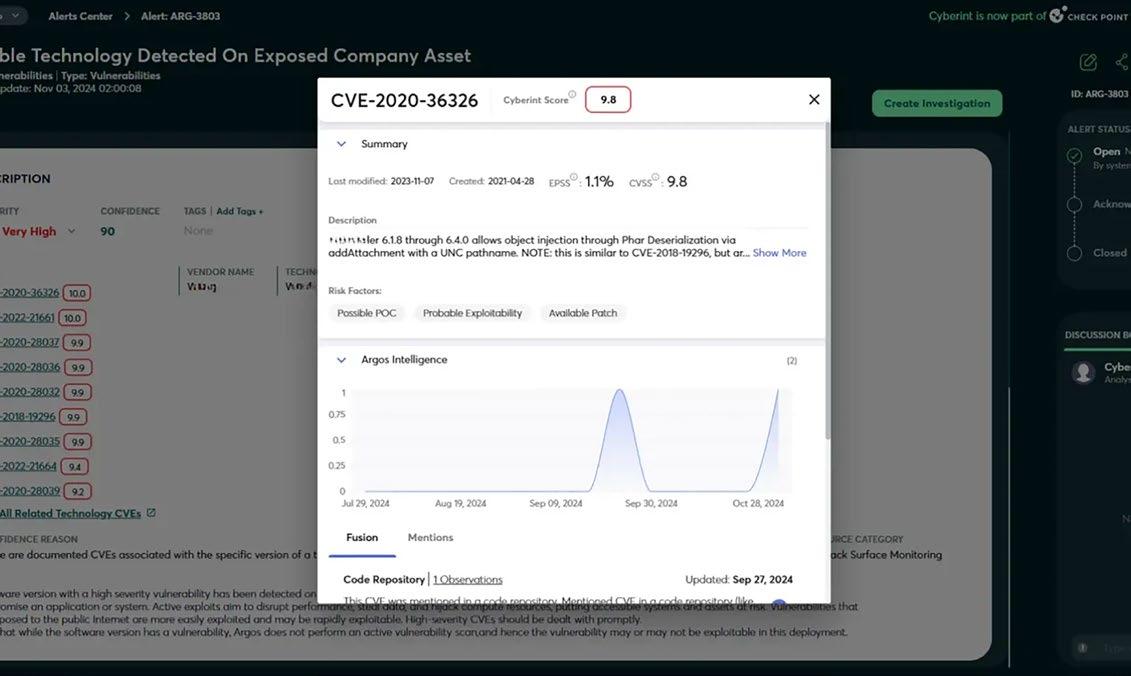

The innovations in AI ensure responsible and effective implementation of its use cases and patterns.

Hang Seng Bank is at the forefront of technological innovation. As generative artificial intelligence (AI) continues to evolve, the Bank has made substantial investments in generative AI and machine learning, integrating these technologies into its daily operations to enhance efficiency and innovation.
Hang Seng Bank’s AI-driven technologies form an integrated platform that boosts developers' efficiency and provides business users with real-time smart data services. Whilst these advancements hold immense potential to improve operational efficiency and customer service, they also introduce challenges and risks that must be carefully managed.
To address this, the Bank has established a Generative AI Centre of Excellence (CoE), which is dedicated to ensuring the responsible and ethical implementation of AI technologies.
The Generative AI CoE is designed to accelerate Hang Seng Bank's adoption of generative AI through strategic, reusable designs, and centralised governance, overseeing all AI use cases across the Bank.
Enhancing internal operations, streamlining code conversion
Through its Generative AI CoE and ongoing efforts, the Bank is evolving its approach
to implement AI as the technology and understanding develops. It also ensures the evolvement is in line with its core principles of acting responsibly and ethically.
Currently, Hang Seng Bank is focussed on applying generative AI within its internal operations, without direct interaction with customers. One of the key innovations is a pilot project that leverages AI to assist software developers in operational efficiency. For instance, the Bank has introduced an AI-powered code conversion tool to streamline the process of translating analytic programmes for cloud compatibility.
Previously, the Bank’s analytics users face the daunting task of translating scripts to another programming language to ensure compatibility of the system to run on cloud platform. This translation required significant manual effort, but the code conversion tool, powered by generative AI, streamlines the process, significantly reducing time, effort and the likelihood of human error. This solution revolutionises the workflow by introducing an automated tool that simplifies the code conversion process, freeing up the data analysts to concentrate on more critical tasks.
Whilst the Bank is excited about the opportunities that AI presents, it remains acutely aware of the challenges, such as bias, fairness, and data privacy. Hang Seng Bank continues to review and evolve its risk management practices to ensure that AI is used responsibly and that the benefits are balanced against the potential risks.
The Bank’s approach to AI emphasises a complementary relationship between AI and human judgement, creating a synergy that combine cutting-edge technology with the expertise of its people. By striking the right balance between AI algorithms and human oversight, the Bank ensures that data is processed and analysed to the highest standards.
This commitment to harnessing AI responsibility has earned Hang Seng Bank recognition in the AI - Banking category at the HKB Technology Excellence Awards 2024. The prestigious awards programme celebrates excellence in Hong Kong's dynamic tech landscape, highlighting companies that are leading technological disruptions in their industries.
The Generative AI CoE is designed to accelerate Hang Seng Bank's adoption of generative AI
Your recognition, our honour. Ever growing, ever innovating, with you.


Hang Seng Bank
Multi-Award Winner at the Asian Banking & Finance Awards 2024
• Domestic Retail Bank of the Year – Hong Kong
• Branch Innovation of the Year – Gold
• Digital Banking Award – Hong Kong
• Digital Currency Award – Hong Kong
• Analytics Initiative of the Year – Hong Kong
• Financial Inclusion Initiative of the Year – Hong Kong
• Hong Kong Domestic Trade Finance Bank of the Year
• Hong Kong Domestic Digital Payment Initiatives of the Year

Riverchain redefines working capital access, empowering subcontractors with fast, accessible solutions.

Hong Kong stands as one of the world’s most costly construction markets, according to the International Construction Market Survey (ICMS) 2024 report. Yet behind the skyscrapers and cranes that grace the city’s skyline is a major financing challenge.
A growing working capital gap running into hundreds of millions of dollars burdens construction contractors and subcontractors alike. Delays, back-to-back payments, and escalating expenses have created a complex web of challenges. Working capital financing options have been slim pickings, resulting in slow approvals, directors putting up their homes as collateral, or turning to high-rate money lenders. Whilst these challenges have always existed, soaring costs and high interest rates have recently brought them into sharper focus. This presents an interesting blue ocean opportunity for fintech and financial institutions globally.
Unleashing data potential: Revolutionising construction finance through innovation
In an era where data is king, fintech and financial services companies can leverage this data to underwrite products and assess risk. In the alternative financing space, the lowhanging fruit has naturally gravitated towards digital-native industries such as e-commerce
or digital media. Assetbacked securitisation deals in their hundreds of millions have been secured in Hong Kong to serve the cross-border e-commerce segment alone.
On the other hand, the traditional nature of the construction industry means it remains largely paper-based, resulting in significantly less structured data, although projects still generate substantial unstructured data. The challenge with unstructured data is the difficulty in organising and analysing it.
On a construction site, field data might include text, mobile activity, blueprints, schedules, photos, and videos.
With the right approach, fintech providers in the alternative lending space can capitalise on a significant opportunity. In Hong Kong alone, an estimate of over U$6.9b remains locked in the construction supply chain annually, hindered by paper-based processes and a lack of insightful data readily available to subcontractors and suppliers.
Riverchain's playbook: Navigating unstructured data for innovative construction finance solutions
Construction involves many unique processes, scope changes, and complex workflows related to cash flow that must be accounted for. This exercise allows mapping what type of data might be useful for underwriting, as well as understanding how to build risk models and the types of products to offer.
Riverchain focussed on critical barriers to accessing affordable working capital loans – one of which is the inefficiencies of manual paper-based procedures that lead to significant delays in invoice approvals and thus financing. In an ideal world, a digital platform can simply streamline these processes. However,
construction is a traditional industry with lots of unstructured data sitting in silos. It was not simply a matter of offering different APIs for customers to connect to; the company had to rethink its digital and physical workflows to integrate field data into our model.
One of the biggest challenges Riverchain faced when entering the market was not technical or financial. It was dealing with a very traditional industry with little exposure to digital platforms. Getting their buy-in was essential to getting them on board and capturing their data. On this front, in-person education and engagement have proven to be crucial, helping them understand that their challenges were not the norm and could be solved by unlocking the value of data.
As a result, Riverchain developed an innovative cash advance product that offers subcontractors a lifeline by purchasing invoices and providing immediate cash advances of up to 90%, with approval times as swift as 48 hours. For many subcontractors, this shortterm relief is the difference between growth and outright paralysis.
The front-end processing was digital and straightforward, whilst at the backend, the company can process vast amounts of unstructured data and achieve well below industry average delinquency rates. Today, Riverchain supports over 1,200 subcontractors and suppliers and secured a deal with asset manager Arta TechFin to launch a US$51m open-end fund.
Building bridges to empower a digital-led and resilient construction industry
Overall, it has been a win-win, with subcontractors being able to meet their financial obligations to their staff and suppliers, whilst Riverchain was able to provide exposure to a new asset class with a reasonable return to investors. As Riverchain looks to expand operations into 2025, numerous opportunities await fintech companies.
Looking ahead, the company will be exploring how it can create an ecosystem to automatically link to and verify information using the blockchain and how its experience in Hong Kong could be applied in other markets.
Today, Riverchain supports over 1,200 subcontractors and suppliers and secured a deal with asset manager Arta TechFin



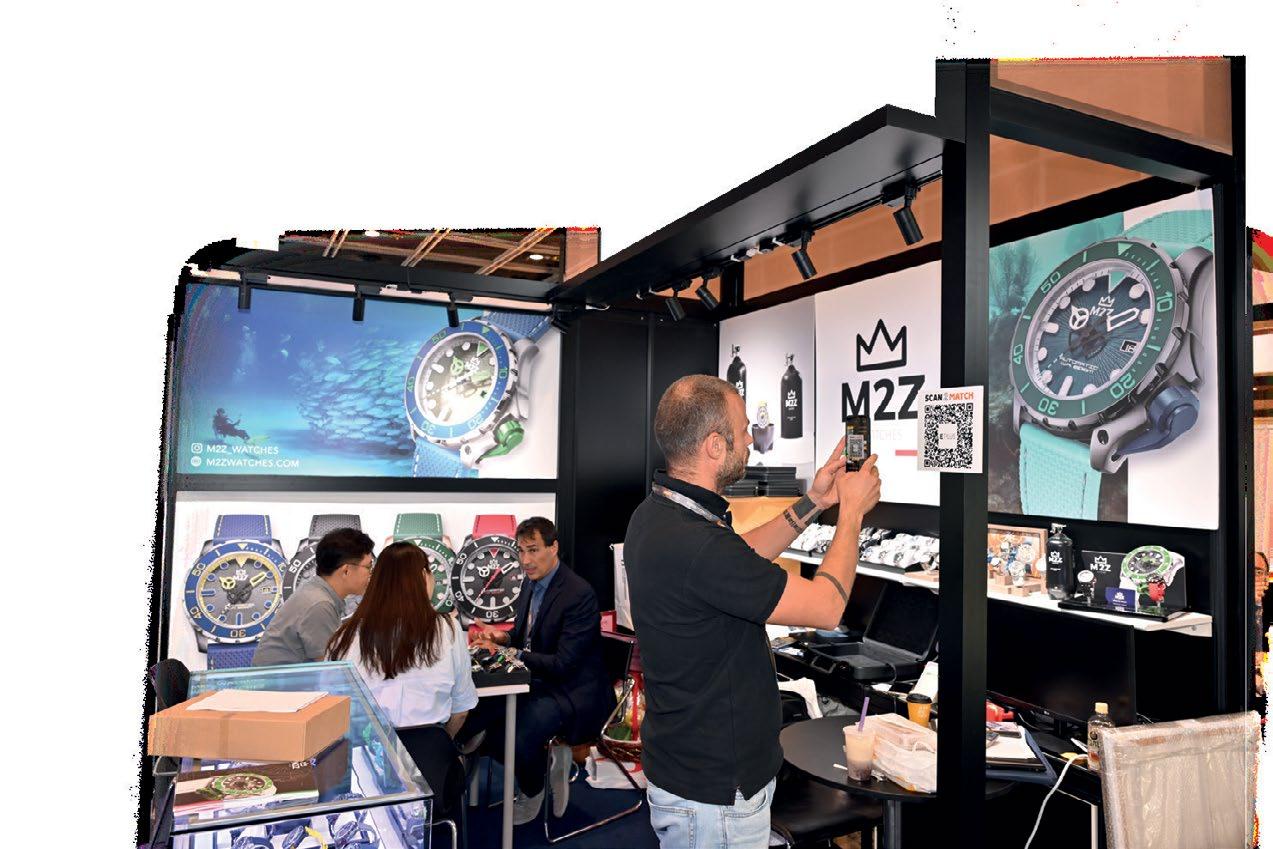



It routes traffic via automated, secure private network to any cloud, data centre, or on-premise destination of choice, leveraging advancements in Software-Defined Networking.

Software-Defined Interconnection® provider PCCW Global Console
Connect received the HKB Technology Excellence Awards 2024 title in the Mobile - Telecommunications category for its revolutionary Edge SIM that has enabled technology in the Internet of Things (IoT) arena. The solution is the world’s first mobile connectivity solution that bypasses the public internet and instead routes traffic via an automated, secure private network to the cloud, leveraging advancements in SoftwareDefined Networking.
Secure IoT connectivity with global reach and direct cloud integration
Edge SIM works like a normal regular 3/4/5G SIM card, offering extensive roaming coverage across 180 countries.
It ensures that the user’s traffic is not exposed to the public internet, passing it from a mobile gateway directly to a virtual private Layer 3 network, which businesses can provision and control in real-time through the Console Connect management portal.
This capability is different from most IoT connectivity solutions that use some form of
internet backhauling, which is when traffic is passed from the mobile operator to back-end applications and hardware.
Launched in late 2023, Edge SIM is a game changer in IoT connectivity as it addresses inherent security concerns in the public internet sphere — as the environment itself is open and sensitive data are vulnerable to cybersecurity threats. It also offers direct connections between devices and leading cloud platform providers worldwide, including AWS, Google Cloud, Microsoft Azure, Oracle Cloud, IBM Cloud, Alibaba Cloud, Vultr, and OVHcloud, amongst others.
“The solution is a strong fit for critical IoT applications such as asset management, logistics, connected cars, payment networks and POS devices, live broadcasting, healthcare solutions and security systems,” the company said.
PCCW Global Console Connect recognised for advancing secure IoT connectivity
Edge SIM highlights PCCW Global Console Connect’s commitment in keeping IoT data away from the risks of public internet, at the same time not compromising on ubiquity as well as ease of service.
The HKB Technology Excellence Awards, presented by Hong Kong Business, is a prestigious awards programme that celebrates innovation and excellence in Hong Kong's dynamic tech landscape, highlighting companies that lead the way in technological disruptions within their industries.
The Hong Kong Business Technology Excellence Awards 2024 was held alongside the Hong Kong Business National Business Awards 2024 on 4 September 2024. The event attracted almost 300 guests, making it the largest awards dinner to date.
The solution is a strong fit for critical IoT applications such as asset management, logistics, connected cars, payment networks and POS devices, live broadcasting, healthcare solutions and security systems






The company’s advancements have enhanced data accessibility, operational efficiency, and customer service whilst ensuring robust compliance and cost savings.
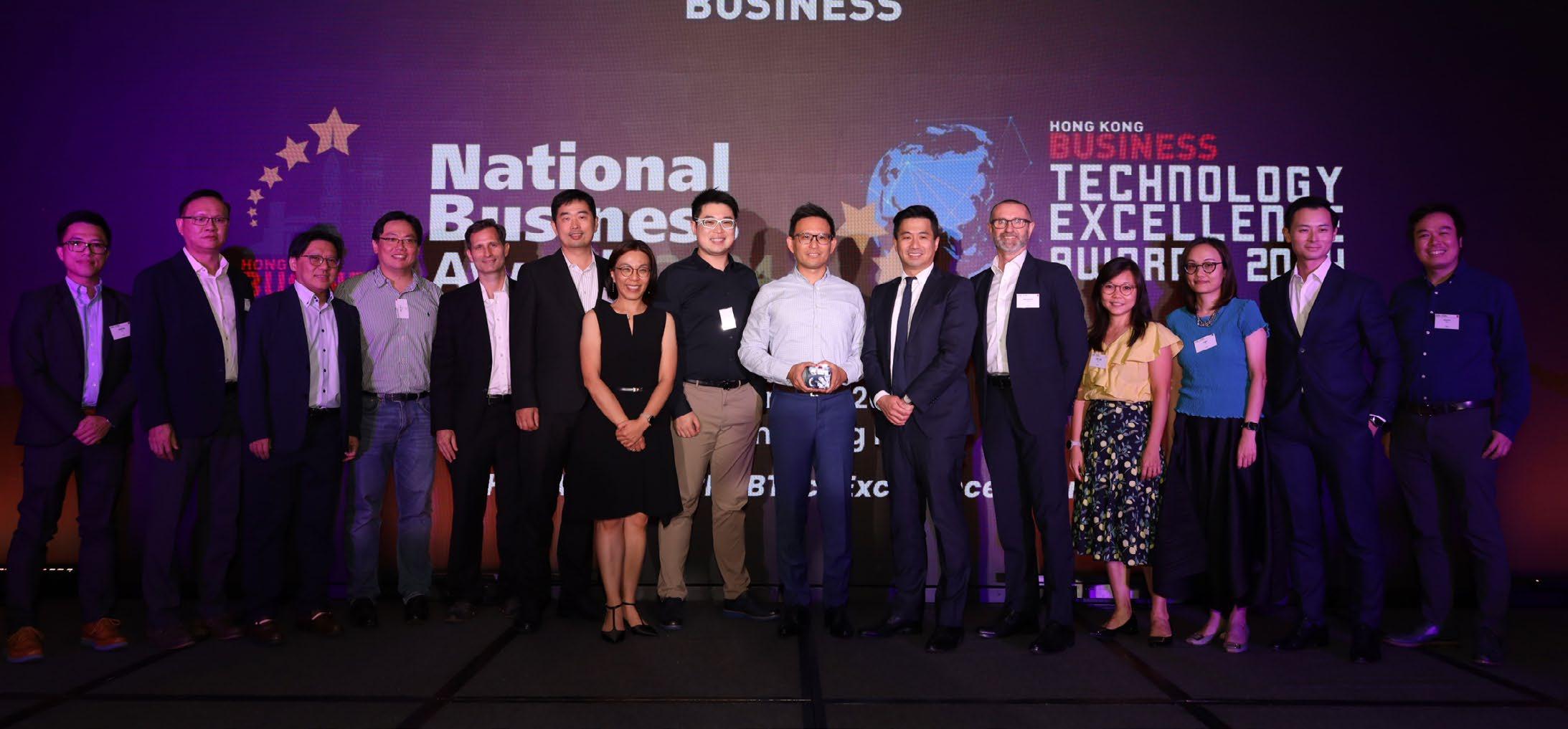
HSBC has been recognised for its groundbreaking use of data and AI in leading the industry trend in Hong Kong, winning the prestigious Hong Kong Business Technology Excellence Awards, Virtualisation - Banking category. The award highlights HSBC's commitment to embracing technology to improve data-driven decision-making and customer experience.
A key initiative that contributed to HSBC's success is the development of a virtual data lake utilising advanced data virtualisation technology powered by Starburst. This virtual data lake is revolutionising HSBC's ability to access and utilise a wide variety of data across a multitude of data platforms in a highly performant and controlled manner. By minimising the need for data movement, the virtual data lake has improved operational efficiency and achieved substantial cost savings. It has also enabled unified data access control across various sources, ensuring compliance with data sovereignty requirements.
The virtual data lake has had a significant impact on HSBC's ability to generate insights and make data-driven decisions.
• Advanced analytics: Brought significant efficiency to HSBC's analytics and
operation teams, enabling faster and more effective data-driven decisionmaking. The virtual data lake has been particularly impactful in the Greater Bay Area in mainland China, where it has successfully accelerated the bank's analytic operations.
• 20X faster data querying: The accelerated data query feature has drastically reduced the time needed to generate insights from data (from over an hour to under three minutes). This improvement enables the organisation to respond more quickly to business needs, adapt to market changes, and make datadriven decisions faster than ever before.
• Enhanced data accessibility: By integrating data across multiple sources, HSBC has improved data accessibility for employees whilst maintaining data security through masking and access control capabilities.
• Robust data governance and compliance: The approach aligns with the latest data
sovereignty requirements and allows the business to rapidly analyse critical data whilst also ensuring compliance with data localisation laws across different countries.
“The transformational capability of data virtualisation delivers huge benefit to our business and customers. It empowers our teams with agility, scalability, and the ability to integrate new data sources swiftly and securely, enabling us to better leverage data as a strategic asset to drive better decisionmaking and customer outcomes for long-term success,” said Kai Yang, Chief Information Officer, Group Data Technology, HSBC.
Another groundbreaking initiative by HSBC is the implementation of Automatic Call Quality Management (AQM).
This innovative solution automates the review of Cantonese-English contact centre sales conversations, ensuring efficient and effective monitoring of call quality.
By integrating with the sophisticated transcription solution powered by Fano Labs,
The groundbreaking use of AI technology with our contact centres is bringing together the best of humans and machines in HSBC
a Hong Kong-based AI company specialising in multilingual speech recognition, HSBC was able to automate the transcription and analysis of sales conversations with high accuracy, reducing the labour-intensive nature of the previous monitoring process.
The implementation of AQM has brought significant benefits to HSBC:
• Enhanced operational efficiency by automating the transcription process and achieving a high transcription accuracy rate of over 90%. This is particularly important for sales calls in the local Cantonese language, which is common in the Hong Kong market.
• Improved risk control by enabling holistic call screening
• Unlocked valuable business insights to drive decision-making as well as
develop tailored services to meet customer needs.
• This resulted in substantial cost savings by reducing the time and manual resources on quality assurance and speech-to-text transcription.
"The groundbreaking use of AI technology with our contact centres is bringing together the best of humans and machines in HSBC. The Voice AI strategic capability has the potential to significantly streamline operations, enhance quality controls, and ultimately deliver a better experience for our HSBC customers," said
Jiahao Teo, Global Head of Data, Analytics & CRM, GPB&W and WPB North Asia, HSBC.
The recognition from the Hong Kong Business Technology Excellence Awards highlights HSBC's leadership in pioneering the use of AI and data in the banking industry.
The success of the virtual data lake and AQM demonstrates HSBC's commitment to innovation, in collaboration with technology partners, to continually elevate quality, security, and efficiency and ensure its data solutions are fit for the future.
The Hong Kong Business Technology Excellence Awards, presented by Hong Kong Business, is a prestigious awards programme that celebrates innovation and excellence in Hong Kong's dynamic tech landscape, highlighting companies that are leading technological disruptions in their industries.
The Hong Kong Business Technology Excellence Awards 2024 was held alongside the Hong Kong Business National Business Awards 2024 on 4 September 2024. The event attracted almost 300 guests, making it the largest awards dinner to date.



Out of 81 providers, only 10 specialise in marine insurance
The city may have to ease immigration rules to attract talent.
Hong Kong should develop and expand its pool of underwriters if it wants to become an international hub for marine insurance and related businesses, according to analysts.
Foreign underwriters usually take charge of major risks in the city’s marine industry given the lack of local talent and resources, said Priscilla Foo, head of Marine and Energy for the Asia-Pacific region at Swiss Re.
The government may have to relax immigration policies and offer more tax incentives to attract more talent and foreign marine insurers, she said, adding that the city needs to provide strong insurance and reinsurance services, including marine insurance, to keep its status as a sea hub.
Hong Kong has 81 insurers that provide marine insurance, though only 10 specialise in marine insurance, according to the Insurance Authority.
The marine insurance sector is vital to the shipping industry because

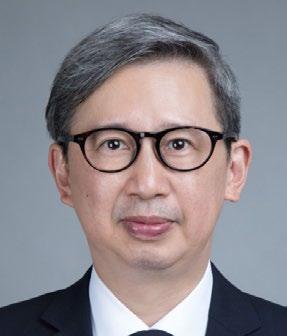
added.
In his 2024 policy address, Hong Kong Chief Executive John Lee unveiled plans to boost marine insurance talent and expand the maritime and aviation training fund to include green energy courses and marine insurance exams.
MIA Chairman Patrick Wong said their group has developed a training programme for marine insurance recognised by the International Union of Marine Insurance (IUMI) as part of efforts to fix the talent shortage.
The Hong Kong Federation of Insurers (HKFI), under which the MIA operates, is representing the “IUMI Asia Hub”, the first and only overseas branch of IUMI. Wong said the MIA also leverages its links to IUMI to promote Hong Kong’s marine insurance products to other countries.
Lee said Hong Kong offers funding and sponsorship programmes, such as the Maritime and Aviation Training Fund (MATF). Aside from marine insurance, the fund also covers shipping, maritime law, and other maritime-related industries and services.
People studying in Hong Kong could apply for an 80% refund for the cost of their online training being approved under the fund, among other benefits, he added.
insurance brokers help ship buyers identify risks and tailor suitable insurance coverage, according to the Hong Kong Trade Development Council.
Timothy Lee, deputy chairman of the Marine Insurance Association (MIA), said Hong Kong could mirror London, one of the world’s biggest and leading marine insurance centres. Whilst there are no official data on the number of insurance underwriters in London, the city is home to Lloyd’s of London, which serves clients in more than 200 countries and regions.
“Lloyd’s of London is [one of] the biggest and leading [markets for marine insurance] because they have one of the biggest talent pools,” he told Hong Kong Business. “They have good underwriters; not only good, they have a reputation and are recognised as lead underwriters.”
“We need to have more ‘Michelin Star’ rated underwriters in Hong Kong too, which is not easy,” he
‘State of the market’
Lee said that more reputable and capable underwriters in Hong Kong could spur foreign marine insurers to inject more capital into the city. “If we have good people here, together with the business opportunities…the companies will invest more.”
Wong noted that aside from tax incentives — the government halved marine insurers’ and brokers’ profit tax to 8.25% in 2021 — Hong Kong is leveraging its relationship with China, particularly in the Greater Bay Area, to attract more insurance players and expand its industry’s reach.
Hong Kong’s geographical closeness to Mainland China strengthens its role as a key maritime hub in the region, James Lo, a senior underwriter at HDI Global SE Hong Kong. “The industry often discusses leveraging Hong Kong’s proximity to Mainland China's market to provide more high-value-added services for the maritime industry.”



The city must improve working conditions and offer nurses better pay.
Hong Kong should offer a more attractive compensation package to nurses amidst stiff global competition for healthcare professionals, many of whom are enticed to work in countries that offer better pay and a lighter workload.
Simply standing by is not an option, especially when the region is facing a persistent shortage of nurses, Hong Kong Health Secretary Lo Chungmau told Hong Kong Business
“Despite increasing nursing training places from about 2,900 in 2017/2018 to 4,500 in 2023/2024, we still face a shortfall of over 8,000 nurses,” Lo said. “We need to be realistic and face the keen global competition head-on.”
This shortage is worsened by nurses seeking better opportunities outside Hong Kong amidst high workloads and burnout, said Shin Thant Aung, director at YCP's Thailand office.
“For example, nurses from Indonesia and India are trying to work in Malaysia, and Malaysian nurses in Singapore or Hong Kong,” he said. “Similarly, Hong Kong nurses are aiming to work in the US, UK, or Australia.”
As of March this year, the monthly
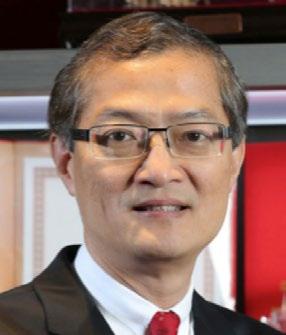


salary of registered nurses in Hong Kong ranges from $36,570 to $58,843, according to the Hospital Authority (HA).
“To compete globally, Hong Kong must improve working conditions, offer competitive salaries, and create stronger support systems for nurses,” Aung added.
The Hong Kong Legislative Council recently passed a bill allowing non-locally trained nurses to practise in the city without taking the local licensing exam. The city is also bolstering the recruitment of nurses from nearby countries like Malaysia and Macau “provided they meet the rigorous professional qualification and competency requirements set by the Nursing Council of Hong Kong,” Lo said.
“We must attract the best nurses to come and practice,” he added. These initiatives are not only expected to ease work pressure and burnout but also bring diversity into the workforce, according to Rathanesh Ramasundram, director for Healthcare and Life Sciences at Frost & Sullivan.
“Hong Kong will likely become a more multicultural healthcare hub,”
she said.
She explained that more foreign nurses mean more competition, which could both be a cause for concern and an opportunity for local nursing graduates.
“Local nurses may feel there are fewer job opportunities or slower career progression,” she said. “The situation also presents the chance to enhance professional growth through pursuing specialisations and certifications to remain competitive.”
However, foreign nurses still face challenges related to cultural adaptation, language barriers, regulatory compliance, team integration, and the need for ongoing support, Ramasundram said.
She said recruiting foreign nurses might not be sustainable in the long run. “An overreliance on non-locally trained nurses could delay structural reforms in Hong Kong’s healthcare workforce planning.”
“Filling the increasing requirement of nurses with non-locals will incur rising costs of recruitment and overdependence on non-local resources,” she added.
Aung warned that relying too much on foreign nurses could worsen the loss of local talent, forcing more nurses to seek job opportunities overseas. “This is not sustainable, as it comes with a range of difficulties, including economic and social implications.”
“Locally trained nurses may feel demotivated by perceived favouritism, especially if career progression or job opportunities appear skewed,” Ramasundram added.
Lo said the government policy prioritises the employment of locally trained nurses. “The new admission pathways for nurses are designed specifically in this spirit.”
“For non-local nurses to practice in Hong Kong, they must first secure employment from institutions such as the HA and the Department of Health,” he said. “These institutions are duty-bound to accord priority to employing locally trained nurses.”
He also said the Hospital Authority has implemented a preceptorship programme, appointing experienced nurses to supervise recruits and help them become familiar with ward procedures and the work environment.

SPEAK TO OUR TEAM
Last September, sensitive data breaches highlighted vulnerabilities in Hong Kong's data privacy landscape. Cyberport reported a major hack exposing staff details and credit card records. Coupled with the new Data Security Law in Mainland China, data protection has become a critical priority for businesses operating across both regions.


As a prominent real estate and retail conglomerate in Hong Kong, our client faced significant challenges:
Frequent data breaches threatening brand reputation
Evolving regulations with limited legal expertise
Complex cross-border data transfer compliance
Difficulty in tracking regulatory updates
Established robust data security frameworks Streamlined crossborder data processes Mitigated legal risks and regulatory penalties
LexisNexis has significantly alleviated the burden of our data compliance management while enhancing our reporting and communication with headquarters.
- A local retail and real estate conglomerate
Our client turned to LexisNexis for comprehensive legal and compliance support:
✔ Data Security Framework
Established a robust knowledge framework using LexisNexis’ Practical Guidance Data Protection module.
✔ Compliance Checklists
Conducted self-assessments to ensure adherence to data protection standards.
✔ Standardised Contracts
Developed compliant templates for cross-border transfers.
✔ Regulatory
Utilised smart alerts for timely updates from Lexis China Compliance Intelligence on industry changes and penalties.
Food and beverage account for 71% of new foreign retail entrants, JLL said.
International food and beverage (F&B) operators are playing a significant role in Hong Kong’s retail market, accounting for 70% of the 30% increase in foreign brand expansions into the region, JLL reported.
Cathie Chung, senior director of Research at JLL in Hong Kong, shared five main reasons how Hong Kong continues to attract businesses: first is Hong Kong’s cultural consumer habits. “Hong Kong people really enjoy dining out or buying meals because of our work culture, busy lifestyle, and small living spaces. Dining is often seen as a social gathering.”
“While some people pack lunch, it's not a major trend here, as many still prefer to dine out. Additionally, Hong Kong people are very receptive to new cuisines and are quite adventurous when it comes to food,” Chung added.
Second, whilst many Hongkongers choose to spend on food, leisure, and shopping beyond borders, particularly in the North, Chung noted that those who stay behind "have really strong purchasing power."
When it comes to the quality of food offerings, Hong Kong benefits from access to imported fresh produce from around the world. This is made possible by Hong Kong International Airport (HKIA), a partner airport of the International
Hong Kong people are very receptive to new cuisines and are quite adventurous when it comes to food
Air Transport Association’s (IATA) Center of Excellence for Perishable Logistics (IATA CEIV Fresh).
"So we are a partner with excellent facilities and efficient services to transport perishable products, allowing a lot of fresh ingredients to be easily imported from various parts of the world for them to replicate the formula in Hong Kong,” she added.
Rents and policies
Rents in streetshops have also dropped significantly, falling between 40% and 70%, whilst rents in prime shopping centers at The Peak have decreased by 25%.
Adding to this, Knight Frank said that “The retail market is still adjusting and adapting to the new consumption patterns by both tourists and locals. Shopping mall landlords are more flexible in rent negotiations in the short term to maintain a higher occupancy rate.”

Lastly, apart from more affordable rents, Hong Kong attracts businesses with its strong legal reputation that provides business-friendly policies, simplified tax rates, and robust legal framework.
"Our robust tourism market and cosmopolitan environment are very efficient and well-connected. This makes Hong Kong attractive to international brands because customers can visit various locations if

your shop is appealing,” Chung said.
International brands gravitate toward prime shopping districts due to their high footfall and appeal to both local and international visitors, “We see that they are keen to set up their first store in core districts, especially in Central and Causeway Bay, which are also some touristfavourite locations,” she said.
Knight Frank also noted that prime street shops in core areas remain attractive to investors waiting for the market to rebound.
"And then, of course, prestige—for some brands, depending on which ones—they like Central because it is a well-renowned, high-end retail location. It aligns with clustering alongside other similar international brands. So this is true whether they choose high street shops or prime shopping centers. Co-locations seem to be their preference, offering more guaranteed traffic and exposure,” Chung added.
These brands include Hefu Noodles and Fufuland from mainland China, Rododo Hot Pot from Taiwan, bb.q Chicken from Korea, and Mr. Cheese from Japan.
From food to fashion
For non-F&B brands, Chung noted that new entrants in Hong Kong include the Korean fashion brand Matin Kim and Australian cycling apparel brand MAAP.
According to Knight Frank, the Swatch Group also expanded into Hong Kong, taking corner shop G35 in Mira Place, Tsim Sha Tsui, “The shop is about 1,000 sq ft, with a monthly rent of $400,000. Apparel retailer Abercrombie & Fitch will return to Hong Kong and open two new stores – 7,000 sq ft in Hysan Place, Causeway Bay, and more than 10,000 sq ft in New Town Plaza, Shatin – eight years after it closed its four-storey flagship store in Central in 2016,”
“Other fashion groups expanding in Hong Kong include Mango, which has rented a 19,000 square-foot store in Asia Standard Tower in Queen’s Road Central for about $1.2m a month,” Knight Frank added.
However, international brands also encounter challenges when expanding into the region, such as high labour costs and varying leasing conditions.








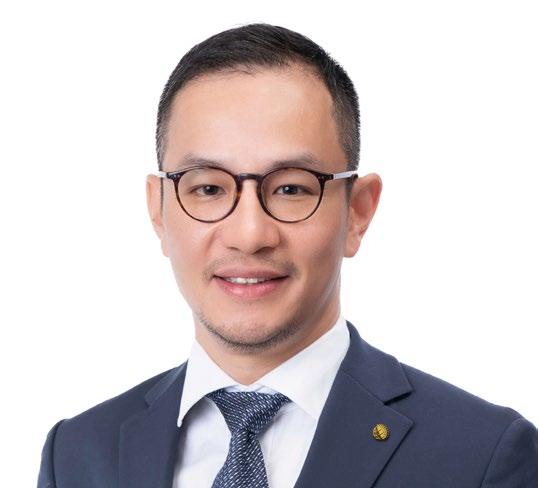
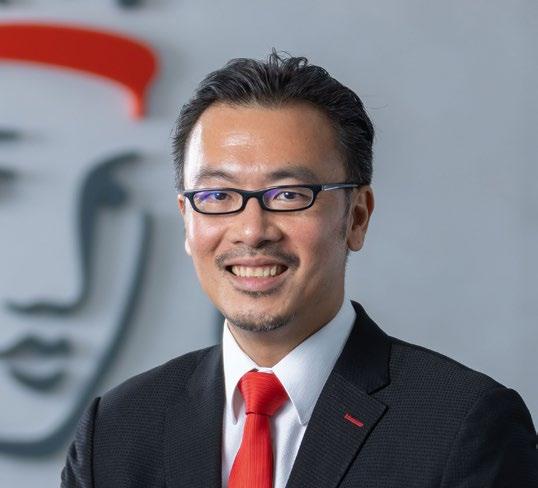
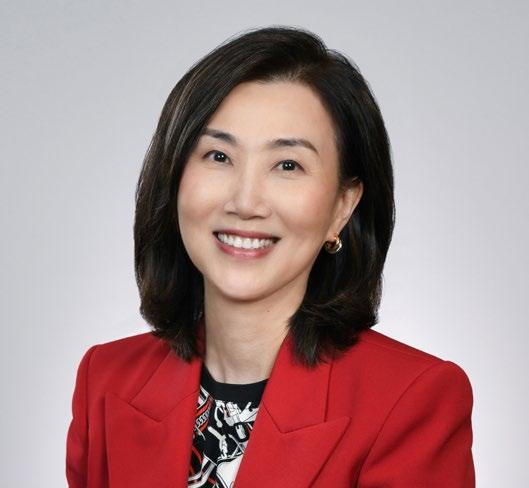
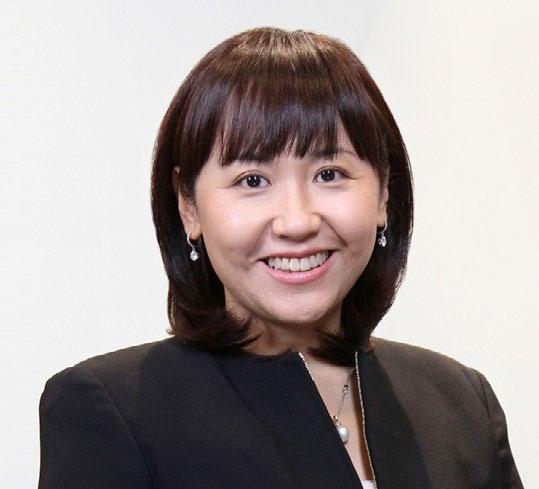
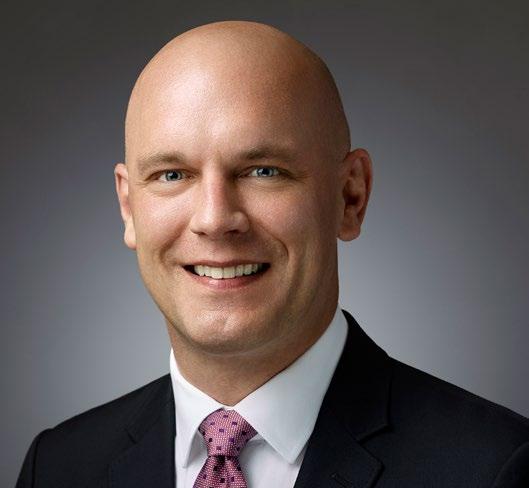


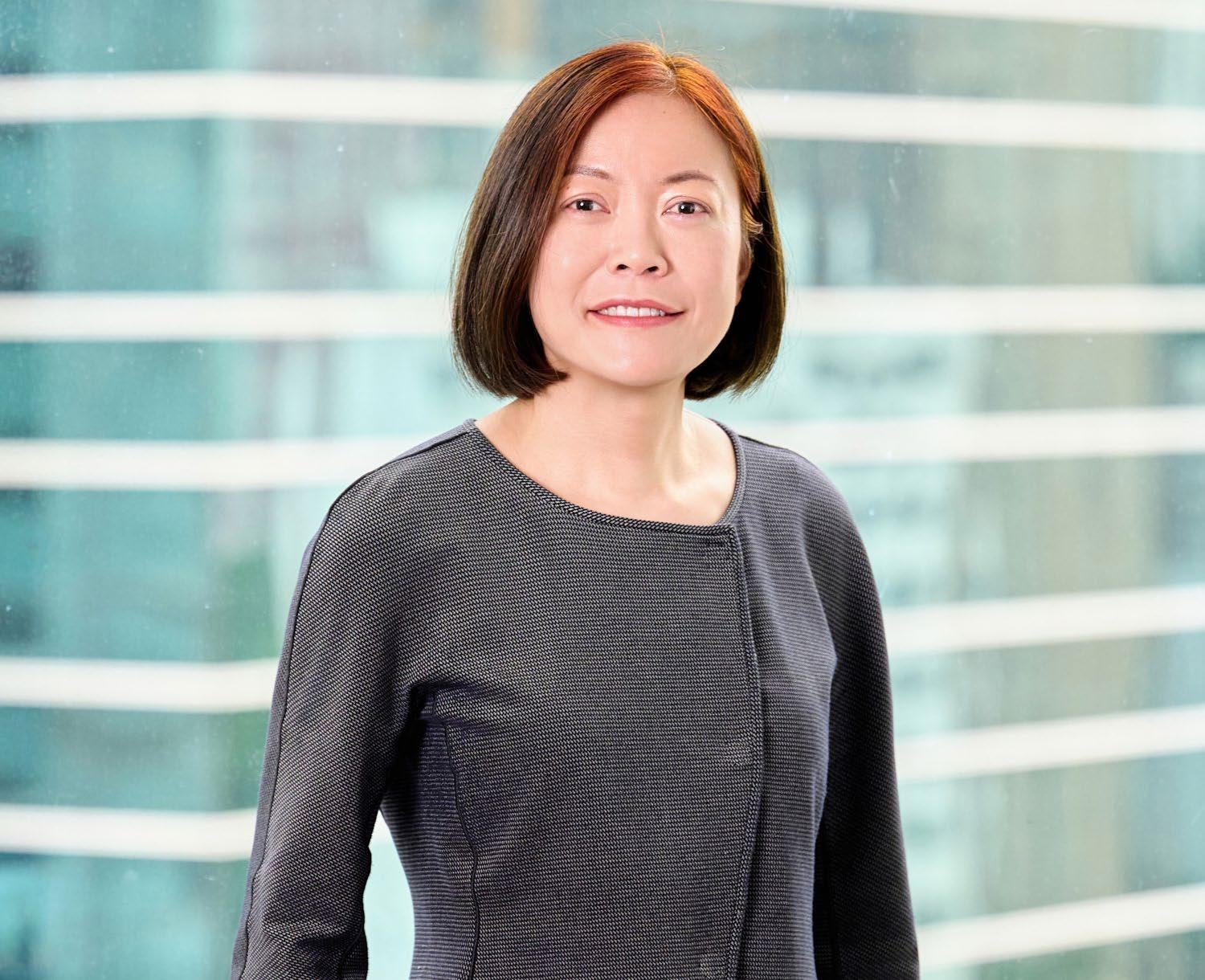
Hong Kong’s investment management sector continues to show promising growth and become a key factor in the development of the region’s financial landscape, driven by a wide range of factors such as its role as a gateway between Chinese and global markets, as well as regulatory changes and new opportunities brought by fintech and sustainable investment trends.
Fidelity International, a renowned global asset management firm, has been active in Hong Kong since 1981 with retail, institutional, wholesale, and pension business. It is one of the largest asset management firms in Hong Kong managing retirement assets, serving both Mandatory Provident Fund (MPF) and Occupational Retirement Schemes Ordinance (ORSO) schemes. It also offers Personal Investing platform for access to a wide range of mutual funds.
Fidelity’s purpose revolves around building better financial futures for clients with the key vision to be a leading, multinational provider of investment solutions, wealth management, and retirement services, offering clients the very best of Fidelity. The company takes a generational approach to services and investments on behalf of its clients, whose needs the company puts at the core whilst also ensuring compliance with regulatory guidelines and that their interests are protected. As client needs continue to evolve, so does the company’s necessity and drive to adapt and thrive.
In its commitment to ensuring clients get the best quality of services, Fidelity is active in understanding client needs and feedback, strengthening their offering and client touchpoints, especially on digital channels to uplift client satisfaction. “We remain focussed on working together to build better financial futures for our clients and are committed to supporting people to achieve and stay in great financial health throughout every stage of their lives,” Charlotte Chan, Head of HK Global Platform Solutions & Head of Hong Kong said.
Amongst the company’s digital roadmap for pension and personal investing members, there are several key rollouts in 2024 including an innovative ‘’Rewards’’ feature in its SmartRetire mobile app to boost client engagement, incentivise clients to manage their accounts online and use its resourceful financial planning tools more frequently, integrating them into clients’ lifelong investment journeys.
Such a capability enables Fidelity to distribute rewards such as e-vouchers promptly via the mobile app to eligible clients, where they can easily redeem for use at designated merchants in a few clicks. At the same time, it helps Fidelity better understand clients’ behaviour through the tracking of redemption status, which in turn supports future engagement activities.
This streamlined process not only enhances client experience and
By combining leading investment management capabilities, with personal investing and retirement savings platforms, we are working together to build better financial futures.

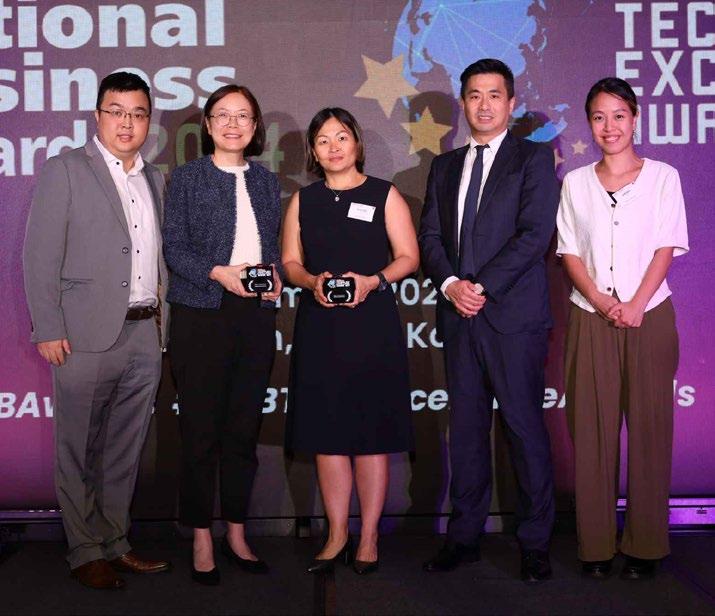

satisfaction but also optimises its rewards inventory management, achieving cost efficiencies. This has been widely used in client engagement campaigns throughout the year and complemented with gamification elements in the app, which have proven effective in boosting overall campaign responses and engagement rates.
Fidelity has also upgraded its mobile app services with mobileoptimised fund detail pages, which allow mutual funds breakdown by regions, asset classes, and industries. This offers clients easy access to fund information and fund performance rankings, the most viewed fund choices, as well as a fund watchlist for clients to track funds all in one place. Aside from the mobile app, the company also continues to upgrade its web portal, including but not limited to promoting email communication to replace paper mailings of company updates and allowing document submission online for personal investing accounts.
“Though digital channels are important touchpoints for us to connect and engage with our clients, we also continue the personal interaction via hotline, service centre, client service managers, and relationship managers to serve different customer groups and meet their evolving needs,” Chan added.
In response to the ever-evolving landscape of personal wealth management and retirement planning, Fidelity stays focussed on using its expertise and
• More than 50 years of global investment management experience, with our services reaching customers in over 28 locations worldwide
• Active in Hong Kong since 1981, offering retail, institutional, and wholesale clients a wide range of products and services, including MPF and ORSO schemes, personal investing, and mutual funds
• One of the largest retirement asset management firms in Hong Kong, servicing Hong Kong working populations with both MPF and ORSO schemes
This page: Fidelity Pension Event - Themed ‘Embracing the future with eMPF’; Fidelity wins Mobile - Financial Services and Digital - Financial Services categories at the Hong Kong Business Technology Excellence Awards; and Fidelity SmartRetire Mobile App introduced new features to delight their clients
Opposite page: Charlotte Chan, Head of HK Global Platform Solutions & Head of Hong Kong at Fidelity International
providing innovative solutions that empower clients to make informed investment decisions and be supported in wealth and retirement planning. This is evident through its customer-centric services and digital capabilities.
At the same time, the company aims to provide resourceful information for clients including the latest market outlooks, proactive customer education including smart tips for retirement planning, financial wellness, survey insights, etc. Fidelity enables these through regular communication via emails, client events, webinars, tools, and educational articles on relevant information to help clients better prepare for future retirement needs. It also conducts user research and interviews to get target customer insights on new digital functions that it plans to offer to ensure that final products are fit for their use.
The company’s relentless efforts in serving clients through innovative and quality solutions through the years have earned them recognition in the Financial Services category from the prestigious HK Business High Flyers Awards for the fifth consecutive year.
Fidelity is confident in its preparedness to adapt to trends and opportunities that are going to shape the Hong Kong financial landscape moving forward, amongst which is the transformation of the MPF experience with the eMPF Platform. The company is working closely with different parties to ensure a smooth transition of its MPF scheme and help clients get used to the Platform and digitalised journey ahead.


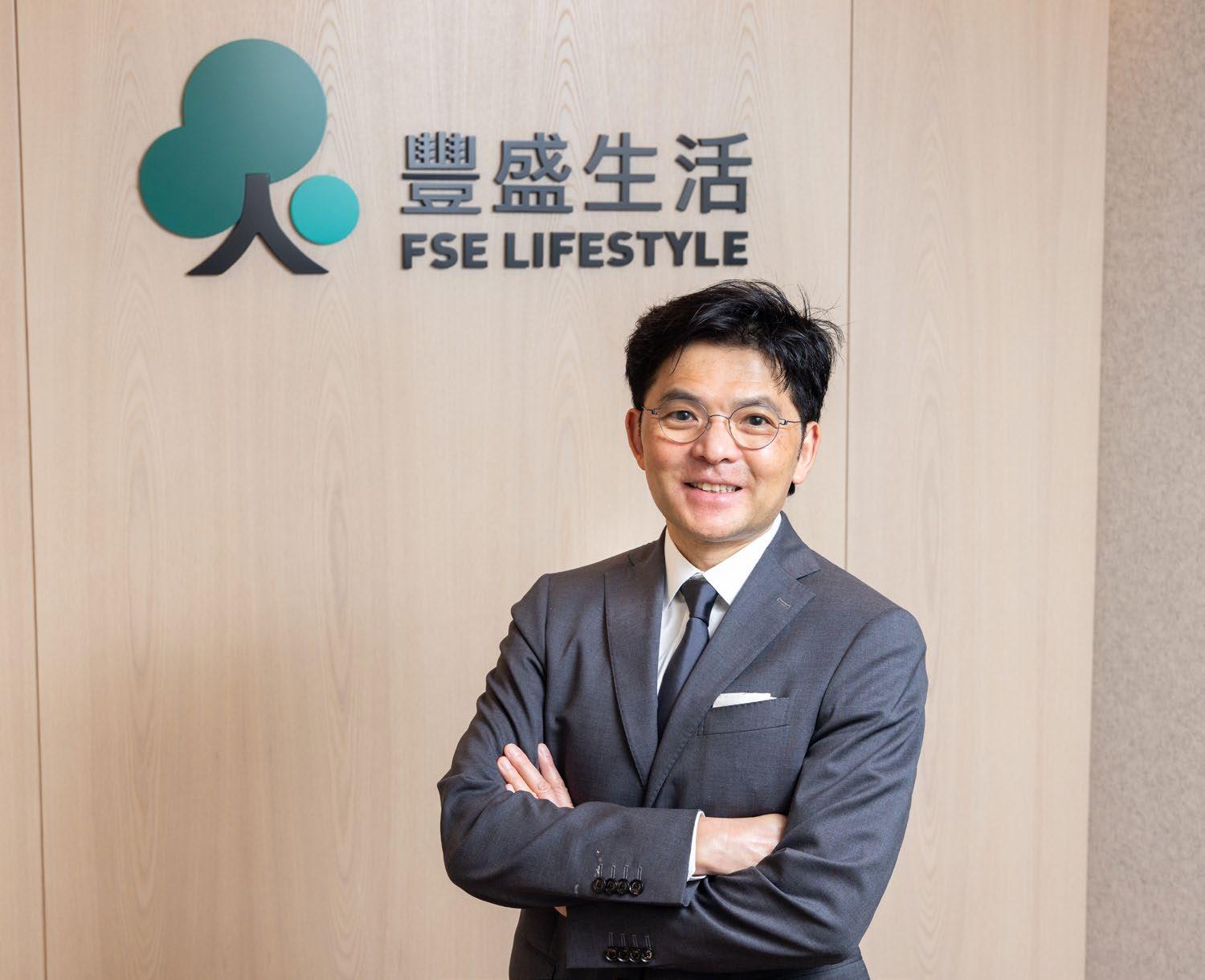
FSE Lifestyle has three major business segments: property & facility management services, city essential services, and electrical and mechanical engineering (E&M) services. Its business units are all market leaders in their respective industries. It has over 25,000 staff and a strong network to enable one-stop professional services to clients engaged in different industries, including property and facility management, cleaning and pest control services, insurance solutions, technical support and maintenance services, environmental solutions, system security, guarding and event services, as well as engineering and consultancy on installation.
FSE Lifestyle stands out in the industry with its commitment to sustainability, innovation, and customer-oriented services. These values manifest in its operations through transparent practices and a commitment to exceeding customer expectations, especially as the company adapts to changing market dynamics.
“Our services have been integrated into the public’s daily life and become their companions. Adhering to our integrated business model, we incorporate our advantages of exceptional talents with our innovative technologies to advance overall service efficiency and benefits,” Executive Vice-Chairman and Chief Executive Officer, Patrick Lam, said.
FSE Lifestyle diversified its business and repositions itself as a unique lifestyle conglomerate that offers a comprehensive range of services. Supported by a dedicated team, the company’s core businesses remained solid despite having to cope with a challenging business environment in past years. It
has a healthy balance sheet with diversified sources of cash flow and a net gearing ratio at zero for the year. This became possible through its “TrioInteractive Strategy,” which encompasses training and development, safety and health, as well as stakeholder engagement.
Under this framework, FSE Lifestyle placed strong emphasis on staff training and development through its training programmes that are designed to enhance skills and knowledge, focussing on the latest industry practices and technologies. It offered workshops, speakers’ sharing, site visits, and hands-on training sessions that empowered the teams to excel in their roles.
Regular safety audits, comprehensive training programmes, and the integration of safety management systems ensure that the company complies with regulations and creates a safe environment for everyone involved in their operations. The safety and health initiatives are part of FSE Lifestyle’s belief that business sustainability requires a holistic approach, considering the environment, society, and corporate governance practices.
The company enhanced its customer engagement through personalised services and digital transformation. The company pioneered innovative technology developments to maintain productivity and competitiveness. This included the implementation of artificial intelligence (AI) and innovative service solutions, such as facial recognition system, real-time work monitors, Internet of Things (IoT), 5G mobile applications, and drone applications. Its E&M technical support and maintenance services apply Building Information Modelling (BIM) that integrate with current digital asset management tools to serve as an innovative management system for new and existing properties.
FSE Lifestyle Services Limited is a leading lifestyle services conglomerate with 3 major business segments: property & facility management services, city essential services, and E&M services.
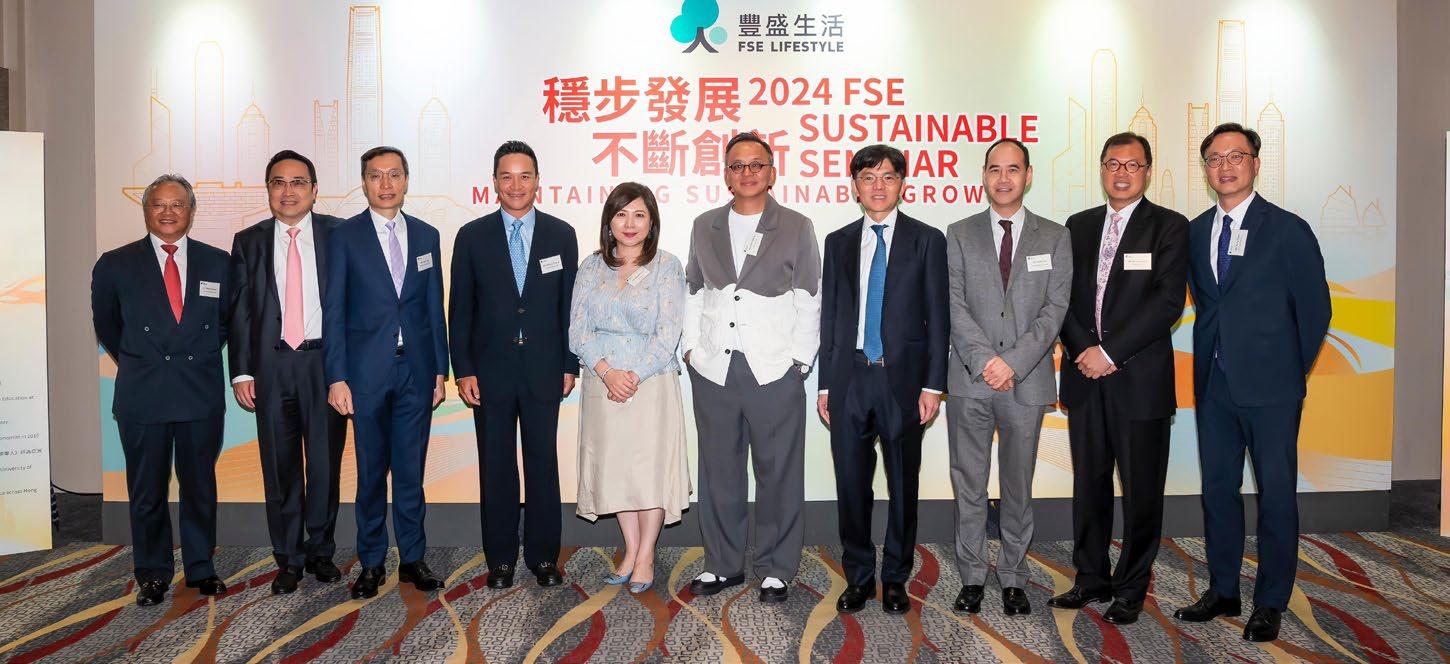
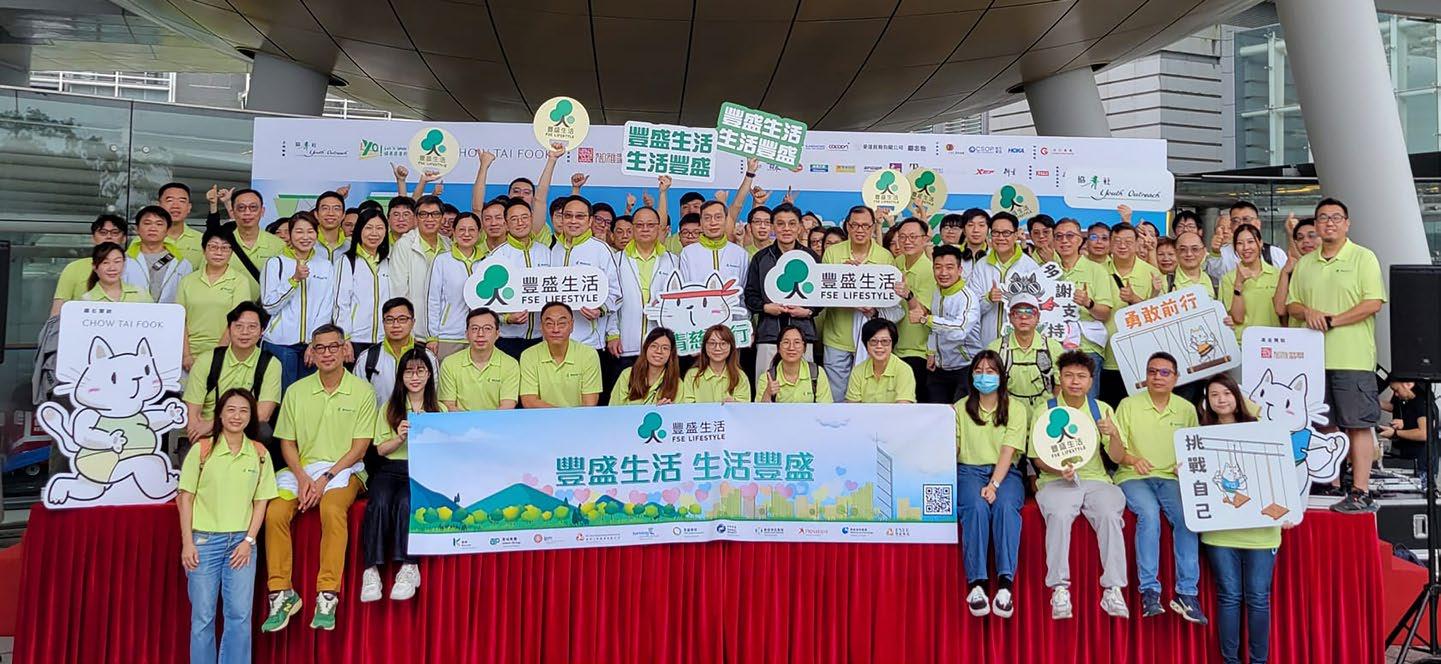
Moreover, FSE Lifestyle hosts its annual flagship event, FSE Caring Day. Since 2011, the event has stood as a beacon of community engagement and goodwill, being organised in close collaboration with different nongovernmental and social welfare organisations, working in unison to serve and give back to the community. These activities not only improved service quality, but also cultivated a motivated workforce equipped to meet the evolving needs of their clients.
Remaining at the forefront of industry trends
In its strong desire to drive innovation, FSE Lifestyle is actively exploring advancements in AI and IoT and implementing smart management systems that enhance operational efficiencies and improve customer experiences, so as to meet evolving client demands and long-term profitability.
This includes the installation of electric vehicle charging equipment in more than 3,000 parking spaces. The government is also targeting to expand the charging infrastructure to around 200,000 spaces by mid-2027.
Its property and facility management arms adopt new operating methods, combining skills with innovative technologies and IoT applications to enhance overall service efficiency and effectiveness, including Sm@rtUrban, ComEasy, and Drones, at over 120 sites.
• FSE Lifestyle Services Limited is committed to delivering a better life, a better home, and better quality every day.
• They provide integrated, convenient, and safe living environments tailored to meet the needs of customers, staff, and the communities.
• The company upholds quality, teamwork, integrity, caring, passion, and innovation as pillars of excellence.
This page: 2024 FSE Sustainable Seminar outlines “Maintaining Sustainable Growth”; FSE Lifestyle invests in innovative technologies to enhance service quality and efficiency to meet the growing customer demands; and FSE Lifestyle supports “YO! Let’s Walk the Road 2024"
Opposite page: Mr Lam Wai Hon, Patrick, Executive Vice-Chairman and Chief Executive Officer
Meanwhile, in its cleaning services, IoT sensors and robots are well adopted in its daily operations.
Driving growth in the evolving business landscape
FSE Lifestyle continues to remain a steady growth despite operational difficulties in the past year. It strives to maintain a strong financial position to ensure it is ready to grasp new business opportunities as they arise.
Moving forward, the company plans on focussing on the increased demand for professional construction services and rendering those services to public and private housing and infrastructure projects.
Recent market shifts have also highlighted the importance of agility and responsiveness, which the company plans to integrate into its strategic direction by pivoting on diversified growth opportunities and optimising synergies across portfolios.
This success has earned FSE Lifestyle the HKB High Flyers Award for Conglomerates, reflecting the team’s hard work and dedication.
“Looking ahead, our key goals include expanding our sustainable service offerings and enhancing our digital services to better serve our customers. I would like to emphasise that our success is a testament to our amazing team and partners who share our vision for a sustainable future. We look forward to continuing this journey together,” Patrick Lam said.

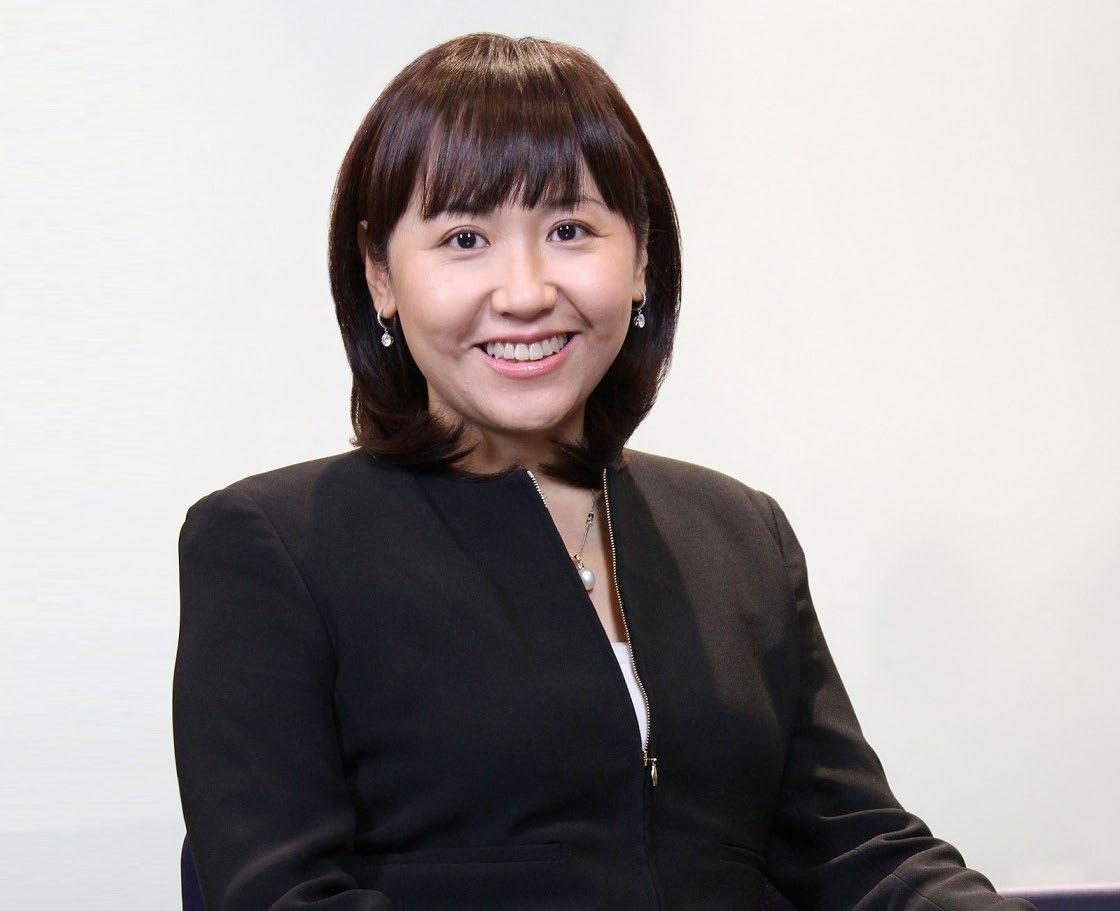
ang Seng Bank has firmly established itself as a key player in Hong Kong’s banking landscape, with customer-centricity as its hallmark. Through its Global Banking division, the bank consistently supports corporate customers on their digital transformation journeys, providing innovative solutions tailored to their evolving needs.
This customer-first approach, combined with its leadership and innovation in the financial industry, has earned Hang Seng Bank the prestigious High Flyers Award from Hong Kong Business, recognising it as one of the most successful financial institutions in Hong Kong, specifically in the Global Banking category.
Since its founding in 1933, Hang Seng Bank has been at the forefront of financial innovation. Today, it serves a customer base of over 3.9 million as Hong Kong’s largest local bank, providing best-in-class banking, investment, and wealth management services.
The bank provides a wide range of global banking products, including comprehensive RMB services, designed to meet the diverse needs of customers across the Greater Bay Area (‘GBA’).
Hang Seng Bank understands the unique needs of its global banking customers and provides tailored advisory services to help customers achieve
their digital KPIs. Leveraging its Global Payments Solutions, the bank delivers customised digital collection and payment solutions that enhance operational efficiency and optimise costs for customers in industries such as property management, medical services, and education.
Leading digital transformation with leading-edge customised collection and payment solutions
In digital collection, Hang Seng’s FPS QR Code Bill Collection Service enables effortless bill collection by generating unique QR codes for each payer, simplifying bill management and ensuring secure, reliable transactions. Alongside this, the bank’s Point of Sale (“SoftPOS”) solution, developed in partnership with merchant service providers, transforms customers’ mobile devices into secure POS terminals, empowering businesses to embrace mobility and securely accept payments through digital platforms.
In digital payments, Hang Seng’s Host-to-Host and API Cash Management Solutions are highly effective tools for enhancing payment efficiency, improving security controls for transaction authorisations, and streamlining reconciliation processes.
The bank also supports customers with its 5-minute GBA RMB/HKD Payment Service, enabling faster and more convenient cross-boundary payments to and from mainland China, helping customers better manage their working capital.
The introduction of the Hang Seng Commercial World Mastercard
Hang Seng offers a seamless omni-channel experience for customers to take care of their banking and financial needs anytime, anywhere.



Virtual Card is another key initiative from the bank that makes payment transactions easy for global banking customers.
This innovative solution provides unique virtual card numbers for each transaction, ensuring secure online payments, simplified reconciliation, and better expense control.
Customers can easily manage transactions through the Mastercard Smart Data Expense Management Platform, which benefits them with seamless bookkeeping and tax filing.
Excellent support for customers on their digital transformation journeys
Hang Seng Bank’s success is rooted in its strong customer-centric ethos, ensuring it delivers tailored solutions that address the specific needs of every customer. By combining deep expertise with innovative advisory
• Founded in 1933, Hang Seng is widely recognised as the leading domestic bank in Hong Kong, currently serving close to 4 million customers.
• As a homegrown financial institution, Hang Seng is closely tied to the Hong Kong community. It supports the community with a dedicated programme of social and environmental initiatives focussed on future skills for the younger generation, sustainable finance and financial literacy, addressing climate change, and caring for the community.
• Hang Seng is a principal member of the HSBC Group, one of the world’s largest banking and financial services organisations.
services, the bank empowers customers to achieve sustainable growth and operational excellence, fostering long-term partnerships built on trust and collaboration.
Receiving the High Flyers Award is a testament to Hang Seng Bank’s leadership in the global banking sector. Its commitment to driving digital transformation, supporting regional development, and delivering innovative solutions highlights the bank’s dedication to creating meaningful value for businesses and communities alike.
The HKB High Flyers Awards, presented by Hong Kong Business, is a prestigious awards programme that recognises and celebrates outstanding businesses throughout the region for their innovative products and exceptional services. This distinguished event acknowledges those enterprises that have made significant contributions to enhancing the region's overall capabilities and competitiveness.

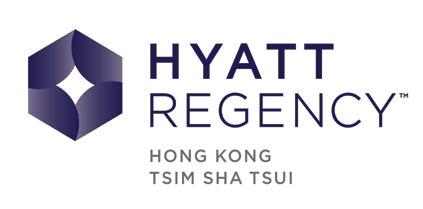
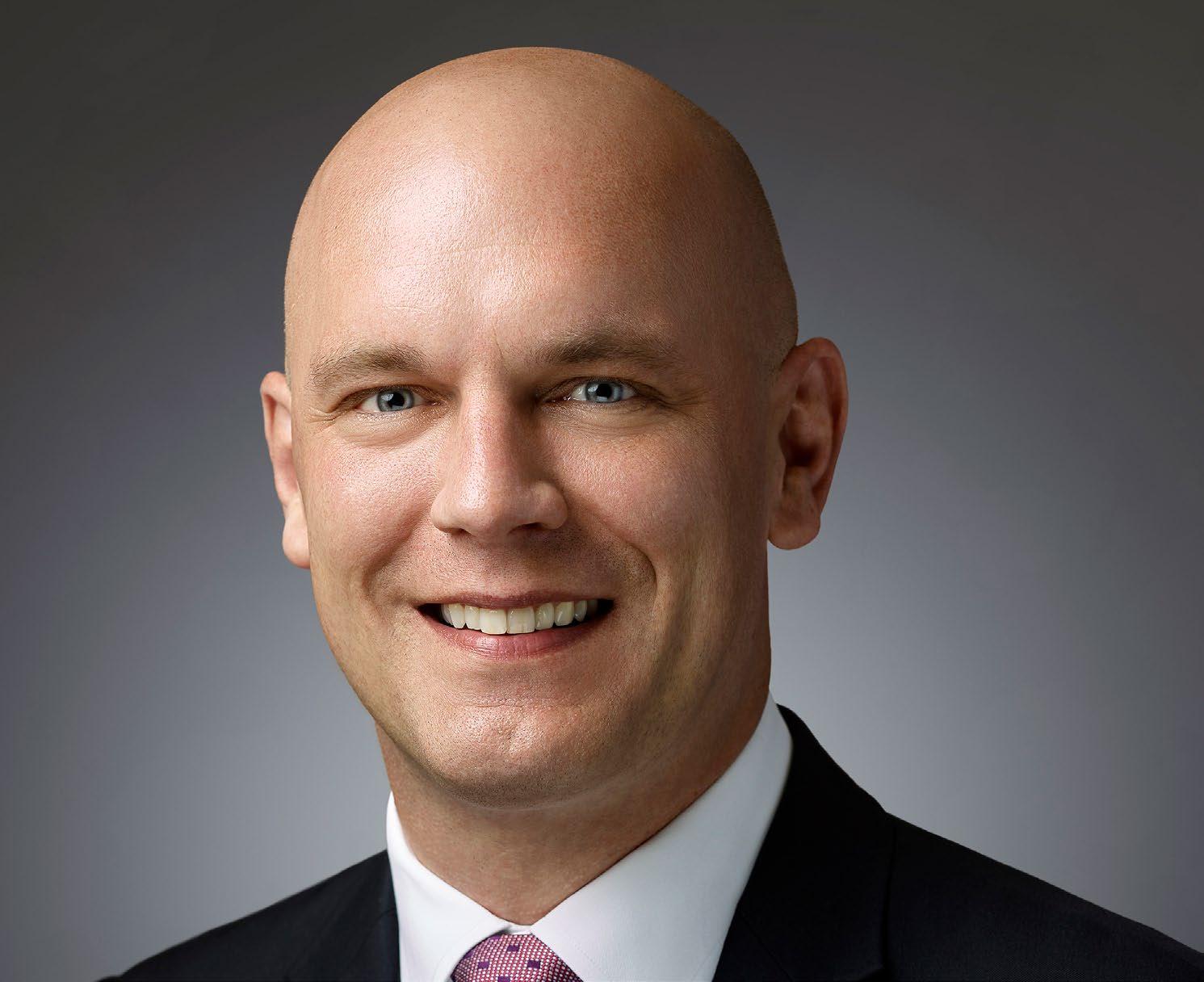
ince opening its doors in 2009, major hotel Hyatt Regency Tsim Sha Tsui continues to exemplify hospitality excellence, providing top-notch service and remarkable guest experiences to customers.
The hotel, situated in the heart of the bustling Tsim Sha Tsui business and tourist district, offers over 381 guestrooms and suites, state-of-the-art meeting and private dining facilities. These include a pillarless ballroom and five meeting venues of various sizes. Its location is also strategic, being surrounded by world class art and cultural hotspots where guests can experience a truly enthralling journey.
Hyatt Regency Tsim Sha Tsui currently celebrates its 15th year of offering stress-free environments for seamless gatherings and empathetic services that anticipate guests’ needs. Since its founding, it has upheld its mission of providing customers with a full range of services and amenities, including the space to work, engage or relax; notable culinary experiences; technology-enabled ways to collaborate; and expert meeting and event planners who can take care of every detail.
Leading this mission for the company is its professional and enthusiastic General Manager Per Kredner, who has had a successful career in hospitality management spanning 20 years.
Kredner has gained this vital experience in his work across several
properties in Asia and the Middle East, including the prominent Grand Hyatt Dubai, Grand Hyatt Singapore, and Park Hyatt Shanghai.
Since being appointed in 2016, his strong leadership skills and strategic directions in hotel management and operations initiatives have proven to be a monumental success for Hyatt Regency Tsim Sha Tsui. He mentioned that this success is due to being excited and humbled by the brand’s talented teams that have greatly contributed to its success since opening.
“It is important to create genuine connections and truly understand our guests, including our associates. We live in Hyatt Regency Tsim Sha Tsui’s purpose 'We care for people so they can be their best' to the max. In hospitality, the human factor is the core essence to success and care is the heart of our business,” Kredner said.
Hyatt Regency Tsim Sha Tsui's pivotal milestone
In celebrating a momentous occasion for the brand, Hyatt Regency Tsim Sha Tsui has indulged its customers with an attractive and exclusive range of offers on rooms, weddings, and dining experiences that reflect its commitment to excellence.
Chin Chin Bar, another establishment within the hotel, commemorates the 15th year by proudly introducing its first-ever private label,
We care for people so they can be their best.



a 15-year-old single malt Speyside Scotch whisky as part of this exciting anniversary celebration.
These iconic offerings for guests have become the highlight of Hyatt Regency Tsim Sha Tsui’s 15th year of operations. This has resulted in more efficient, personalised, and energising events within its premises. Such accomplishment has earned the recognition of the prestigious HKB High Flyers Awards, where the hotel was recognised as the Best City Hotel.
Hyatt Regency Tsim Sha Tsui continues to lead with purpose, merging exceptional dining experiences with meaningful sustainability practices.
At Hugo’s, the Nose-to-Tail promotion spotlights premium grass-fed Cape Grim beef, embodying the restaurant’s commitment to high animal welfare products and responsible sourcing.
As a member of Hong Kong Sustainable Seafood Coalition (HKSSC), the hotel showcases its speciality menus for the United Nations World Oceans Day featuring certified sustainable seafood, such as its two-tiered Sustainable Seafood Tower at Hugo’s, sustainable seafood on the buffet line at Cafe, and fried sustainable tiger prawn and vermicelli in clay pot at The Chinese Restaurant.
Beyond its dining experience, Hyatt Regency Tsim Sha Tsui advances its sustainability through various initiatives. Through partnerships with Zero Foodprint Asia and the Restore with ZFPA programme, the hotel supports
• Established in 1969 and operated as the first Hyatt hotel outside of the United States, Hyatt Regency Hong Kong closed its doors in 2006 and reopened as Hyatt Regency Hong Kong Tsim Sha Tsui in 2009.
• The hotel offers 381 guestrooms and suites, as well as authentic F&B offerings at three restaurants and a bar.
• Situated in a prime location surrounded by world class art and cultural hot spots, the hotel has direct access to two MTR (Mass Transit Railway) stations.
farmers across Asia and exclusive projects such as the Regenerative Organic Valley Project in Wawee Valley in Northern Thailand and the Regenerative Agriculture Project in Mindanao, Philippines.
Using Hyatt EcoTrack, the hotel can monitor greenhouse gas emissions, water, waste, and recycling, driving data-backed efficiency improvements. In celebration of Earth Month, the hotel hosted a Green Media Day in April 2024, showcasing its herb garden, green initiatives, and sustainable dining practices with its Executive Chef, Cyril Jeannot.
Hyatt Regency Tsim Sha Tsui installed the Lumitics food waste trackers and an on-site food waste digester to better monitor and reduce food waste. The hotel champions community support through collaborating with the Foodlink Foundation, which has resulted in over 2,900 meals donated from the hotel’s food surplus.
The excess Nespresso capsules were recycled, transforming the coffee grounds into green energy or nutrient-rich compost to be used in farms. Reductions in single-use plastics further bolstered Hyatt Regency Tsim Sha Tsui waste circularity efforts.
The hotel's dedication to sustainable practices has earned them the EarthCheck Silver Certified for Accomodation - Business Hotel category, underscoring its environmental stewardship with sustainable dining, innovative initiatives, and award-winning achievements.
Organised by Hong Kong Business, the HKB High Flyers Awards honours the hotel’s accomplishment in setting an example of what the future looks like for the region’s hospitality industry.


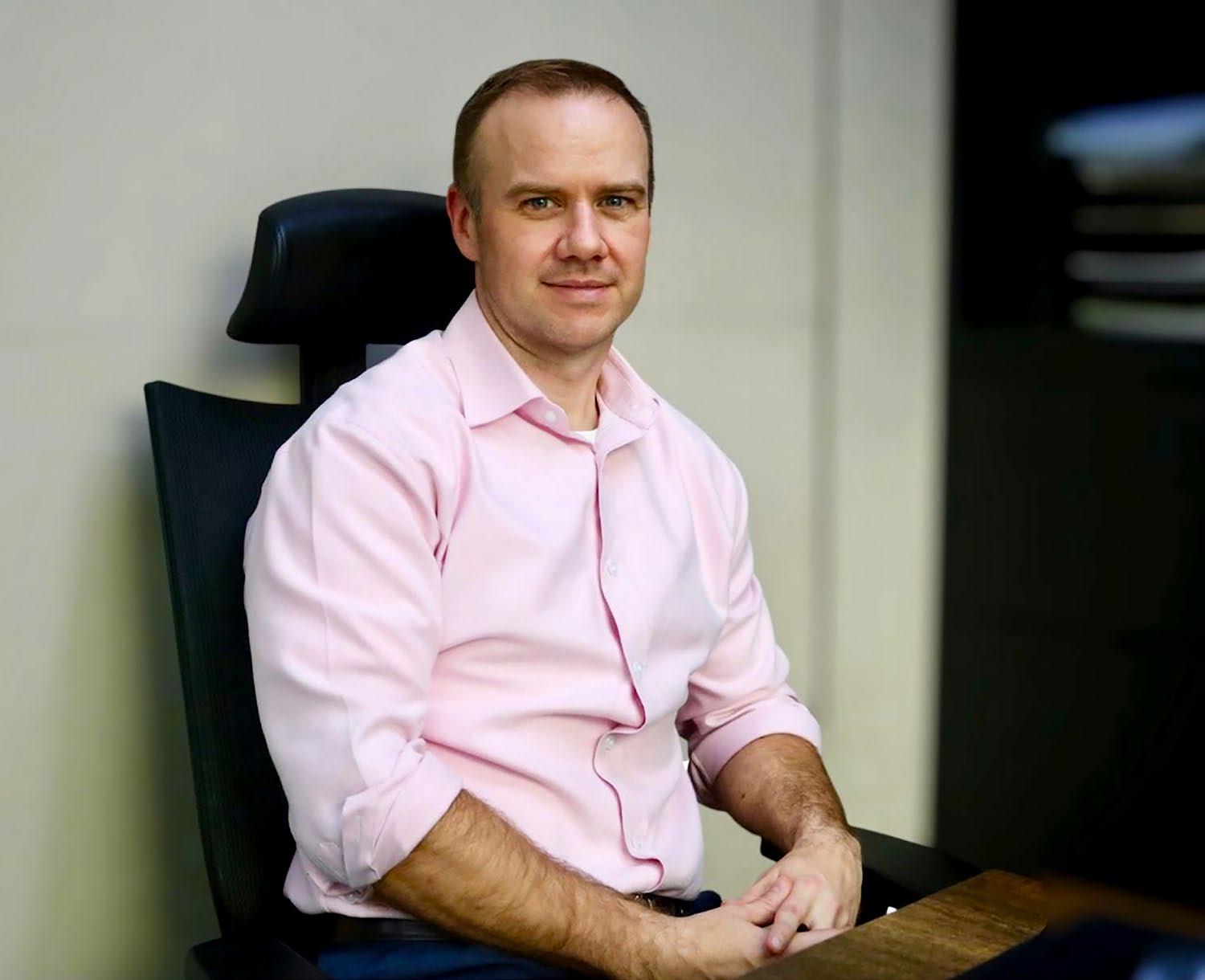
The insurance industry continues to evolve in recent years, driven by rapidly shifting consumer demands, highlighting the need for seamless platforms and insurance products that can be accessed instantly. With this, the industry is seeing progress in the way it caters to the needs of consumers.
This shifting market spotlights the capabilities of Lifestyle Insurance, which has emerged as an industry leader whilst staying true to its core values of trust, integrity, and excellence— principles that guide its daily operations.
Lifestyle Insurance operates with a dedicated team of professionals led by its Senior Partner Neil McCormick, a UK Chartered Insurance Institute member. He is supported by a designated customer service and claims team, all committed to delivering exceptional service. The organisation’s structure is designed to be agile and nimble, allowing it to respond swiftly to ever-changing market dynamics.
Through strategic training, the company’s workforce is wellequipped to uphold its guiding philosophy of protecting what matters—clients' interests and lifestyles.
“We are dedicated to providing free, unbiased advice and personalised service, extending to helping clients navigate claims when needed. Should any challenges arise, the client and their lifestyles are protected through a strategic selection of insurance products that range from personal protection to home and extend to business insurance options,” McCormick said.
Since joining the insurance brokerage industry in 2008, McCormick has advised individuals, families, and businesses on medical, life, and general insurance.
His move to Lifestyle Insurance in 2015 has coincided with a greater focus on working with small business owners and their employees to protect their assets and liabilities.
“My holistic approach strengthens client relationships and allows me to offer tailored solutions with genuine value.
Testimony to this statement are the many client referrals and the extensive relationships I have built with insurance partners over the last 15 years,” he said.
Under his leadership, Lifestyle Insurance’s expat medical insurance, business, and financial lines have been successful, reflecting the growing demand for specialised coverage.
“On behalf of Lifestyle Insurance, I am delighted that others are recognising the things that we do every day. What we do differently may be subtle, but it can have significant impacts on the clients and end users of our services,” McCormick added.
Lifestyle Insurance's core strengths lie in its independence, a broad network of partnerships with over 40 leading insurance companies, and personalised customer service. These advantages have allowed the company to offer advice tailored to individual needs, an advantage in Hong Kong's competitive market.
Whether it’s protecting your home, health, or business, our dedicated team is here to ensure you get the coverage you need.


• Established in 2010, we have a proven track record of safeguarding the futures of individuals and businesses alike.
• Our team of experts provides free, impartial, and independent advice, always prioritising your best interests.
• We break down complex policy terms and coverage options, making insurance simple and understandable.
• Customising your insurance plan within your budget is our top priority – get the coverage you need, at the price you want.
One of the standout initiatives the company has introduced is the Lifestyle Club, which offers exclusive discounts of up to 25% on selected products for businesses and organisations. The Lifestyle Club has not only made high-quality insurance more accessible but has also helped strengthen community ties, positioning Lifestyle Insurance as a client-first, communityoriented brand. It has responded to consumers’ growing need for flexibility by introducing a Buy Online option for specific types of personal insurance. Available through the company’s website, the offering lets clients easily purchase travel, helper, and home contents insurance online.
Lifestyle Insurance has implemented a comprehensive consultation process that delves into clients' unique circumstances to understand and cater to their diverse needs. Its advisors are trained to listen actively and provide solutions that align with clients' goals. Effective client engagement practices, such as personalised consultations and ongoing support, have built trust and long-term relationships.
In 2024, Lifestyle Insurance has built a business tool that lets visitors learn about all key insurance lines relevant to their industry. Named Insurance Finder, the platform outlines the insurance coverages mandated in Hong Kong and offers guidance on other lines and the required cover levels considered necessary by the company.
It has proved popular and has helped business owners learn more about other insurance lines and further safeguard their business operations.
In the same year, Lifestyle Insurance opened a dedicated verified WhatsApp Business Account based on clients’ needs and
preferences. This approach has helped the company establish strong client relationships based on trust and understanding.
As the insurance landscape evolves, the company positions itself as a thought leader by embracing regulatory compliance and knowledge sharing. The Hong Kong Insurance Authority has tightened regulations concerning investment-linked assurance schemes. This means that brokers are expected to meet new standards in advisory and discretionary investment management services, requiring specific qualifications and experience. Clients now expect brokers to provide insights and advice on how these changes could impact their policies.
Lifestyle Insurance stays on top of all the news and shares the insights with clients, writing their thoughts and insights in the company blog. It remains dedicated to providing exceptional service and innovative solutions. Its focus on client satisfaction and commitment to integrity sets it apart as a trusted partner when navigating the insurance landscape.
With an unwavering commitment to clients, innovative approach, and adaptability in a changing market, the company continues to lead the way in the Hong Kong insurance industry.
This major milestone has been recognised by the HKB High Flyers Awards, as Lifestyle Insurance brings home the title in the Insurance Brokerage Services category.
The company’s key goals include further expanding its digital capabilities and enhancing customer experiences, ensuring it remains a leading force in the insurance industry.
“Our ultimate mission is to be the go-to insurance broker for individuals, families, and businesses seeking reliable, comprehensive coverage for their unique lifestyles. So, we will continually strive to achieve that goal and maintain our position as a trusted and respected brand in the industry,” McCormick said.




As one of the top business schools in Asia Pacific, Faculty of Business, well known as PolyU Business School (PBS), stands at the forefront of education and research, offering top-quality academic programmes and spearheading cutting-edge research.
It offers a comprehensive portfolio of undergraduate and postgraduate programmes in the fields of accounting, aviation, business artificial intelligence, ESG, finance, logistics, management, maritime, marketing, shipping, and transport. In addition to their BBA, MBA, DBA/DMgt, DBAI, DFinTech, and specialised master's degrees, their research programmes also lead to the MPhil and PhD awards.
Dedicated to the pursuit of innovation-driven education and scholarship, PBS collaborates with stakeholders to create a positive sustainable societal impact with a focus on Hong Kong and the Greater Bay Area.
It has been recognised with prestigious accreditations from the Association to Advance Collegiate Schools of Business and the EFMD Quality Improvement System, establishing its outstanding approach to nurturing future leaders and innovators.
PBS takes pride in a dynamic community and enriching environment, having a strong network of over 170 distinguished scholars, 5,200 students, and around 55,000 alumni.
In empowering the next generation of business leaders, its flagship MBA programme that equips students with the necessary skills and characteristics to thrive in today’s rapid business landscape and create a long-lasting and meaningful impact on society.
Nurturing leadership and creator mindset
PolyU's MBA programme offers experiential learning such as offline networking events or professional development effects. Students are given the opportunity to attend international executive programmes at partner institutions. They have access to optional activities and field trips aiming to provide them with a comprehensive MBA experience. The MBA curriculum also highlights technological aspects like blockchain, cloud computing, data science, and AI, guaranteeing that the programmes are competitive enough to equip students for top management roles.
“The presence of advanced technology such as analytics, big data, and AI certainly changes the landscape of the job market for MBAs. Industries such as fintech, consulting, healthcare, and startup companies will likely have higher demand for MBAs,” Dr Justin Law, programme director of the PolyU MBA Programme, said.
“PolyU’s MBA has recently revamped its programme with a focus on 'Lead to Create.' Thus, not only we would like our MBA graduates to be successful future leaders, but we would also like them to lead their organisations to create a positive impact on the industry and society," he added.
The programme is taught by renowned professors and industry experts with extensive knowledge and experience, offering students an exceptional learning experience.
Learning materials and programme activities are shared with a regional focus to enhance students' comprehension of local business landscapes and challenges. An MBA-DBA Connect study option is also


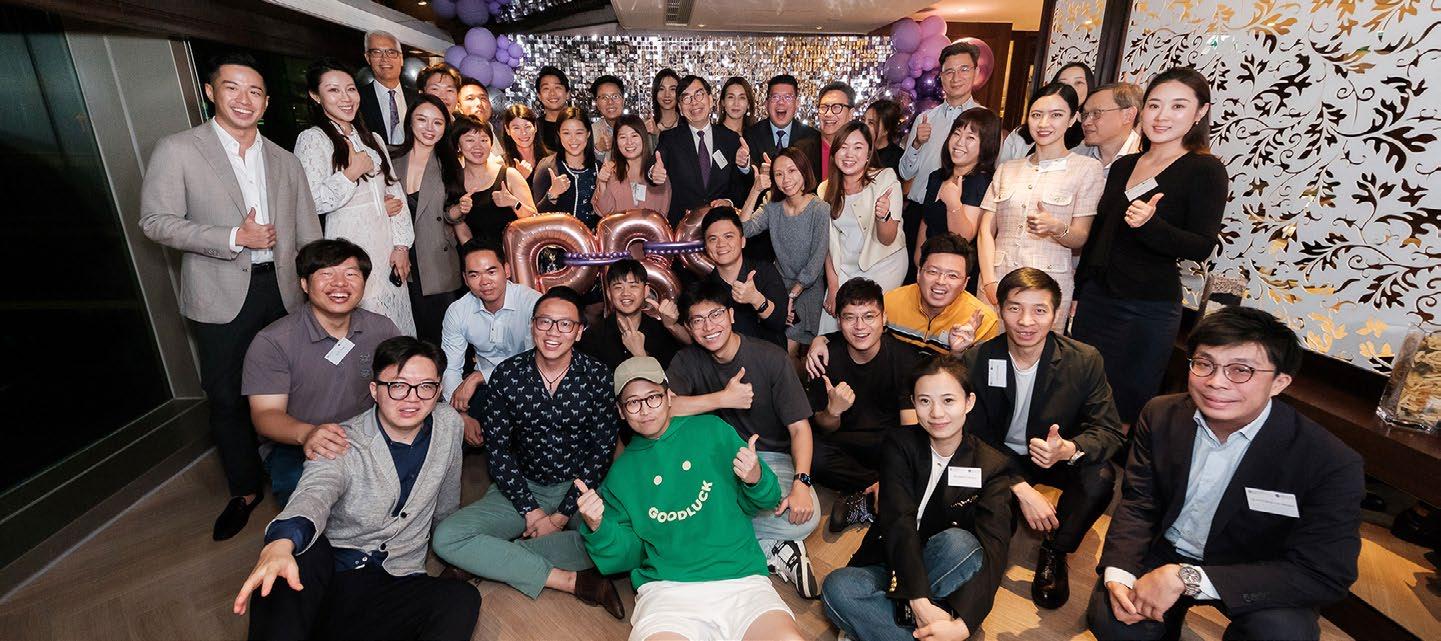
• PolyU Business School is one of the biggest business schools in Asia, with 170 world-class scholars, 5,200 students, and around 55,000 Alumni.
• The University provides the best holistic education to nurture socially responsible “leaders of tomorrow” who possess a strong sense of national identity and a global perspective and pursue innovation and interdisciplinary research to address the world’s most pressing challenges.
• The University's unwavering commitment to excellence has earned it international recognition, with PolyU consistently ranking amongst the top 100 universities worldwide.
available for select MBA students to pursue a fast-track study in the distinguished PolyU DBA programme.
Leading in global academic standards
The institution has achieved impressive standings in international rankings, highlighting its excellence in various fields. It ranked 1st in Shipping Research according to Clarivate Web of Science from 2021 to 2023. In 2024, it secured the 4th position in Management in the ShanghaiRanking Global Ranking of Academic Subjects (GRAS). Additionally, it placed 41st in the UTD Top 100 Worldwide Business School Rankings based on research contributions from 2019 to 2023 and 45th in the Times Higher Education (THE) World University Rankings 2024 for Business & Economics.
Opposite page: MBA Creator Workshop
PBS’ strong curriculum and development roadmap for its MBA programme has been recognised by the coveted Hong Kong Business High Flyers Awards, as it brings home the Excellence in MBA Student Leadership Development category win.
The prestigious Hong Kong Business High Flyers Awards celebrates Hong Kong’s most outstanding leaders and innovative companies, honouring their exceptional products and services and setting new benchmarks, shaping the future of the region.
The awards programme acknowledges the PolyU Business School's dedication in realising knowledge and technology transfer through educational programmes, as well as partnership and close links with industry and the professional community.



n an era where customer expectations are rapidly evolving and technological advancements are reshaping industries, Prudential Hong Kong, an insurance company which has been serving Hong Kong since 1964, is leading the way with a bold vision for the future. At the heart of its strategy is a commitment to technology-driven innovation, particularly in enhancing customer experiences and transforming business models.
It has embraced emerging technologies such as artificial intelligence (AI) and machine learning, which have not only improved operational efficiencies but have also delivered more personalised services that meet the unique needs of customers.
These values reflect the company’s core objective of tech-enabled distribution — ensuring that tech initiatives are aligned to support distribution, guaranteeing that IT efforts directly deliver tangible results.
For Sam Lim, Chief Information Technology Officer of Prudential Hong Kong, such a level of professionalism is reflected in the involvement of fellow IT leaders in strategic business planning. He states that by doing so, the department can provide valuable insights into how technology can drive and support business strategies, ensuring a seamless alignment between technological capabilities and business goals.
“Regular collaboration and communication between IT and business units foster a unified approach to achieving the company’s overall objectives, especially in light of evolving customer expectations,” Lim said.
Prudential’s strategic initiatives aim to build a seamless connection between technology and business goals to ensure long-term success in an increasingly digital world. “Prudential is proactively embracing emerging technologies like AI to drive innovation, improve efficiencies, and enhance customer experiences," Lim added.
It has adopted a phased approach to integration, starting with pilot projects to identify potential issues and gradually scaling up. It uses application programming interfaces (API) to facilitate communication between AI solutions and existing systems, reducing complexity and optimising resource allocation and cost monitoring.
For instance, the company has implemented AI-driven Claims Fraud Detection and Customer Propensity models to assist informed decisionmaking. Additionally, it has further incorporated AI into its enquiry operations for financial consultants, which has helped better understand user intent, optimise workflows, and direct them to appropriate destinations for support.
Amidst the company’s expertise in technology adoption for data initiatives, this has not come without its fair share of challenges.
Lim observes that the adoption of technology should be actively enhanced to adapt to market changes.
Similar to most companies, he shares that Prudential ensures that digital technologies are simple and straightforward, leverages partnerships to
Prudential is committed to being the most trusted partner and protector for this generation and generations to come, by providing simple and accessible financial and health solutions.

• Serving Hong Kong since 1964, Prudential offers health protection, wealth and retirement planning solutions, general insurance, and employee benefits to over 1.3 million customers.
• In 2023, Prudential opened a branch in Macau, making healthcare and financial security more accessible to people in the Greater Bay Area.
• Prudential boasts a strong multi-channel distribution network, including Hong Kong's largest agency force, a 25-year bancassurance partnership with Standard Chartered, and nearly 170 intermediary partners.
• Prudential reported total claims payments of approximately HK$3.3b in the first half of 2024.
enhance data analytics capabilities, and always keeps customers at the centre of all technology transformation and adoption efforts.
With the utilisation of AI, Prudential has also gathered profound insights that are revolutionising the insurance industry. The technology has empowered the company with predictive analytics, personalised insurance products, and efficient resource management, allowing them to analyse vast amounts of data to predict customer behaviour and customise insurance products to enhance customer satisfaction and retention.
Lim has noted that AI is set to transform every facet of the industry, including its integration in claims processing, distribution, underwriting, and pricing. These advancements are expected to enhance decisionmaking and productivity, reduce costs, and optimise the customer experience for Prudential. “At our company, we plan to integrate these insights into our future operations and strategic initiatives by continuing to invest in AI technologies. We will focus on predictive analytics to anticipate customer needs and tailor our products accordingly,” he said.
"Additionally, we will leverage big data to streamline our operations and enhance customer service, ensuring that we remain at the forefront of the industry’s transformation.”
Prudential’s remarkable performance for the previous year, and their success in delivering technological excellence in the insurance landscape has earned them the accolade in the AI - Insurance category at the HKB High Flyers Awards. This prestigious awards programme celebrates the company’s capability to further elevate its business whilst staying true to its commitment to serving client needs.
“Winning this award is an incredible honour and a remarkable testament to our commitment to leveraging technology to elevate customer experience and capturing business opportunities. It is also a validation of our efforts to innovate and lead in our industry. Looking forward, our key goals will remain centred on delivering exceptional values to our customers and fostering a culture of continuous improvement through the adoption of technology,” Lim said.

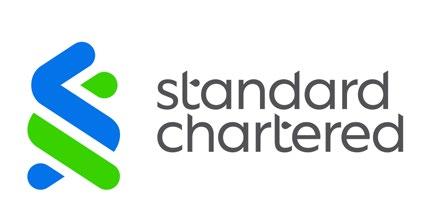

Banking company Standard Chartered Hong Kong continues to deliver strong financial performance year-to-date. This has been made possible as its underlying profit before tax in the first three quarters have risen by 30% YoY with broad-based growth and particularly strong momentum in Wealth and Global Markets.
As a leading global wealth manager, the bank has been increasing its investment in wealth management for affluent clients by investing in relationship managers and investment advisers, wealth solutions, and enhanced advisory, cross-border, and digital capabilities.
It hosted its inaugural Global Family Network Forum in Hong Kong in October 2024, receiving some 200 international clients and guests from all over the world. The event was graced by the presence of 80 global ultra-high net-worth families, as well as Finance Secretary Paul Chan, who delivered the keynote speech.
The event discussed topics that matter to ultra-high net-worth families and enabled them to network, share their experiences, and glean insights which they can learn and apply to their wealth journeys.
Moreover, the bank has been actively building a lifestyle proposition, covering wealth solutions and unparalleled experiences.
This has been exemplified by its exclusive launch of Taipei Chartered Flight and Osaka Chartered Flight meticulously for its Priority Private and
Priority Banking clients with complimentary travel and luxurious stays or dining experiences.
Standard Chartered also capitalises on the strengths of Hong Kong as a “super connector” to help clients explore cross-border opportunities, especially in the ASEAN and the Middle East markets.
It has arranged a variety of events to help Hong Kong and Mainland Chinese clients explore opportunities in the fast-growing markets whilst attracting foreign businesses and investors to invest in Hong Kong, as well as using it as a springboard to access the enormous opportunities in Mainland China.
Earlier this year, it organised a client delegation from Hong Kong to visit the UAE and meet with the local government and business leaders, as well as other colleagues, to promote business growth and development opportunities between the two markets.
It also signed memorandums of understanding with corporate clients to explore business opportunities in the Hong Kong-Vietnam corridor.
Standard Chartered also exemplifies its dedication to accelerating fintech innovation and developing Hong Kong as a global digital asset hub, participating in a range of pilot projects led by the regulators.
We've built a bank like no other, with a deep history, diverse capabilities, and unique perspectives that sets us apart. We are here for good, to unlock potential for our clients, communities, and the world.


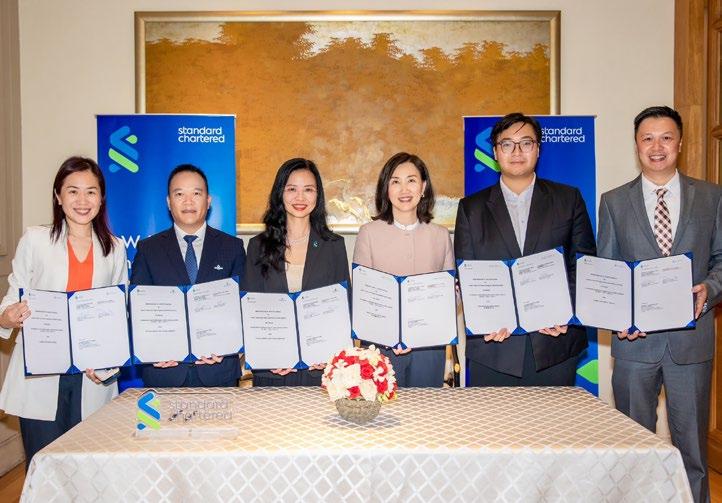
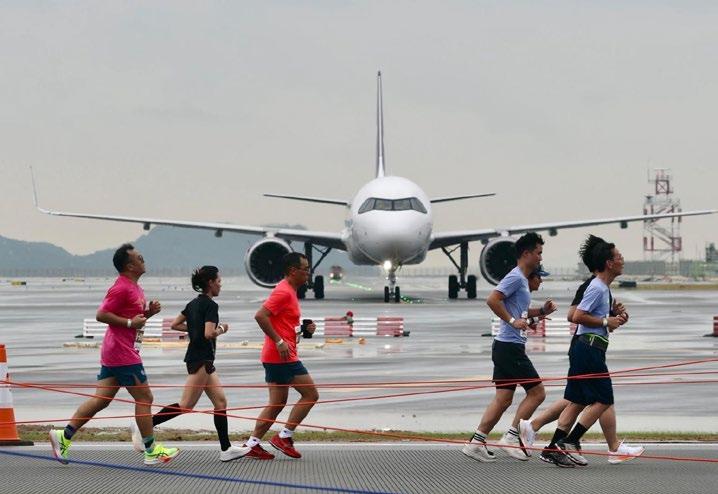
In July 2024, the company announced its partnership with Animoca Brands and HKT to participate in the Hong Kong Monetary Authority’s (HKMA) stablecoin issuer sandbox, which will leverage the institutional digital asset custody capabilities of Zodia Custody.
The collaborative efforts in exploring how stablecoins can play a key role in driving the evolution of financial and payments markets is going to support Hong Kong’s transformation into a global digital asset hub.
In August of the same year, Standard Chartered also joined the Project Ensemble Sandbox to conduct a range of proof-of-concept testing on tokenisation covering all of the four main themes of use cases, namely trade and supply chain finance, fixed-income and investment funds, liquidity management, as well as green and sustainable finance.
It anticipates that the overall demand for tokenised assets could reach US$30t globally by 2034.
The bank has also teamed up with BlackRock and Mastercard in September 2024 to take part in the HKMA’s e-HKD Pilot Programme Phase 2, which explores innovative use cases for new forms of digital money that can potentially be used by individuals and corporations.
• Standard Chartered is a leading international banking group, with a presence in 52 of the world's most dynamic markets.
• The history of Standard Chartered in Hong Kong dates back to 1859. It is currently one of the Hong Kong SAR's three noteissuing banks.
• Standard Chartered PLC is listed on the London and Hong Kong Stock Exchanges.
This page: Standard Chartered hosted its inaugural Global Family Network Forum, launched the Taipei Chartered Flight and Osaka Chartered Flight, signed MOUs to explore opportunities in the Hong KongVietnam corridor, and co-sponsored the Standard Chartered Hong Kong Marathon.
Opposite page: Mary Huen, Chief Executive Officer of Hong Kong and Greater China & North Asia, Standard Chartered
With 165 years of history in Hong Kong, Standard Chartered is committed to living out its brand promise. Its co-sponsorship of the “Hong Kong International Airport · Standard Chartered Hong Kong Marathon: ThreeRunway System 10km International Race” with Airport Authority Hong Kong, offered nearly 11,000 runners a once-in-a-lifetime opportunity to race on the runway of an operating airport.
On the other hand, it has launched a highly creative public education campaign titled “Anti-Fraud Restaurant” to raise public awareness of fraud prevention. The campaign temporarily transformed a dim sum eatery to serve creative dim sum delicacies tagged with anti-fraud messaging.
The bank has also produced a series of short TV videos to provide useful anti-fraud tips to the public. Staff volunteers have also been visiting elderly centres and hosting public educational activities in different districts to organise educational talks on fraud prevention.
With the effective measures, it has seen a YoY growth of over 40% in the amount of fraudulent payments being intercepted in the first quarter of 2024.
These milestones have been recognised by the HKB High Flyers Awards, as Standard Chartered bagged the title of Bank of the Year.



In the past year, the Hong Kong insurance industry has gone through a significant transformation, driven by advancements in technology, changing consumer expectations, and growing demands for a more sustainable operation. Consumers are now more accustomed to purchasing insurance and processing claims through online channels, as it enables more transparency and protection for them.
Despite these positive developments, the industry faces several challenges, such as low interest rates, intensifying competition in the market, and geopolitical challenges. Leading insurance players, such as Sun Life Hong Kong, continue to navigate these challenges and opportunities with their strong market positioning.
Sun Life Hong Kong, which has served the Hong Kong market since 1982 without a bailout, offers its rich heritage and stability. To this day, Sun Life Hong Kong remains one of the top three Mandatory Provident Fund service providers in the region, with one in every eight residents being their clients.
It is also the first in Hong Kong to introduce savings, life insurance,
and critical illness products with ESG as the main investment strategy, pioneering ESG research and frameworks.
In the region, the company operates with a robust structure, including the Life and Health department. Its teams work closely to support a wide range of products and services.
In early 2023, the Hong Kong government issued the Policy Statement on Developing Family Office Businesses, with one of its initiatives being to establish a family office service network to attract more family offices to set up in the region.
In line with government policies, Sun Life Hong Kong has taken the opportunity to proactively promote the development of the family office added-valued services ecosystem, providing high-end value-added services for wealth inheritance to meet market demands and provide more comprehensive services to high-end clients.
In July 2024, the company also built an “HNW Value-Added Service Ecosystem” to provide a comprehensive suite of superior services to high-net-worth clients in three major aspects: health, enhancement,
Our unwavering commitment is to put our clients at the centre of everything we do. With our foresight, we are always well-positioned for the future.

and value creation.
In the Health aspect, Sun Life Hong Kong provides high-quality medical support services to build a healthy life for clients and their families. In the Enhancement aspect, the company establishes an inheritance academy to enhance the ability of financial advisors to provide high-end services.
Meanwhile, the value creation aspect allows the company to provide high-net-worth clients with a variety of exclusive high-net-worth valueadded service package referrals.
For its family office packages, it offered high-end clients comprehensive insurance, wealth, and legacy planning services, with value-added service packages that include global tax consultation, business & personal legal advisory, trust & company secretary, and professional directorship services, amongst others.
In the past year, Sun Life Hong Kong also introduced work-from-home options and flexible hours, enhancing work-life balance, satisfaction, and productivity. It also offered comprehensive benefits, wellness programmes, and health initiatives. These efforts and commitment to employee development strengthened its position as a leading employer.
• Sun Life has been rooted in Hong Kong for over 130 years since 1892. During this time, we have built up a deep and profound level of experience in wealth planning and protection.
• As our clients navigate their way through life’s important moments, our job is to use our expertise to enable them to make the most suitable decisions for their needs and plan wisely for their financial future.
• Sun Life Hong Kong Limited is a wholly-owned subsidiary of Sun Life Assurance Company of Canada.
These initiatives allow the company to offer comprehensive wealth planning and protection solutions to clients, solidifying its position in Hong Kong’s competitive landscape.
“Our primary and enduring goal over the years has been “to help our clients achieve lifetime financial security and live healthier lives.” We remain steadfast in our commitment to ensure our clients lead better, more secure, and healthier lives,” the company said.
Such a strong performance has brought Sun Life Hong Kong acclaim from the prestigious High Flyers Awards, as it takes home the Best Insurance Company category win.
“It is our honour to receive this award. Looking ahead, we will continue to offer tailor-made comprehensive financial planning solutions to help our clients achieve their lifetime financial security and live healthier lives,” it said.
The company added that in line with government policies, it is going to proactively promote the development of the family office addedvalued ecosystem, providing high-end value-added services for wealth inheritance to meet market demands and provide more comprehensive services to high-end clients.
Fidelity International
FSE Lifestyle Services Limited
Hang Seng Bank Limited
Hyatt Regency Hong Kong, Tsim Sha Tsui
Lifestyle Insurance
PolyU Business School
Prudential Hong Kong Limited
Standard Chartered Bank (HK)
Sun Life Hong Kong Ltd
As a public utility, Towngas has always been closely linked with the public’s daily life. Fulfilling our corporate social responsibility is an indispensable part of our corporate philosophy – that is why in addition to providing a safe and reliable energy supply, we proactively engage with society and cater for people in need. Besides leveraging innovative technologies to improve people’s lives, Towngas also gets out in the field to connect with people through campaigns like distributing festive food to the underprivileged during the holiday season. Since its establishment in 1999, our Towngas Volunteer Service Team has contributed over one million service hours to the community over the years. Going forward, Towngas will continue to make a positive impact on society and strive towards a brighter future for all.


In June, the Development Bureau revealed that it had postponed the due date for Yuen Long Town Lot 545 (YLTL 545) tender submissions to 27 December 2024 to give interested parties more time to consider their proposals.
This lot is the first multi-storey building (MSB) site to be put up for tender that would achieve the government's dual-policy objectives of promoting industrial development while consolidating brownfield operations space in the most land-efficient manner while assisting them in upgrading their operations. These brownfield operations have been displaced by the government's various projects, such as the Northern Metropolis.
Background
Yuen Long Town Lot 545 (YLTL 545) is slated to accommodate MSBs for modern industries. It should produce a GFA of around 1,740,000 sq. ft. (161,651.2896 sq. m). The government wants 30% of that space, which it will lease to the brownfield operators.
Yuen Long Town Lot 545, located on Fuk Wang Street and Wang Lee Street, Yuen Long, New Territories, has the strategic advantage of Yuen Long's easy access to locations in the Qianhai Shenzhen-Hong Kong Modern Service Industry Co-operation Zone. The Shenzhen Bay and Lok Ma Chau control points are a 20-minute drive away. Hong Kong International Airport, which has retained its title as the busiest cargo airport in the world, is 30 minutes away.
Stakeholders' concerns
Given the government's requirements, private-sector stakeholders were circumspect as doing so would reduce the prospective rental incomes from their investment. Their reticence is understandable, given the prolonged punishing lending costs, the pace of Hong Kong's economic recovery, and geopolitical tensions.
The expedient answer would be to drop the requirements for the brownfield operations. However, the Development Bureau is not about to sacrifice its principles. The government announced the delay two days before tender submissions were due to close on 28 June.
Speculation is rife
Given the recent lacklustre government land sales performance, there is speculation of limited or even no suitable bid. But, a Development Bureau spokesperson recently assured that this was not the case – the stakeholders only needed more time to make better proposals.
In this tender, interested parties are required to use the two-envelope method, which requires more in-depth information about development planning . Thus, proposals do take longer to formulate. The spokesman also asserted that the price was not a key consideration.
However, as the spokesperson pointed out, the new closing date for the Yuen Long tender coincides with the closing date for tenders of two sites in Hung Shui Kiu.

DOROTHY CHOW Head of Valuation and Advisory Services Colliers Hong Kong
In May, the government announced that the community isolation facilities in Hung Shiu Kiu would vacate their sites. These sites would also be used for MSB per the original planning intention.
The Hung Shui Kiu Sites have already been included in this year's Land Sale Programme. As both the Hung Shui Kiu Sites and the Yuen Long Lot can be designated for modern logistics use, there have been views in the market that the government should better arrange the disposal timeline of these sites so investors can concurrently consider the strategic development of both.
The government is now expediting the preparatory work for the Hung Shui Kiu Sites, which aims to tender in September at the earliest. Details will be announced in due course.
Thus, extending the tender closing date for the Yuen Long Lot to later this year is a decision made in response to the market's call for room to consider these two sites more thoroughly.
The Hung Shui Kiu sites
The Hung Shui Kiu sites are located in Areas 39A and 39B of Hung Shui Kiu and Ha Tsuen, Yuen Long, New Territories. They now comprise Hung Shui Kiu Town Lot 10, with an area of about 836 355.84 sq. ft. (77 700 sq. m.) and a maximum GFA of about 5,856,000 sq. ft. (544 000 sq. m.). The government will continue to adopt the two-envelope approach for the open tender of the Hung Shui Kiu Sites. The specific disposal schedule and related details will be announced in September at the earliest.
Conclusion
With interest rates still at a 23-year high in Hong Kong, it is unsurprising that developers would be extremely cautious in making decisions for multi-billion investments. Adding technical details requirements to the tender submission perplexes developers and this may be an area the government should take a close look at to encourage active tender participation.



